119 Best Cricketers of All Time
Sir Don Bradman
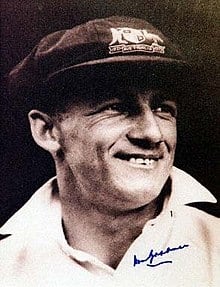
Sir Donald George Bradman, AC (27 August 1908 – 25 February 2001), nicknamed “The Don”, was an Australian international cricketer, widely acknowledged as the greatest batsman of all time. Bradman’s career Test batting average of 99.94 has been cited as the greatest achievement by any sportsman in any major sport.The story that the young Bradman practised alone with a cricket stump and a golf ball is part of Australian folklore. Bradman’s meteoric rise from bush cricket to the Australian Test team took just over two years. Before his 22nd birthday, he had set many records for top scoring, some of which still stand, and became Australia’s sporting idol at the height of the Great Depression.
During a 20-year playing career, Bradman consistently scored at a level that made him, in the words of former Australia captain Bill Woodfull, “worth three batsmen to Australia”. A controversial set of tactics, known as Bodyline, was specially devised by the England team to curb his scoring. As a captain and administrator, Bradman was committed to attacking, entertaining cricket; he drew spectators in record numbers. He hated the constant adulation, however, and it affected how he dealt with others. The focus of attention on his individual performances strained relationships with some teammates, administrators and journalists, who thought him aloof and wary. Following an enforced hiatus due to the Second World War, he made a dramatic comeback, captaining an Australian team known as “The Invincibles” on a record-breaking unbeaten tour of England.
A complex, highly driven man, not given to close personal relationships,
Bradman retained a pre-eminent position in the game by acting as an administrator, selector and writer for three decades following his retirement. Even after he became reclusive in his declining years, his opinion was highly sought, and his status as a national icon was still recognised. Almost 50 years after his retirement as a Test player, in 1997, Prime Minister John Howard of Australia called him the “greatest living Australian”. Bradman’s image has appeared on postage stamps and coins, and a museum dedicated to his life was opened while he was still living. On the centenary of his birth, 27 August 2008, the Royal Australian Mint issued a $5 commemorative gold coin with Bradman’s image. In 2009, he was inducted posthumously into the ICC Cricket Hall of Fame.
Read More About Sir Don Bradman / Source
Virat Kohli
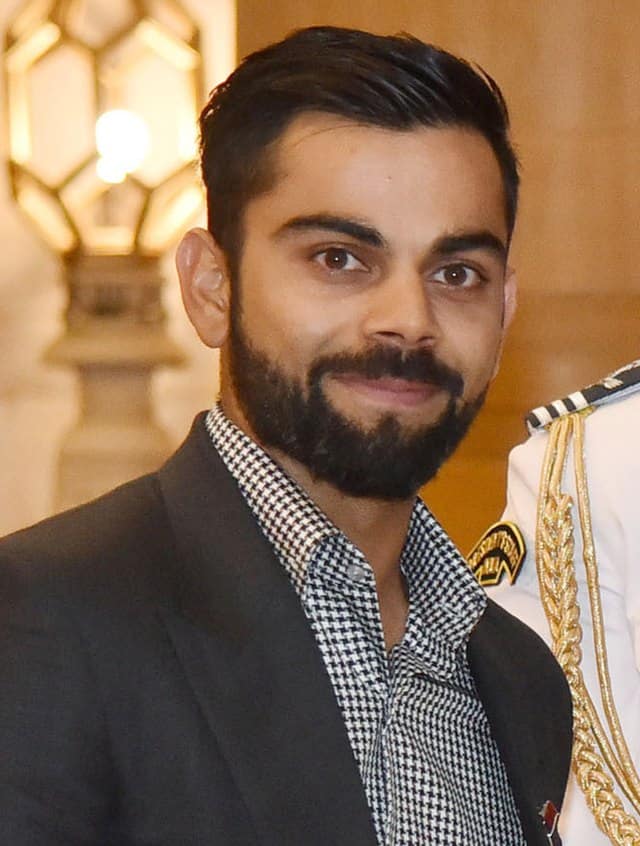
Virat Kohli ( born 5 November 1988) is an Indian cricketer and the current captain of the India national team. A right-handed top-order batsman, Kohli is regarded as one of the best contemporary batsmen in the world. He plays for Royal Challengers Bangalore in the Indian Premier League (IPL), and has been the team’s captain since 2013. Since October 2017, he has been the top-ranked ODI batsman in the world and is currently 2nd in Test rankings with 886 points. Among Indian batsmen, Kohli has the best ever Test rating (937 points), ODI rating (911 points) and T20I rating (897 points).
Kohli captained India Under-19s to victory at the 2008 Under-19 World Cup in Malaysia. After a few months later, he made his ODI debut for India against Sri Lanka at the age of 19. Initially having played as a reserve batsman in the Indian team, he soon established himself as a regular in the ODI middle-order and was part of the squad that won the 2011 World Cup. He made his Test debut in 2011 and shrugged off the tag of “ODI specialist” by 2013 with Test hundreds in Australia and South Africa. Having reached the number one spot in the ICC rankings for ODI batsmen for the first time in 2013, Kohli also found success in the Twenty20 format, winning the Man of the Tournament twice at the ICC World Twenty20 (in 2014 and 2016).
Kohli was appointed the vice-captain of the ODI team in 2012 and handed over the Test captaincy following Mahendra Singh Dhoni’s Test retirement in 2014. In early 2017, he became the limited-overs captain as well after Dhoni stepped down from the position. In ODIs, Kohli has the second highest number of centuries and the highest number of centuries in run-chases in the world. He holds the world record for being the fastest batsman to 8,000, 9,000, 10,000,11,000 and 12,000 runs in ODI cricket, reaching the milestones in 175, 194, 205 , 222 and 242 innings respectively.
Kohli has been the recipient of many awards such as the Sir Garfield Sobers Trophy (ICC Cricketer of the Year) in 2017 and 2018; ICC Test Player of the Year 2018; ICC ODI Player of the Year in 2012, 2017 and 2018 and Wisden Leading Cricketer in the World in 2016, 2017 and 2018. He was given the Arjuna Award in 2013, the Padma Shri under the sports category in 2017 and the Rajiv Gandhi Khel Ratna, the highest sporting honour in India, in 2018. Kohli is ranked as one of the world’s most famous athletes by ESPN and one of the most valuable athlete brands by Forbes. In 2018, Time magazine named Kohli one of the 100 most influential people in the world. In 2020, Kohli was ranked 66th in Forbes list of the top 100 highest paid athletes in the world for the year 2020 with estimated earnings of $26 million. Virat Kohli is the only cricketer to feature in Forbes.
Read More About Virat Kohli / Source
Ricky Ponting
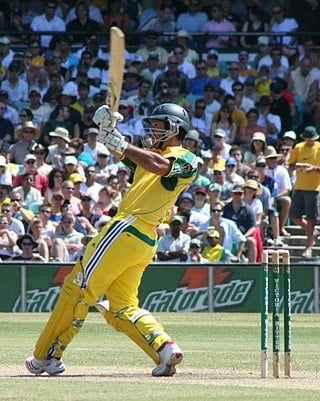
Ricky Thomas Ponting (born 19 December 1974) is an Australian cricket coach, commentator, and former cricketer. Ponting was captain of the Australian national team during its “golden era”, between 2004 and 2011 in Test cricket and 2002 and 2011 in One Day Internationals (ODIs) and is the most successful captain in international cricket history, with 220 victories in 324 matches with a winning rate of 67.91%. He is widely considered to be one of the best batsmen of the modern era and in December 2006 reached the highest rating achieved by a Test batsman for 50 years, although this was surpassed by Steve Smith in December 2017. He stands second in the list of cricketers by number of international centuries scored behind Sachin Tendulkar.
Domestically Ponting played for his home state of Tasmania as well as Tasmania’s Hobart Hurricanes in Australia’s domestic Twenty20 competition, the Big Bash League. He played as a specialist right-handed batsman, an excellent slip fielder, as well as a very occasional bowler. He led Australia to their second 5–0 Ashes win as well as victory at the 2003 and 2007 Cricket World Cups and was also a member of the 1999 World Cup winning team under Steve Waugh. He led Australia to consecutive ICC Champions Trophy victory in 2006 and 2009. Combative and at times a controversial captain, statistically he is one of the most successful Test captains of all time, with 48 victories in 77 Tests between 2004 and 31 December 2010. As a player, Ponting is the only cricketer in history to be involved in 100 Test victories and was involved in the most ODI victories as a player, with 262 wins, having played in over 160 Tests and 370 ODIs.
A prolific batter, Ponting is Australia’s leading run-scorer in Test and ODI cricket. He was named “Cricketer of the Decade 2000” was named in the country’s best Ashes XI in a Cricket Australia poll in 2017 and in July 2018 he was inducted into the ICC Hall of Fame. He is the current assistant coach of the Australian national men’s cricket team, having been appointed to the role in February 2019.
Ponting announced his retirement from Test cricket in November 2012, the day before playing in his final Test against South Africa; this was his 168th and last Test appearance, equalling the Australian record held by Steve Waugh. He retired with a Test batting average of 51.85, although he continued to play cricket around the world until 2013.
Read More About Ricky Ponting / Source
Sachin Tendulkar
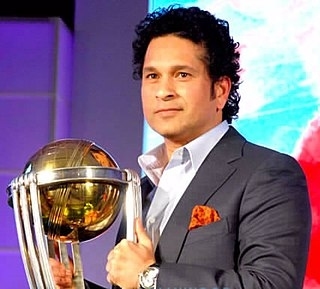
Sachin Ramesh Tendulkar ( born 24 April 1973) is an Indian former international cricketer who served as captain of the Indian national team. He is widely regarded as one of the greatest batsmen in the history of cricket. He is the highest run scorer of all time in International cricket. Considered as the world’s most prolific batsman of all time, he is the only player to have scored one hundred international centuries, the first batsman to score a double century in a One Day International (ODI), the holder of the record for the most runs in both Test and ODI cricket, and the only player to complete more than 30,000 runs in international cricket. In 2013, he was the only Indian cricketer included in an all-time Test World XI named to mark the 150th anniversary of Wisden Cricketers’ Almanack. He is affectionately known as Little Master or Master Blaster.Tendulkar took up cricket at the age of eleven, made his Test debut on 15 November 1989 against Pakistan in Karachi at the age of sixteen, and went on to represent Mumbai domestically and India internationally for close to twenty-four years. In 2002, halfway through his career, Wisden Cricketers’ Almanack ranked him the second-greatest Test batsman of all time, behind Don Bradman, and the second-greatest ODI batsman of all time, behind Viv Richards. Later in his career, Tendulkar was a part of the Indian team that won the 2011 World Cup, his first win in six World Cup appearances for India. He had previously been named “Player of the Tournament” at the 2003 edition of the tournament, held in South Africa.
Tendulkar received the Arjuna Award in 1994 for his outstanding sporting achievement, the Rajiv Gandhi Khel Ratna award in 1997, India’s highest sporting honour, and the Padma Shri and Padma Vibhushan awards in 1999 and 2008, respectively, India’s fourth- and second-highest civilian awards. After a few hours of his final match on 16 November 2013, the Prime Minister’s Office announced the decision to award him the Bharat Ratna, India’s highest civilian award. He is the youngest recipient to date and the first ever sportsperson to receive the award. He also won the 2010 Sir Garfield Sobers Trophy for cricketer of the year at the ICC awards. In 2012, Tendulkar was nominated to the Rajya Sabha, the upper house of the Parliament of India. He was also the first sportsperson and the first person without an aviation background to be awarded the honorary rank of group captain by the Indian Air Force. In 2012, he was named an Honorary Member of the Order of Australia.In 2010, Time magazine included Sachin in its annual Time 100 list as one of the “Most Influential People in the World”.
In December 2012, Tendulkar announced his retirement from ODIs. He retired from Twenty20 cricket in October 2013 and subsequently retired from all forms of cricket on 16 November 2013 after playing his 200th Test match, against the West Indies in Mumbai’s Wankhede Stadium. Tendulkar played 664 international cricket matches in total, scoring 34,357 runs.In 2019, Tendulkar was inducted into the ICC Cricket Hall of Fame.
Read More About Sachin Tendulkar / Source
Shane Warne
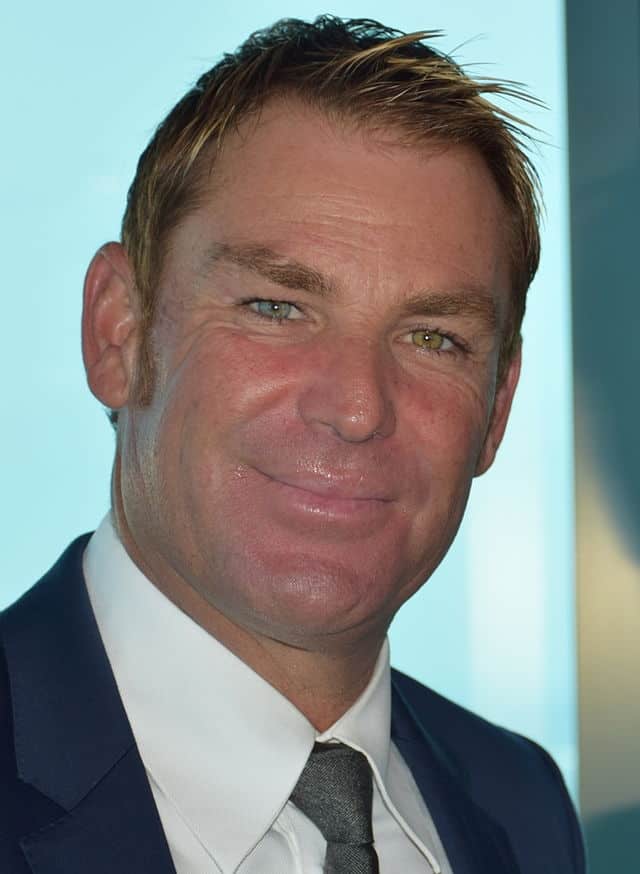
Shane Keith Warne (born 13 September 1969) is an Australian cricket commentator and former international cricketer who captained the Australian national team in One Day Internationals (ODI). Widely considered one of the greatest bowlers in cricket history, Warne was named one of the Wisden Cricketers of the Year in the 1994 Wisden Cricketers’ Almanack. He was the Wisden Leading Cricketer in the World in 1997 (Notional Winner). He was banned from the sport in 2003 for testing positive for a prohibited substance. Following the ban, he was named Wisden Leading Cricketer in the World for the year 2004 in the 2005 Wisden Cricketers’ Almanack. In 2000, he was selected by a panel of cricket experts as one of the five Wisden Cricketers of the Century, the only specialist bowler selected in the quintet, and the only one still playing at the time. He officially retired from all formats of cricket in July 2013.As well as playing internationally, Warne played domestic cricket for his home state of Victoria and English domestic cricket for Hampshire. He was captain of Hampshire for three seasons from 2005 to 2007. Warne played his first Test match in 1992 and took over 1,000 international wickets (in Tests and One-Day Internationals), second to this milestone after Sri Lanka’s Muttiah Muralitharan. Warne’s 708 Test wickets was the record for the most wickets taken by any bowler in Test cricket until it was broken by Muralitharan on 3 December 2007. A useful lower-order batsman, Warne is also the only player to have scored more than 3,000 Test runs without a career century. His career was plagued by scandals off the field, including a ban from cricket for testing positive for a prohibited substance, charges of bringing the game into disrepute by accepting money from bookmakers and sexual indiscretions.
He retired from international cricket in January 2007 at the end of Australia’s 5–0 Ashes series victory over England. Three other players integral to the Australian team at the time—Glenn McGrath, Damien Martyn and Justin Langer—also retired from Tests at the same time, which led some, including the Australian captain Ricky Ponting, to declare it the “end of an era”.He was named as a bowler in Australia’s “greatest ever ODI team”. In a fan poll conducted by the Cricketers’ Almanack in 2017, he was named in the country’s best Ashes XI in the last 40 years. To mark 150 years of the Cricketers’ Almanack, Wisden named him in an all-time Test World XI.Following his retirement from international cricket, Warne played a full season at Hampshire in 2007. He had been scheduled to appear in the 2008 English cricket season, but in late March 2008 he announced his retirement from playing first-class cricket in order to be able to “spend more time pursuing interests outside of cricket”. He played in the first four seasons (2008–2011) of the Indian Premier League for the Rajasthan Royals, where he played the roles of both captain and coach. He led his team to victory against the Chennai Super Kings in the final of the 2008 season. In February 2018, the Rajasthan Royals appointed Warne as their team mentor for the IPL 2018.In 2013, Warne was inducted into the ICC Cricket Hall of Fame. In 2012, he was also inducted into the Cricket Hall of Fame by Cricket Australia.
Read More About Shane Warne / Source
Mahendra Singh Dhoni
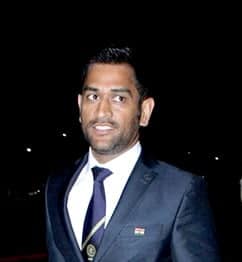
“7 Interesting Records Held by MS Dhoni in International Cricket”. The Quint. 25 September 2018. Retrieved 27 November 2020.
Mahendra Singh Dhoni ( born 7 July 1981), is a former Indian international cricketer who captained the Indian national team in limited-overs formats from 2007 to 2016 and in Test cricket from 2008 to 2014. Under his captaincy, India won the inaugural 2007 ICC World Twenty20, the 2010 and 2016 Asia Cups, the 2011 ICC Cricket World Cup and the 2013 ICC Champions Trophy. A right-handed middle-order batsman and wicket-keeper, Dhoni is one of the highest run scorers in One Day Internationals (ODIs) with more than 10,000 runs scored and is considered an effective “finisher” in limited-overs formats. He is widely regarded as one of the greatest wicket-keeper batsmen and captains in the history of the game. He was also the first wicket-keeper to effect 100 stumpings in ODI cricket. Dhoni made his ODI debut on 23 December, 2004 against Bangladesh, and played his first Test a year later against Sri Lanka. He has been the recipient of many awards, including the ICC ODI Player of the Year award in 2008 and 2009 (the first player to win the award twice), the Rajiv Gandhi Khel Ratna award in 2007, the Padma Shri, India’s fourth highest civilian honour, in 2009 and the Padma Bhushan, India’s third highest civilian honour, in 2018. Dhoni was named as the captain of the ICC World Test XI in 2009, 2010 and 2013. He has also been selected a record 8 times in ICC World ODI XI teams, 5 times as captain. The Indian Territorial Army conferred the honorary rank of Lieutenant Colonel to Dhoni on 1 November 2011. He is the second Indian cricketer after Kapil Dev to receive this honour.
Dhoni also holds numerous captaincy records such as the most wins by an Indian captain in ODIs and T20Is, and most back-to-back wins by an Indian captain in ODIs. He took over the ODI captaincy from Rahul Dravid in 2007 and led the team to its first-ever bilateral ODI series wins in Sri Lanka and New Zealand. In June 2013, when India defeated England in the final of the Champions Trophy in England, Dhoni became the first captain to win all three ICC limited-overs trophies (World Cup, Champions Trophy and the World Twenty20). After taking up the Test captaincy in 2008, he led the team to series wins in New Zealand and the West Indies, and the Border-Gavaskar Trophy in 2008, 2010 and 2013. In 2009, Dhoni also led the Indian team to number one position for the first time in the ICC Test rankings.
In 2013, under Dhoni’s captaincy, India became the first team in more than 40 years to whitewash Australia in a Test series. In the Indian Premier League, he captained the Chennai Super Kings to victory at the 2010, 2011 and 2018 seasons, along with wins in the 2010 and 2014 editions of Champions League Twenty20. In 2011, Time magazine included Dhoni in its annual Time 100 list as one of the “Most Influential People in the World.” Dhoni holds the post of Vice-President of India Cements Ltd., after resigning from Air India. India Cements is the owner of the Indian Premier League team Chennai Super Kings, and Dhoni has been its captain since the first IPL season. He announced his retirement from Tests on 30 December 2014.In 2012, SportsPro rated Dhoni as the sixteenth most marketable athlete in the world. He is the co-owner of Indian Super League team Chennaiyin FC. In June 2015, Forbes ranked Dhoni at 23rd in the list of highest paid athletes in the world, estimating his earnings at US$31 million. In 2016, a biopic “M.S. Dhoni: The Untold Story” was made on his life and his cricket career up to the Indian team’s win at the 2011 Cricket World Cup.
MS Dhoni announced his retirement from international cricket on 15 August 2020.
Read More About Mahendra Singh Dhoni / Source
Rahul Dravid
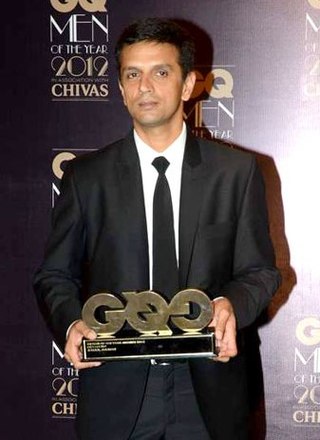
Rahul Sharad Dravid ( born 11 January 1973) is a former Indian cricketer. He is the Director of Cricket Operations at National Cricket Academy, Bengaluru, India. He also monitors the progress of India A and India under-19 cricket teams. Before this he was Head Coach for the India Under-19 and India A teams from 2016 to 2019. Under his coaching, under-19 team was runners up at 2016 u-19 Cricket World Cup and were winners at 2018 u-19 Cricket World Cup. In 2019, BCCI appointed Dravid as Head of NCA.
Known for his sound batting technique,
Dravid has scored nearly 25,000 runs in international cricket and is widely regarded as one of the greatest batsmen in the history of cricket. He is colloquially known as Dependable or Mr. Dependable, and often referred to as The Great Wall or The Wall by Indian cricket followers.Born in a Marathi family and brought up in Bangalore, he started playing cricket at the age of 12 and later represented Karnataka at the under-15, under-17 and under-19 levels. Hailed as The Wall, Dravid was named one of the best five cricketers of the year by Wisden Cricketers’ Almanack in 2000 and received the Player of the Year and the Test Player of the Year awards at the inaugural ICC awards ceremony in 2004. In December 2011, he became the first non-Australian cricketer to deliver the Bradman Oration in Canberra.As of December 2016, Dravid is the fourth-highest run scorer in Test cricket, after Sachin Tendulkar, Ricky Ponting and Jacques Kallis. In 2004, after completing his century against Bangladesh in Chittagong, he became the first player to score a century in all the ten Test-playing countries. As of October 2012, he holds the record for the most catches taken by a player (non-wicket-keeper) in Test cricket, with 210. Dravid holds a unique record of never getting out for a Golden duck in the 286 Test innings which he has played. He has faced 31258 balls, which is the highest number of balls faced by any player in test cricket. He has also spent 44152 minutes at the crease, which is the highest time spent on crease by any player in test cricket.In August 2011, after receiving a surprise recall in the ODI series against England, Dravid declared his retirement from ODIs as well as Twenty20 International (T20I), and in March 2012, he announced his retirement from international and first-class cricket. He appeared in the 2012 Indian Premier League as captain of the Rajasthan Royals. Rahul Dravid, along with Glenn McGrath were honoured during the seventh annual Bradman Awards function in Sydney on 1 November 2012. Dravid has also been honoured with the Padma Shri and the Padma Bhushan award, India’s fourth and third highest civilian awards respectively.In 2014, Rahul Dravid joined the GoSports Foundation, Bangalore as a member of their board of advisors. In collaboration with GoSports Foundation he is mentoring India’s future Olympians and Paralympians as part of the Rahul Dravid Athlete Mentorship Programme. Indian badminton player Prannoy Kumar, Para-swimmer Sharath Gayakwad and young Golfer S. Chikkarangappa was part of the initial group of athletes to be mentored by Rahul Dravid. In July 2018, Dravid became the fifth Indian cricketer to be inducted into ICC Hall of Fame.
Read More About Rahul Dravid / Source
James Anderson
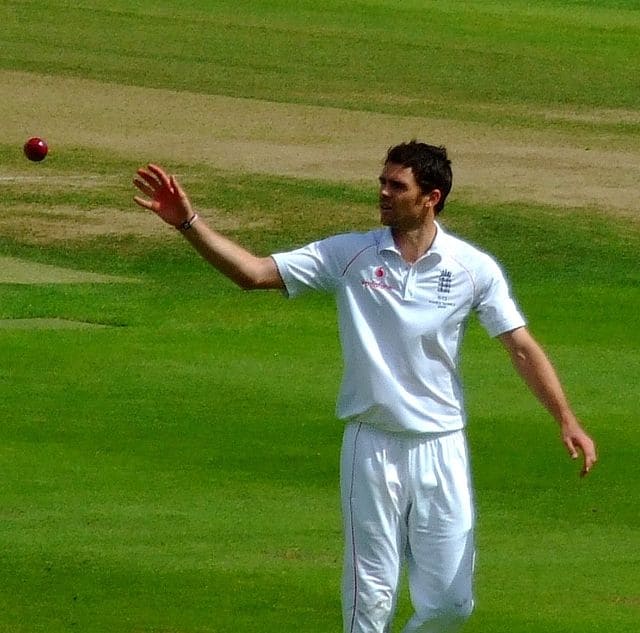
James Michael Anderson (born 30 July 1982) is an English international cricketer who plays for Lancashire County Cricket Club and the England cricket team. He is also a part time cricket commentator at BBC. Among fast bowlers, Anderson is the leading wicket-taker of all-time at Test cricket level, as the only fast bowler to have taken 600 or more Test wickets, and is the third-highest wicket-taker overall. He also holds the record for the most wickets taken by an England player in One-Day International (ODI) cricket. In June 2021 he made his 162nd appearance for England in Test cricket, becoming England’s most capped player. He is regarded as one of the greatest bowlers in the history of cricket.A right-arm fast swing bowler, Anderson made his international debut at the end of 2002 during England’s winter tour of Australia, then played his first Test match against Zimbabwe when the team toured England the following summer. Subsequently, he has played for his country in more than 160 Test matches, becoming the most capped player for England in Test cricket. He has also played nearly 200 One Day Internationals. His early career was held back by injuries, including a stress fracture of the back which kept him out of action for most of the 2006 season, but thereafter he established himself as the key opening bowler in the England Test team. He was a regular strike bowler with the national one-day side, but has not participated in the shorter format of the game at international level since the 2015 World Cup.
Anderson was the first English bowler to reach 400, 500 and 600 wickets in Test matches. As of January 2021 he is ranked 6th in the ICC Test Bowling Rankings, having previously reached the top position at various times between 2016 and 2018. In July 2021, in the 2021 County Championship, Anderson took his 1,000th first-class wicket.
Read More About James Anderson / Source
Rohit Sharma
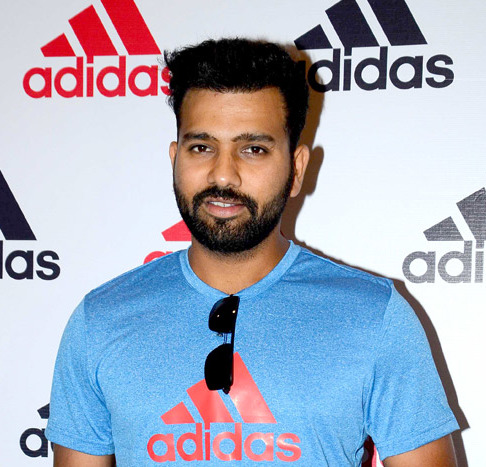
Rohit Gurunath Sharma (born 30 April 1987) is an Indian international cricketer who plays for Mumbai in domestic cricket and captains Mumbai Indians in the Indian Premier League as a right-handed batsman and an occasional right-arm off break bowler. He is the vice-captain of the Indian national team in limited-overs formats. He is one of the most decorated contemporary batsmen in the limited-overs format of the game.
Outside cricket, Sharma is an active supporter of animal welfare campaigns. He is the official Rhino Ambassador for WWF-India and is a member of People for the Ethical Treatment of Animals (PETA). He has worked with PETA in its campaign to raise awareness of the plight of homeless cats and dogs in India.
Read More About Rohit Sharma / Source
Virender Sehwag
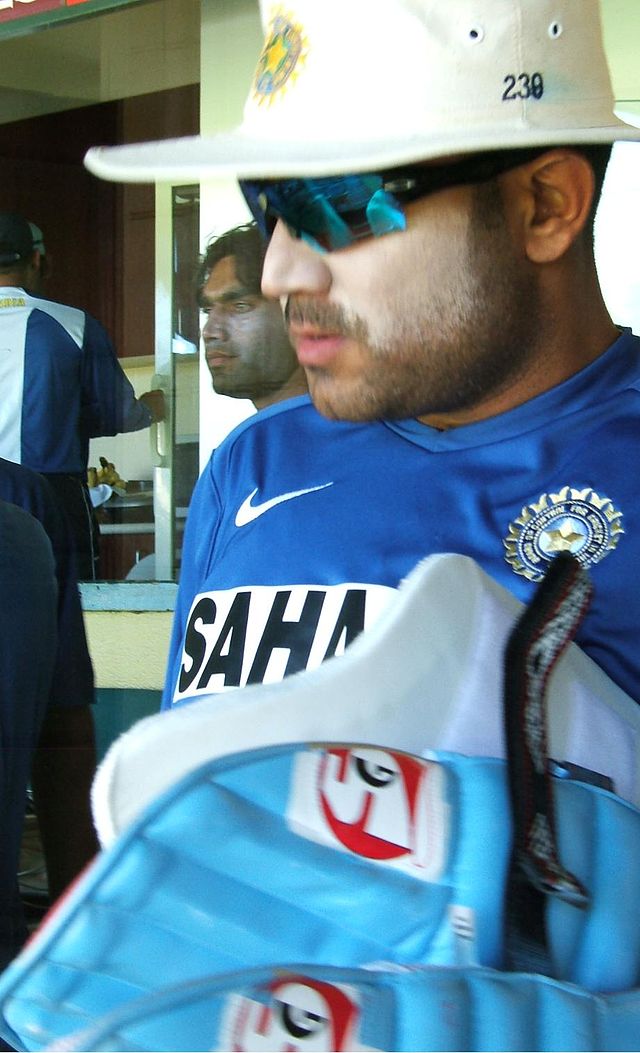
Virender Sehwag pronunciation (born 20 October 1978) is a former Indian cricketer. Widely regarded as one of the most destructive batsmen of all time, Sehwag played as an aggressive right-handed opening batsman and also bowled part-time right-arm off-spin. He played his first One Day International in 1999 and joined the Indian test side in 2001. In April 2009, Sehwag became the first Indian to be honoured as the Wisden Leading Cricketer in the World for his performance in 2008, subsequently becoming the first player of any nationality to retain the award for 2009. He is the former Occasional captain of India, former Vice-Captain of India, former captain of Delhi Daredevils and former captain of Delhi Ranji Team.
Sehwag holds multiple records including the highest score made by an Indian in Test cricket (319 against South Africa at M. A. Chidambaram Stadium in Chennai), which was also the fastest triple century in the history of international cricket (reached 300 off only 278 balls) as well as the fastest 250 by any batsman (in 207 balls against Sri Lanka on 3 December 2009 at the Brabourne Stadium in Mumbai). Sehwag also holds the distinction of being one of four batsmen in the world to have ever surpassed 300 twice in Test cricket. In March 2009, Sehwag smashed what was till then the fastest century ever scored by an Indian in ODI cricket, from 60 balls. On 8 December 2011, he hit his maiden double century in ODI cricket, against West Indies, becoming the second batsman after Sachin Tendulkar to reach the landmark. His score became the highest individual score in ODI cricket—219 off 149 balls which was later bettered by Rohit Sharma—264 off 173 balls on 13 November 2014. He is one of only two players in the world to score a double hundred in ODI and a triple hundred in Test Cricket, the other being Chris Gayle.Sehwag was appointed as vice-captain of the Indian team under Rahul Dravid in October 2005 but due to poor form, he was later replaced by V. V. S. Laxman in December 2006 as Test vice-captain. In January 2007, Sehwag was dropped from the ODI team and later from the Test team as well. During his term as vice-captain, Sehwag skippered the team in place of injured Dravid in 2 ODIs and 1 Test. Following his return to form in 2008 and the retirement of Anil Kumble, Sehwag was reappointed as the vice-captain for both Tests and ODIs. By early 2009, Sehwag had reestablished himself as one of the best performing batsmen in ODI cricket. Sehwag retired from all forms of International cricket on 20 October 2015.Now, he is serving as the member of Anti Doping Appeal Panel of National Anti Doping Agency under Ministry of Youth Affairs & Sports, Government of India.
On 31 October 2017, Delhi and District Cricket Association (DDCA) honoured Sehwag by naming Gate No.2 at the Arun Jaitley Stadium after him.
Read More About Virender Sehwag / Source
Kapil Dev
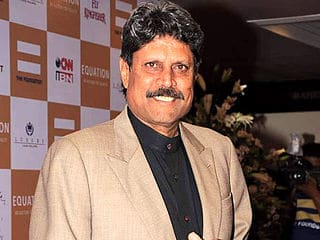
Kapil Dev Ramlal Nikhanj (born 6 January 1959) is a former Indian cricketer. He was a fast bowler and a hard hitting middle order batsman. Dev is widely regarded as one of the greatest all-rounders to play the game, he is also regarded as one of the greatest captains in the history of cricket. He was named by Wisden as the Indian Cricketer of the Century in 2002.Dev captained the Indian cricket team that won the 1983 Cricket World Cup. He was India’s national cricket coach between October 1999 and August 2000. He retired in 1994, holding the world record for the greatest number of wickets taken in Test cricket, a record subsequently broken by Courtney Walsh in 2000. At the time, he was also India’s highest wicket-taker in both major forms of cricket, Tests and ODIs. He is the first player to take 200 ODI wickets. He is the only player in the history of cricket to have taken more than 400 wickets (434 wickets) and scored more than 5000 runs in Tests, making him one of the greatest all-rounders to have played the game. On 11 March 2010, Dev was inducted into the ICC Cricket Hall of Fame.
Read More About Kapil Dev / Source
Sunil Gavaskar
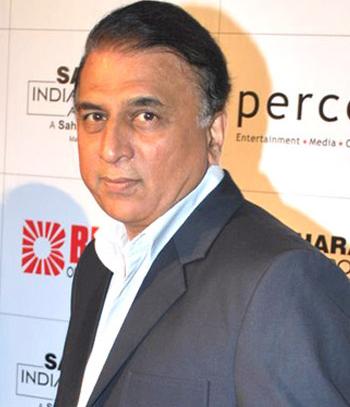
Sunil Manohar Gavaskar ( born 10 July 1949), often known as Sunny Gavaskar Or Simply Sunil Gavaskar, is an Indian cricket commentator and former cricketer representing India and Bombay from the early 1970s to the late 1980s. Widely regarded as one of the greatest Test batsmen and best opening batsmen in Test cricket history, Gavaskar set world records during his career for the most Test runs and most Test centuries scored by any batsman. He held the record of 34 Test centuries for almost two decades before it was broken by Sachin Tendulkar in December 2005. He was the first person to score centuries in both innings of a Test match three times. He was the first Test batsman to score 10,000 Test runs in a career and now stands at number 12 on the group of 13 players with 10,000-plus Test runs.
Gavaskar was widely admired for his technique against fast bowling, with a particularly high average of 65.45 against the West Indies team, who possessed a four-pronged fast bowling attack regarded as the most vicious in Test history. His captaincy of the Indian team, however, was less successful. Turbulent performances of the team led to multiple exchanges of captaincy between Gavaskar and Kapil Dev, with one of Gavaskar’s sackings coming just six months before Kapil led India to victory at the 1983 Cricket World Cup. He is also a former Sheriff of Mumbai.
Gavaskar is a recipient of the Indian civilian honours of the Padma Shri and the Padma Bhushan. He was inducted into the ICC Cricket Hall of Fame in 2009. In 2012, he was awarded the Col CK Nayudu Lifetime Achievement Award for Cricket in India.
Read More About Sunil Gavaskar / Source
Gautam Gambhir
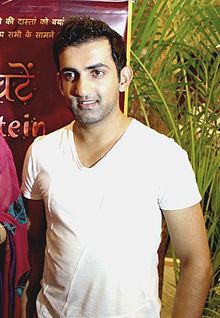
Gautam Gambhir ( born 14 October 1981) is an Indian politician and former cricketer, who has played all formats of the game. He is a current member of the Lok Sabha since 2019.
As a cricketer, he was a left-handed opening batsman who played domestic cricket for Delhi, and captained Kolkata Knight Riders and Delhi Daredevils in the Indian Premier League (IPL). He made his One Day International (ODI) debut against Bangladesh in 2003, and played his first Test the following year against Australia. He captained the Indian team in six ODIs from late 2010 to late 2011 with India winning all six matches. He played an integral part in India’s wins in the finals of both the 2007 World Twenty20 (75 runs from 54 balls) and the 2011 Cricket World Cup (97 from 122). Under Gambhir’s captaincy, Kolkata Knight Riders won their first IPL title in 2012 and went on to win the title again in 2014.
Gambhir was the only Indian and one of four international cricketers to have scored hundreds in five consecutive Test matches. He is the only Indian batsman to have scored more than 300 runs in four consecutive Test series. As of April 2018, he is the sixth highest run-scorer for India in Twenty20 Internationals. He was conferred the Arjuna Award, India’s second highest sporting award, in the year 2008 by the President of India. In 2009, he was the number one ranked batsman in ICC Test rankings. The same year, he was the recipient of the ICC Test Player of the Year award. In 2019, he received the Padma Shri from the Government of India, the fourth highest civilian award in India.In October 2018, during the quarter-finals of the 2018–19 Vijay Hazare Trophy, he scored his 10,000th run in List A cricket. In December 2018, he announced his retirement from all forms of cricket.In 2019, he joined the Bharatiya Janata Party and won election to the Lok Sabha from East Delhi.
Read More About Gautam Gambhir / Source
Cheteshwar Pujara
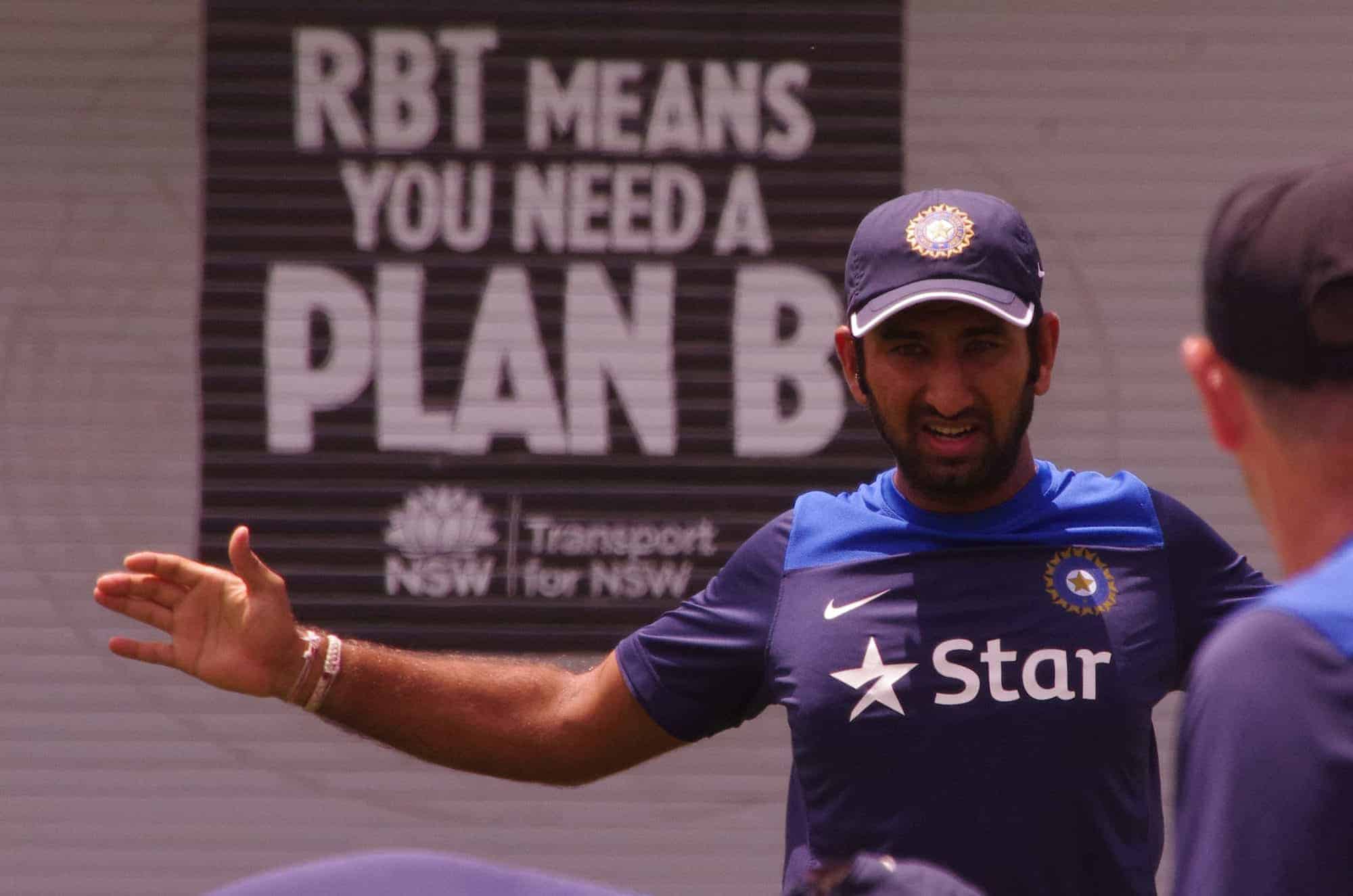
Cheteshwar Arvind Pujara (born 25 January 1988) is an Indian international cricketer who plays Test cricket for Indian national team and represents Saurashtra in domestic cricket. He is a right-handed batsman who made his first-class debut for Saurashtra in December 2005 and made his Test debut at Bangalore in October 2010. As of December 2019, he is the 7th ranked Test batsman in the world, according to the ICC Player Rankings with a tally of 791 points. He signed a short term contract with Gloucestershire County CC.He was a part of the India A team which toured England in the 2010 summers and was the highest scorer of the tour. In October 2011, the BCCI awarded him a D grade national contract. Known to have a sound technique and the temperament required to play long innings, he was one of the contenders for a spot in the Indian middle order after the retirement of Rahul Dravid and VVS Laxman.His Test comeback came against New Zealand in August 2012, scoring a century. He made his first double hundred against England at Ahmedabad in November 2012 and followed up with another double hundred against Australia in March 2013, both the times steering India to victory and becoming man of the match.In the 2012 NKP Salve Challenger Trophy, he was the highest scorer with two centuries and one half-century. He became one of the fastest batsmen to reach 1000 runs in Test cricket in just 11 matches and his 18th Test Innings. He won the Emerging Cricketer of the Year 2013.In February 2017, during the one-off Test match against Bangladesh, he set a new record for the most runs by a batsman in an Indian first-class season, with 1,605 runs. The previous record was 1,604 runs set by Chandu Borde in 1964–65. In November 2017, he scored his twelfth double-century in first-class cricket, the most by an Indian batsman, breaking the previous record set by Vijay Merchant.
Read More About Cheteshwar Pujara / Source
Sir Garfield Sobers
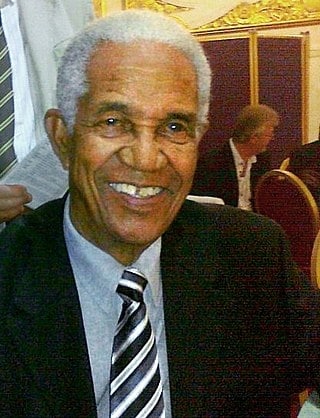
Sir Garfield St Aubrun Sobers, AO, OCC (born 28 July 1936), also known as Sir Gary or Sir Garry Sobers, is a former cricketer who played for the West Indies between 1954 and 1974. A highly skilled bowler, an aggressive batsman and an excellent fielder, he is widely considered to be cricket’s greatest ever all-rounder and one of the greatest cricketers of all time.Born in Bridgetown, Barbados, Sobers made his first-class debut for the Barbados cricket team at the age of 16 in 1953, and his Test debut for the West Indies the following year. Originally playing mainly as a bowler, he was soon promoted up the batting order. Against Pakistan in 1958, Sobers scored his maiden Test century, progressing to 365 not out and establishing a new record for the highest individual score in an innings. His record was not broken until Brian Lara scored 375 in 1994. Sobers was made captain of the West Indies in 1965, a role which he would hold until 1972. He would also captain a Rest of the World XI during their 1970 tour of England.
Overall, Sobers played 93 Tests for the West Indies, scoring 8032 runs at an average of 57.78, and taking 235 wickets at an average of 34.03. He has the fifth highest batting average in Test cricket in the list of cricketers with more than 5,000 runs. In his 383 first-class matches, he scored over 28,000 runs and took over 1000 wickets, having spent time with South Australia and Nottinghamshire towards the end of his career. Sobers was knighted by Queen Elizabeth II in 1975 for his services to cricket. He became a dual Barbadian-Australian citizen through marriage in 1980. By an act of Parliament in 1998, Sobers was named as one of the eleven National Heroes of Barbados.In 2009, Sobers was inducted into the ICC Cricket Hall of Fame.Sir Garfield has criticised the decision for Barbados to become a republic.
Read More About Sir Garfield Sobers / Source
Imran Khan
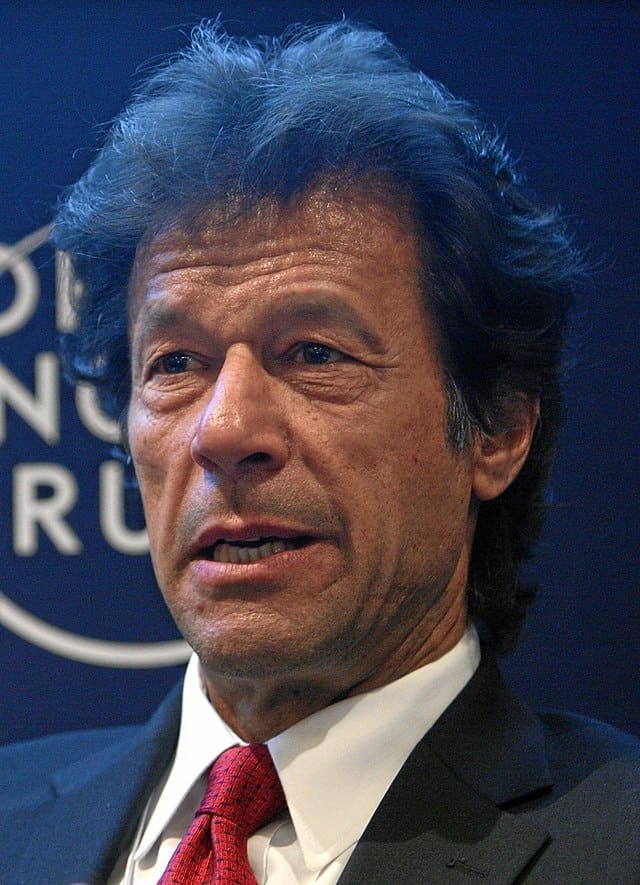
Imran Ahmed Khan Niazi (Urdu: عمران احمد خان نیازی, Pashto: عمران احمد خان نیازی; born 5 October 1952) is a Pakistani politician and former cricketer who is the 22nd and current prime minister of Pakistan. He is also the chairman of the Pakistan Tehreek-e-Insaf (PTI). Before entering politics, Khan was an international cricketer and captain of the Pakistan national cricket team, which he led to victory in the 1992 Cricket World Cup. He was chancellor of the University of Bradford in the United Kingdom from 2005 to 2014.Khan was born to a Pashtun family in Lahore in 1952, and graduated from Keble College, Oxford in 1975. He began his international cricket career at age 18, in a 1971 Test series against England. Khan played until 1992, served as the team’s captain intermittently between 1982 and 1992, and won the Cricket World Cup, in what is Pakistan’s first and only victory in the competition. Considered one of cricket’s greatest ever all-rounders, Khan registered 3,807 runs and took 362 wickets in Test cricket and was inducted into the ICC Cricket Hall of Fame.In 1991, he launched a fundraising campaign to set up a cancer hospital in memory of his mother. He raised $25 million to set up a hospital in Lahore in 1994, and set up a second hospital in Peshawar in 2015. Khan then continued his philanthropic efforts, expanding the Shaukat Khanum Memorial Cancer Hospital to also include a research centre, and founded Namal College in 2008. Khan also served as the chancellor of the University of Bradford between 2005 and 2014, and was the recipient of an honorary fellowship by the Royal College of Physicians in 2012.Khan founded the Pakistan Tehreek-e-Insaf (PTI) in 1996, and serves as the party’s chairman. By winning a seat in the National Assembly in 2002, he served as an opposition member from Mianwali until 2007. PTI boycotted the 2008 general election. In the subsequent election PTI became the second-largest party by popular vote. In regional politics, PTI led a coalition government in Khyber Pakhtunkhwa from 2013, with Khan delegating this leadership to Mahmood Khan after being elected as Prime Minister in 2018.As Prime Minister, Khan addressed a balance of payments crisis with a bailout from the International Monetary Fund. He also presided over a shrinking current account deficit and limited defence spending to curtail the fiscal deficit. Eventually, Pakistan’s economy began to recover under Khan’s premiership. Khan also launched an anti-corruption campaign, but was criticised by political opponents for alleged targeting. In other domestic policy, Khan pushed for an increase in renewable energy production and halted non-renewable energy sources from future construction working toward an aim to make Pakistan mostly renewable by 2030. He also initiated reforestation and expansion of national parks. He enacted policy which increased tax collection and investment. Khan’s government also instituted reforms to education and healthcare on a national and regional level respectively. Further reforms were made to Pakistan’s social safety net. In foreign policy, he dealt with border skirmishes against India, supported the Afghan peace process, and strengthened relations with China, Russia and the United States.
Read More About Imran Khan / Source
Sir Ian Botham
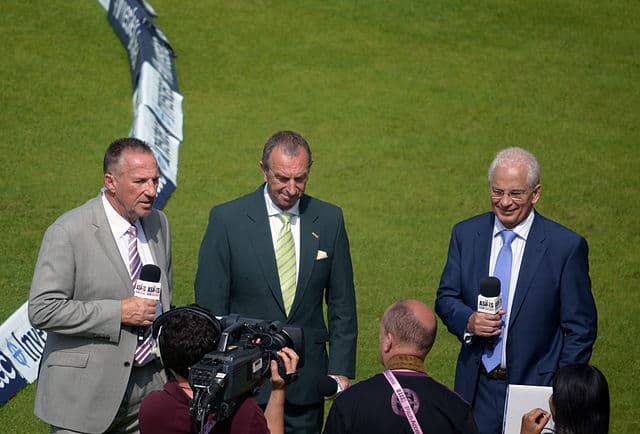
Sir Ian Terence Botham, Baron Botham, (born 24 November 1955) is an English cricket commentator, member of the House of Lords and a former cricketer who has been chairman of Durham County Cricket Club since 2017.
Hailed as one of the greatest all-rounders in the history of the game, Botham represented England in both Test and One-Day International cricket. He played most of his first-class cricket for Somerset, at other times competing for Worcestershire, Durham and Queensland. He was an aggressive right-handed batsman and, as a right-arm fast-medium bowler, was noted for his swing bowling. He generally fielded close to the wicket, predominantly in the slips. In Test cricket, Botham scored 14 centuries with a highest score of 208, and from 1986 to 1988 held the world record for the most Test wickets until overtaken by fellow all-rounder Sir Richard Hadlee. He took five wickets in an innings 27 times, and 10 wickets in a match four times. In 1980, he became the second player in Test history to complete the “match double” of scoring 100 runs and taking 10 wickets in the same match. On the occasion of England’s 1000th Test in August 2018, he was named in the country’s greatest Test XI by the ECB.Botham has at times been involved in controversies, including a highly publicised court case involving rival all-rounder Imran Khan and an ongoing dispute with the Royal Society for the Protection of Birds (RSPB). These incidents, allied to his on-field success, have attracted media attention, especially from the tabloid press. Botham has used his fame to raise money for research into childhood leukaemia. These efforts have realised millions of pounds for Bloodwise, of which he became president. On 8 August 2009, he was inducted into the ICC Cricket Hall of Fame. In July 2020, it was announced that Botham would be elevated to the House of Lords and that he would sit as a crossbench peer.Botham has a wide range of sporting interests outside cricket. He was a talented footballer at school and had to choose between cricket and football as a career. He chose cricket but, even so, he played professional football for a few seasons and made eleven appearances in the Football League for Scunthorpe United, becoming the club’s president in 2017. He is a keen golfer, and his other pastimes include angling and shooting. He has been awarded both a knighthood and a life peerage.
Read More About Sir Ian Botham / Source
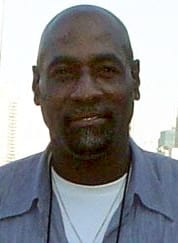
Sir Isaac Vivian Alexander Richards KNH, OBE (born 7 March 1952) is an Antiguan retired cricketer who represented the West Indies cricket team between 1974 and 1991. Batting generally at number three in a dominant West Indies side, Richards is widely regarded as one of the greatest batsmen of all time.Richards made his test debut in 1974 against India along with Gordon Greenidge and Andy Roberts. His best years were between 1976 and 1983 where he averaged a remarkable 66.51 with the bat. After 1984 he suffered from tyrigium and had a eye operation which makes those eye shots harder although he remained the best batter in world for next four years until the decline in last couple of years where he averaged 38. Overall, Richards scored 8,540 runs in 121 Test matches at an average of 50.23, including 24 centuries. He also scored 1281 runs in World Series Cricket with four tons at average of over 55 which was regarded as highest and most difficult cricket ever played. As a captain, he won 27 of 50 Test matches and lost only 8. He also scored nearly 7,000 runs in One Day Internationals and more than 36,000 in first-class cricket.
He was knighted for his contributions to cricket in 1999. In December 2002, he was chosen by Wisden as the greatest One Day International batsman who had played to that date and as the third greatest Test cricket batter. In 2000 he was voted one of Wisden’s five Cricketers of the Century by a 100-member panel of experts and in 2002 the almanack judged that he had played the best One Day International innings of all time.In 2009, Richards was inducted into the ICC Cricket Hall of Fame.
Brian Lara
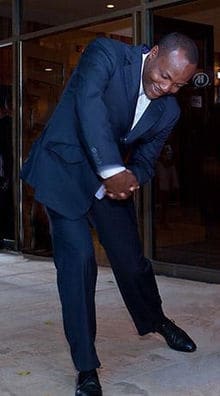
Brian Charles Lara, (born 2 May 1969) is a Trinidadian former international cricketer, widely acknowledged as one of the greatest batsmen of all time. He topped the Test batting rankings on several occasions and holds several cricketing records, including the record for the highest individual score in first-class cricket, with 501 not out for Warwickshire against Durham at Edgbaston in 1994, which is the only quintuple-hundred in first-class cricket history.Lara also holds the record for the highest individual score in a Test innings after scoring 400 not out against England at Antigua in 2004. Lara also shares the record of scoring the highest number of runs in a single over in a Test match when he scored 28 runs off an over by Robin Peterson of South Africa in 2003 (matched in 2013 by Australia’s George Bailey and in 2020 by South Africa’s Keshav Maharaj).Lara’s match-winning performance of 153 not out against Australia in Bridgetown, Barbados in 1999 has been rated by Wisden as the second-best batting performance in the history of Test cricket, next only to the 270 runs scored by Sir Donald Bradman in The Ashes Test match of 1937. Muttiah Muralitharan, rated as the greatest Test match bowler ever by Wisden Cricketers’ Almanack, and the highest wicket-taker in both Test cricket and in One Day Internationals (ODIs), has hailed Lara as his toughest opponent among all batsmen in the world. Lara was awarded the Wisden Leading Cricketer in the World awards in 1994 and 1995 and is also one of only three cricketers to receive the prestigious BBC Overseas Sports Personality of the Year, the other two being Sir Garfield Sobers and Shane Warne.Brian Lara was appointed honorary member of the Order of Australia on 27 November 2009. On 14 September 2012 he was inducted to the ICC’s Hall of Fame at the awards ceremony held in Colombo, Sri Lanka as a 2012–13 season inductee along with Australians Glenn McGrath and former England women all-rounder Enid Bakewell. In 2013, Lara received Honorary Life Membership of the MCC becoming the 31st West Indian to receive the honor.Brian Lara is popularly nicknamed as “The Prince of Port of Spain” or simply “The Prince”. He has the dubious distinction of playing in the second-highest number of test matches (63) in which his team was on the losing side, just behind Shivnarine Chanderpaul (68).
Read More About Brian Lara / Source
Jacques Kallis
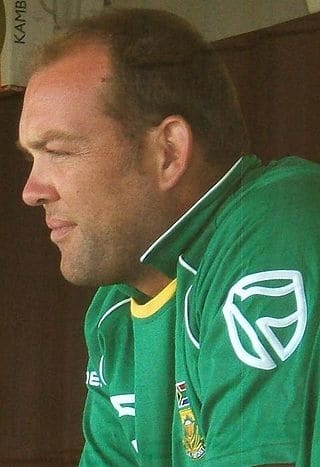
Jacques Henry Kallis (born 16 October 1975) is a South African cricket coach and former cricketer. Widely regarded as one of the greatest cricketers of all time and as South Africa’s greatest batsman ever, he is a right-handed batsman and right-arm fast-medium swing bowler. As of 2021 he is the only cricketer in the history of the game to score more than 10,000 runs and take over 250 wickets in both ODI and Test match cricket; he also took 131 ODI catches. He scored 13,289 runs in his Test match career and took 292 wickets and 200 catches.Kallis played 166 Test matches and had a batting average of over 55 runs per innings. From October to December 2007, he scored five centuries in four Test matches. With his century in the second innings of the third Test against India in January 2011, his 40th in all, he moved past Ricky Ponting to become the second-highest scorer of Test centuries, behind only Sachin Tendulkar’s 51.
Kallis was named Leading Cricketer in the World in 2008 Wisden for his performances in 2007 in addition to being the “ICC Test Player of the Year” and ICC Player of the Year in 2005. He has been described by Kevin Pietersen and Daryll Cullinan as the greatest cricketer to play the game, and along with Wally Hammond and Sir Garry Sobers is one of the few Test all-rounders whose Test batting average is over 50 and exceeds his Test bowling average by 20 or more.He was declared the Player of the Tournament in South Africa’s victorious 1998 ICC KnockOut Trophy (now referred to as ICC Champions Trophy) campaign, which till date is South Africa’s only ICC tournament win in their history. He finished as the 2nd highest run-scorer and was the leading wicket taker with ‘Man of the Match’ awards in both the semi-final and the final.
Kallis became the fourth player and first South African to score 13,000 Test runs on the opening day of the first Test against New Zealand on 2 January 2013. He was named one of the Wisden Cricketers of the Year in 2013. He retired from Test and first-class cricket after playing in the second test against India at Durban in December 2013; Kallis scored his 45th Test hundred in this match, making him one of the few batsmen to score a century in his final Test. He retired from all forms of international cricket on 30 July 2014.In December 2019, it was announced that Jacques Kallis would rejoin the South African national cricket team, The Proteas, as the team’s batting consultant for the duration of the summer. In August 2020, he was inducted to the ICC Cricket Hall of Fame.
Read More About Jacques Kallis / Source
Wasim Akram
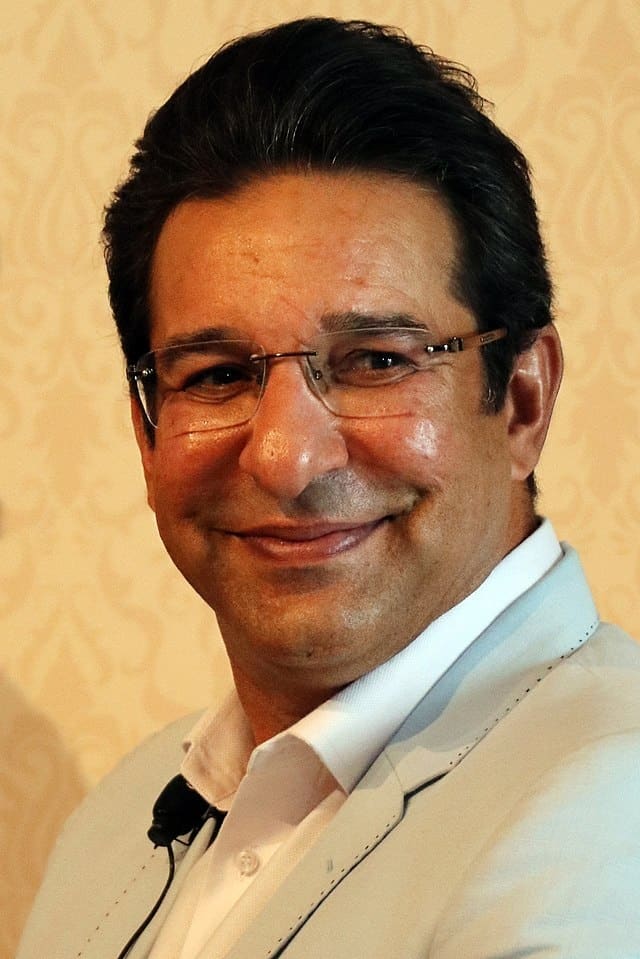
Wasim Akram (born 3 June 1966) is a Pakistani cricket commentator, coach, and former cricketer and captain of the Pakistan national cricket team. Akram is widely regarded as one of the greatest fast bowlers of all time and several critics regard him as the greatest left arm fast bowler of cricket history.
In October 2013, Wasim Akram was the only Pakistani cricketer to be named in an all-time Test World XI to mark the 150th anniversary of Wisden Cricketers’ Almanack.A left arm fast bowler who could bowl with significant pace, he holds the world record for most wickets in List A cricket, with 881, and he is second only to Sri Lankan off-spin bowler Muttiah Muralitharan in terms of ODI wickets, with 502 in total. He is considered to be one of the founders, and perhaps the finest exponent of, reverse swing bowling.He was the first bowler to reach the 500-wicket mark in ODI cricket during the 2003 World Cup. In 2002, Wisden released its only list of best players of all time. Wasim was ranked as the best bowler in ODI of all time, with a rating of 1223.5, ahead of Allan Donald, Imran Khan, Waqar Younis, Joel Garner, Glenn McGrath and Muralitharan. Wasim took 23 four-wicket hauls in 356 ODI matches played. On 30 September 2009, Akram was one of five new members inducted into the ICC Cricket Hall of Fame. He was the bowling coach of Kolkata Knight Riders. However, he took a break from the position for IPL 6, citing a need to spend more time with family in Karachi, and he took a further break from IPL 2017; and was replaced by Lakshmipathy Balaji.
He was working as director and bowling coach of Islamabad United in Pakistan Super League, until he left to join Multan Sultans in August 2017. In October 2018, he was named in the Pakistan Cricket Board’s seven-member advisory cricket committee. In November 2018, he joined PSL franchise, Karachi Kings, as a President.
The Government of Pakistan awarded him the Hilal-e-Imtiaz on 23 March 2019 for his life time achievements In field of Cricket.
Read More About Wasim Akram / Source
Sir Alastair Cook
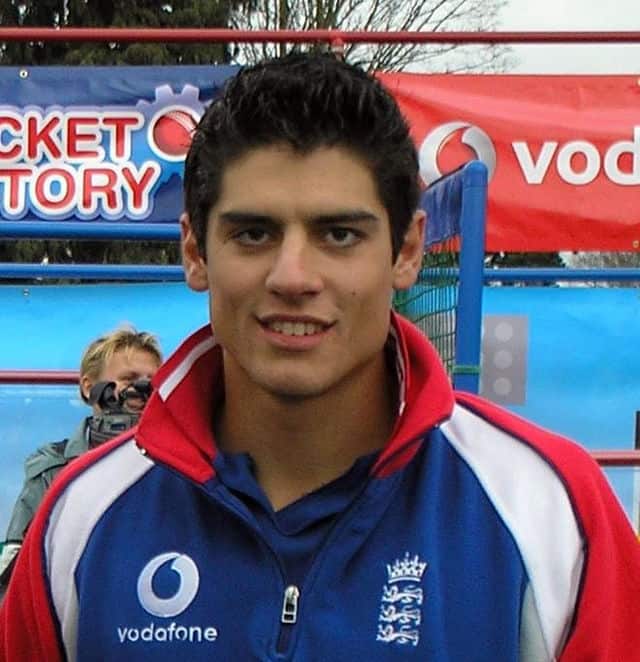
Sir Alastair Nathan Cook (born 25 December 1984) is an English cricketer who plays for Essex County Cricket Club, and played for England in all international formats until retiring in 2018. A former captain of the England Test and One-Day International (ODI) teams, he is the fifth-highest Test run scorer of all time and holds a number of English and international records.
Cook is England’s second most-capped Test player and has captained the English team in 59 Tests, as well as in 69 ODIs. He is the leading run-scorer in Test matches for England, and the youngest player to score 12,000 Test runs (the sixth overall, and the only Englishman). Cook has scored a record 33 Test centuries for England and is the first England player to win 50 Test matches. A left-handed opening batsman (the highest-scoring left-hander in Tests), he normally fields at first slip.
Cook played for Essex’s Academy and made his debut for the first XI in 2003. He played in several of England’s youth teams from 2000 until his call up to the Test side in 2006. While touring in the West Indies with the ECB National Academy, Cook was called up to the England national team in India as a last-minute replacement for Marcus Trescothick and debuted, aged 21, with a century. He went on to score 1,000 runs in his maiden year and made centuries in his first Test matches against India, Pakistan, the West Indies and Bangladesh. Cook played a pivotal role in England winning the 2009 Ashes series, and, after deputising as Test captain in 2010 and then taking ODI captaincy full-time, in retaining the Ashes in 2010-11.
He was appointed captain of the Test team after Andrew Strauss’s retirement on 29 August 2012. Cook captained England to its first Test series victory in India since 1984–85. During the tour he became the first captain to score a century in each of his first five Tests in charge. On 30 May 2015, Cook became the leading run-scorer in Test matches for England, surpassing Graham Gooch (8900). After England’s 2016 tour of Bangladesh and India, he stepped down as Test captain. Cook was appointed MBE in 2011 and promoted to CBE in 2016 for services to cricket. On 24 May 2018 during the first Test against Pakistan, Cook equalled Allan Border’s record for appearing in the greatest number of consecutive Test matches, with 153, surpassing it a week later in the second Test at Headingley. On 3 September 2018, Cook announced that his twelve-year international career would end at the conclusion of the series against India on 11 September 2018. In the 2019 New Year Honours, Cook was appointed a Knight Bachelor for services to cricket.On the occasion of England’s 1000th Test in August 2018, he was named in the country’s greatest Test XI by the ECB.
Read More About Sir Alastair Cook / Source
Muttiah Muralitharan
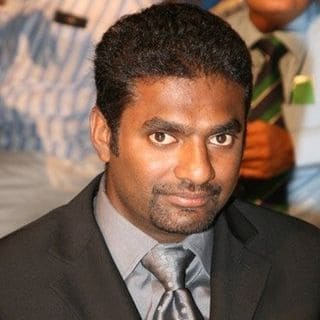
Deshabandu Muttiah Muralitharan (Tamil: முத்தையா முரளிதரன், Sinhala: මුත්තයියා මුරලිදරන් also spelt Muralidaran; born 17 April 1972) is a Sri Lankan cricket coach, former professional cricketer, businessman and a member of the ICC Cricket Hall of Fame. Averaging over 6 wickets per test match, Murali is regarded as one of the greatest and most successful bowlers ever to play international cricket. He is the only bowler to take 800 test wickets and 530+ ODI wickets. As of January 2022, he has taken more wickets in international cricket than any other bowler.Muralitharan’s international career was beset by controversy over his bowling action. Due to an unusual hyperextension of his congenitally bent arm during delivery, his bowling action was called into question on a number of occasions by umpires and sections of the cricket community. After biomechanical analysis under simulated playing conditions, Muralitharan’s action was cleared by the International Cricket Council, first in 1996 and again in 1999.Muralitharan held the number one spot in the International Cricket Council’s player rankings for Test bowlers for a record period of 1,711 days spanning 214 Test matches. He became the highest wicket-taker in Test cricket when he overtook the previous record-holder Shane Warne on 3 December 2007. Muralitharan had previously held the record when he surpassed Courtney Walsh’s 519 wickets in 2004, but he suffered a shoulder injury later that year and was overtaken by Warne. Muralitharan took the wicket of Gautam Gambhir on 5 February 2009 in Colombo to surpass Wasim Akram’s ODI record of 502 wickets. He retired from Test cricket in 2010, registering his 800th and final wicket on 22 July 2010 from his final ball in his last Test match.Muralitharan was rated the greatest Test match bowler by Wisden’s Cricketers’ Almanack in 2002, and in 2017 was the first Sri Lankan cricketer to be inducted into the ICC Cricket Hall of Fame. He won the Ada Derana Sri Lankan of the Year award in 2017.
Read More About Muttiah Muralitharan / Source
Kumar Sangakkara
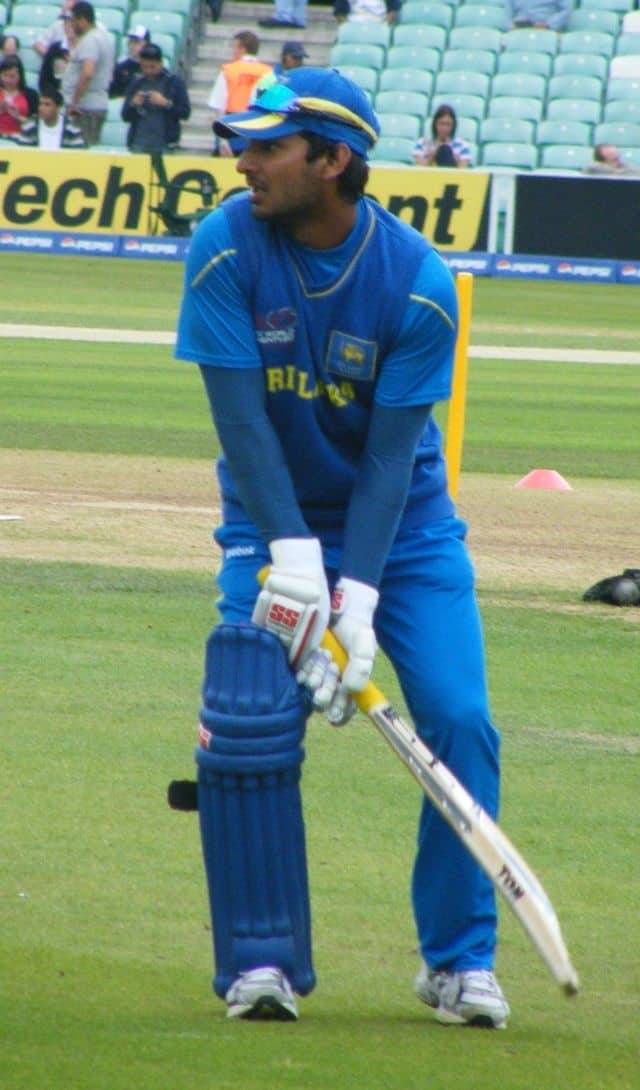
Kumar Chokshanada Sangakkara (Sinhala: කුමාර් චොක්ශනාද සංගක්කාර; born 27 October 1977) is a Sri Lankan cricket commentator, former professional cricketer, businessman, ICC Hall of Fame inductee, and the former president of Marylebone Cricket Club. He is widely regarded as one of the greatest wicket-keeper-batters in the history of the sport. He was officially rated in the top three current batsmen in the world in all three formats of the game at various stages of his international career. Sangakkara scored 28,016 runs in international cricket across all formats in a career that spanned 15 years. At retirement, he was the second-highest run-scorer in ODI cricket, next only to Sachin Tendulkar, and the sixth-highest run scorer in Test cricket.As a player, Sangakkara was a left-handed top-order batsman and was also a wicket-keeper for a large proportion of his career. Sangakkara holds many Test records, having been the fastest, or joint-fastest (in terms of innings) to various run milestones in Test cricket. Sangakkara’s partnership with Mahela Jayawardene was the second most prolific in the history of Test cricket. Additionally, he holds the record for the most wicket keeping dismissals in ODI cricket.Sangakkara won the ICC Cricketer of the Year in 2012 and won many other awards for both Test and ODI cricket. He was selected as Leading Cricketer in the World in the 2012 and 2015 editions of Wisden Cricketers’ Almanack, becoming the second player to have won this award twice. Sangakkara was rated as the Greatest ODI player of all time in a public poll conducted by Cricket Australia in 2016.
He won the Man of the Match in the finals of the 2014 ICC World Twenty20 tournament and was part of the team that made the final of the 2007 Cricket World Cup, 2011 Cricket World Cup, 2009 ICC World Twenty20 and 2012 ICC World Twenty20. He won the Man of the Match award in the final of the 2014 ICC World Twenty20, where he helped Sri Lanka win their first title.
In 2019, he was appointed President of the MCC, the first non-British person to be appointed to the position since the club was founded in 1787. He was the youngest person and the first active international player to deliver the MCC Spirit of Cricket Cowdrey Lecture, which was widely praised by the cricketing community for its outspoken nature. In June 2021, he was inducted to the ICC Cricket Hall of Fame and became the second Sri Lankan to be inducted into the ICC Hall of Fame after Muttiah Muralitharan.
Read More About Kumar Sangakkara / Source
Richard Hadlee
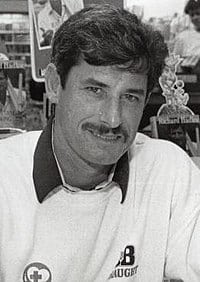
Sir Richard John Hadlee (born 3 July 1951) is a New Zealand former cricketer. Hadlee is widely regarded as one of the greatest all-rounders in cricket history, and amongst the very finest fast bowlers.Hadlee was appointed an MBE in the 1980 Queen’s Birthday Honours List and knighted in the 1990 Queen’s Birthday Honours List for services to cricket. He is a former chairman of the New Zealand board of selectors. In December 2002, he was chosen by Wisden as the second greatest Test bowler of all time. In March 2009, Hadlee was commemorated as one of the Twelve Local Heroes, and a bronze bust of him was unveiled outside the Christchurch Arts Centre.
On 3 April 2009, Hadlee was inducted into the ICC Cricket Hall of Fame. He is the most prominent member of the Hadlee cricket playing family.
Read More About Richard Hadlee / Source
Adam Gilchrist
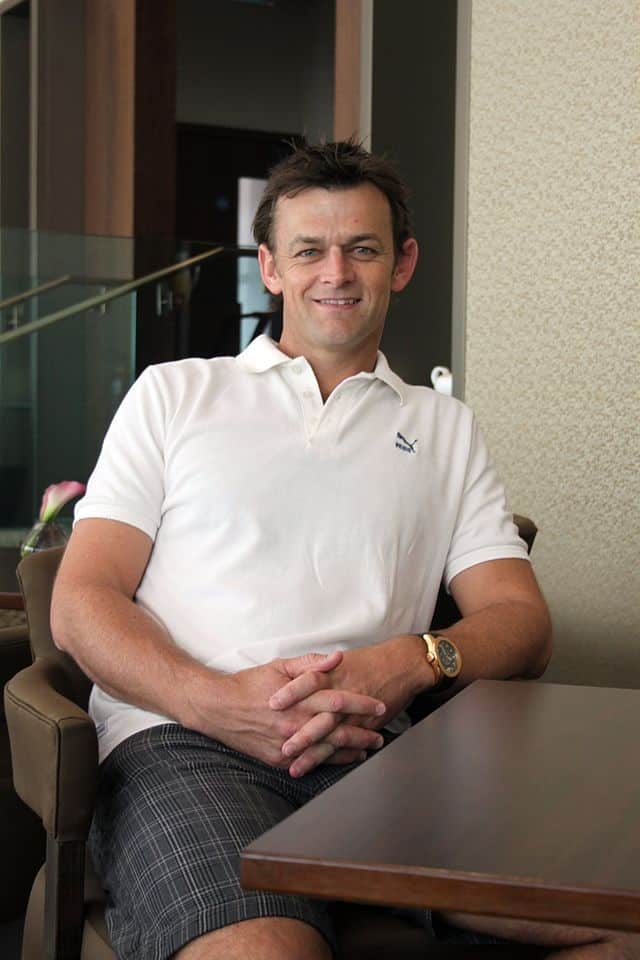
Adam Craig Gilchrist (; born 14 November 1971) is an Australian cricket commentator and former international cricketer and captain of the Australia national cricket team. He was an attacking left-handed batsman and record-breaking wicket-keeper, who redefined the role for the Australia national team through his aggressive batting. Widely regarded as one of the greatest wicket-keeper-batsman in the history of the game, Gilchrist held the world record for the most dismissals by a wicket-keeper in One Day International (ODI) cricket until it was surpassed by Kumar Sangakkara in 2015 and the most by an Australian in Test cricket.
His strike rate is amongst the highest in the history of both ODI and Test cricket; his 57 ball century against England at Perth in December 2006 is the fourth-fastest century in all Test cricket. He was the first player to have hit 100 sixes in Test cricket. His 17 Test centuries and 16 in ODIs are both second only to Sangakkara by a wicket-keeper. He holds the unique record of scoring at least 50 runs in successive World Cup finals (in 1999, 2003 and 2007). His 149 off 104 balls against Sri Lanka in the 2007 World Cup final is rated one of the greatest World Cup innings of all time. He is one of the only three players to have won three World Cup titles.Gilchrist was renowned for walking when he considered himself to be out, sometimes contrary to the decision of the umpire. He made his first-class debut in 1992, his first One-Day International appearance in 1996 in India and his Test debut in 1999. During his career, he played for Australia in 96 Test matches and over 270 One-day internationals. He was Australia’s regular vice-captain in both forms of the game, captaining the team when regular captains Steve Waugh and Ricky Ponting were unavailable. He retired from international cricket in March 2008, though he continued to play domestic tournaments until 2013.
Read More About Adam Gilchrist / Source
Chris Gayle
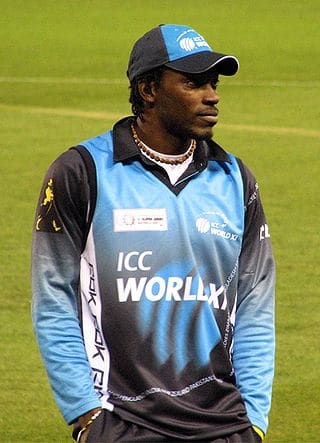
Christopher Henry Gayle, OD (born 21 September 1979) is a Jamaican former cricketer who played international cricket for the West Indies from 1998 to 2021. A destructive batter, Gayle is widely regarded as one of the greatest batsmen to have played Twenty20 cricket, and by some as the best ever. Gayle played a crucial role in the West Indies teams that won 2004 ICC Champions Trophy, 2012 ICC World Twenty20 and 2016 ICC World Twenty20.
Gayle has set numerous records across all three formats of the game. He is the most capped player for the West Indies in international cricket and is the only player to score a triplet of centuries – a triple hundred in Tests, double hundred in ODIs and a hundred in T20Is. Gayle is the only player to score more than 14000 runs and hit more than 1000 sixes in T20 cricket Gayle is also the leading run scorer for West Indies in both ODI’s and T20I’s and along with Brian Lara the only player to score more than 10,000 runs for West Indies in ODI Cricket. In addition to his batting, Gayle has picked up over 200 International Wickets with his Right-arm offbreak spin bowling. He was awarded the Most Valuable Player in the 2011 Indian Premier League and held the Orange Cap in 2012. On 23 April 2013, Gayle broke the record for the fastest ever T20 hundred in his landmark knock of 175 runs from 66 balls for Royal Challengers Bangalore against Pune Warriors India in the IPL, which is also the highest score ever by a batsman in T20 history. He also equaled the record for the fastest 50 in T20 cricket while playing for Melbourne Renegades in the Big Bash League.Playing Tests Gayle has scored over 7000 runs at an average of over 42 and captained the West Indian Test side from 2007 to 2010. He last played in a Test match in September 2014, against Bangladesh. After initially expressing his desire to retire from ODI’s after the 2019 Cricket World Cup Gayle nontheless played in the ODI series against India after the World Cup playing his final and 301st ODI match wearing the special jersey number 301 in August 2019, against India. In December 2020, Gayle was included in the ICC T20I Team of the Decade.In September 2021, Gayle was included in the West Indies squad for 2021 ICC Men’s T20 World Cup.
Read More About Chris Gayle / Source
Glenn McGrath
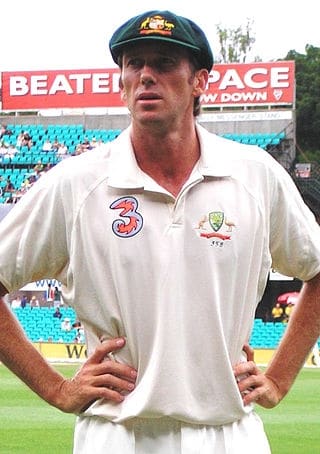
Glenn Donald McGrath (; born 9 February 1970) is an Australian former international cricketer who played international cricket for 14 years. He was a fast-medium pace bowler and is considered one of the greatest Australian international bowlers of all time, and a leading contributor to Australia’s domination of world cricket from the mid-1990s to the late-2000s.Known throughout his career for maintaining an accurate line and length, McGrath displayed a consistency that enabled him to be one of the most economical and successful fast bowlers of his time. In terms of total career wickets taken by fast bowlers, McGrath is the second most successful of all time behind James Anderson. On the list of all bowlers, he is fifth. He has also taken the seventh-highest number of one day international wickets (381) and holds the record for most wickets (71) in the Cricket World Cup. McGrath announced his retirement from Test cricket on 23 December 2006, with his Test career coming to an end after the fifth Ashes Test in Sydney in January 2007, while the 2007 World Cup, which marked the end of his one-day career, saw him win the man-of-the-tournament award for his outstanding bowling, which was instrumental in Australia winning the tournament.McGrath later played for the Indian Premier League team of the Delhi DareDevils and was one of the competition’s most economical bowlers during its first season, but he saw no action in the second season, ultimately having his contract bought out.
McGrath is the director of MRF Pace Foundation, Chennai, replacing Dennis Lillee, who served for 25 years. He currently serves as president of the McGrath Foundation, a breast cancer support and education charity he founded with his late first wife, Jane.McGrath was honoured during the seventh annual Bradman Awards in Sydney on 1 November 2012. He was inducted into the ICC Hall of fame in January 2013.
Read More About Glenn McGrath / Source
Steve Waugh
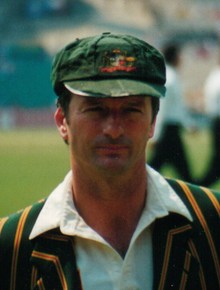
Stephen Rodger Waugh (born 2 June 1965) is an Australian former international cricketer and twin brother of cricketer Mark Waugh. A right-handed batsman, he was also a medium-pace bowler. As Australian captain from 1997 to 2004, he led Australia to fifteen of their record sixteen consecutive Test wins, and to victory in the 1999 Cricket World Cup. Waugh is considered the most successful Test captain in history with 41 victories and a winning ratio of 72%.Born in New South Wales, with whom he began his first-class cricket career in 1984, he captained the Australian Test cricket team from 1999 to 2004, and was the most capped Test cricket player in history, with 168 appearances, until Sachin Tendulkar of India broke this record in 2010. Thought of in the early stages of his career as only a “moderately talented” player, at one point losing his Test place to his brother Mark, he went on to become one of the leading batsmen of his time. He is one of only twelve players to have scored more than 10,000 Test runs.
He was named Australian of the Year in 2004 for his philanthropic work, and inducted into the ICC Cricket Hall of Fame in front of his home fans at the Sydney Cricket Ground in January 2010.Waugh has been included in a list of one hundred Australian Living Treasures by the National Trust of Australia, awarded the Order of Australia and the Australian Sports Medal. Known as an attacking and sometimes ruthlessly efficient captain, Waugh rebuffed criticism over “manipulation of the points system” during the Cricket World Cup to ensure his team’s progression, and was often critical of the media. Described in 2003 as a “cold-blooded, scientific” leader, cricket columnist of The Times Simon Barnes noted that “Waugh wants to defeat you personally.” At the end of his final Test match, Waugh was carried by his teammates in a lap of honour around the Sydney Cricket Ground. In a fan poll conducted by the CA in 2017, he was named in the country’s best Ashes XI in the last 40 years.
Read More About Steve Waugh / Source
Shoaib Akhtar
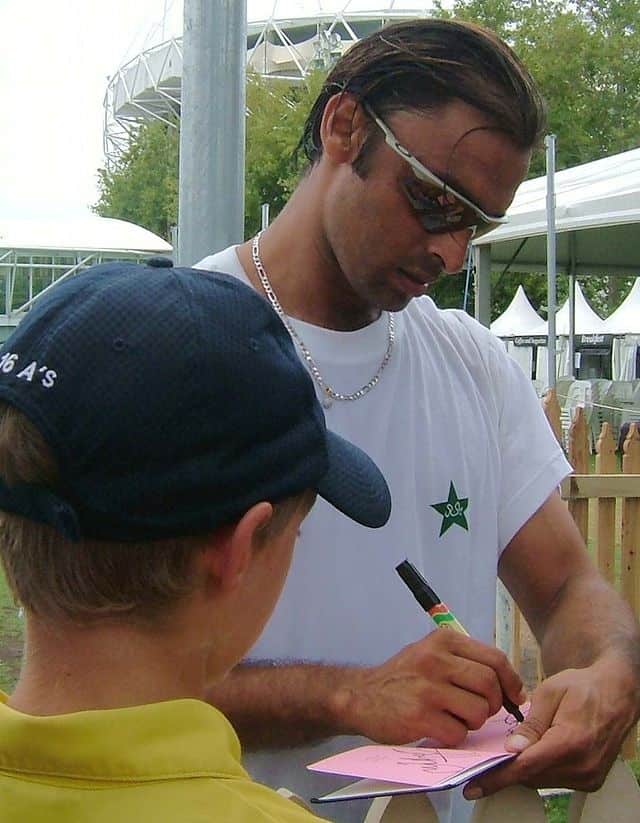
Shoaib Akhtar (pronunciation ; born 13 August 1975) is a Pakistani former cricketer and commentator. Nicknamed the “Rawalpindi Express”, he was the first bowler to be recorded bowling at 100 miles per hour, a feat he achieved twice in his career.Akhtar made his Test match debut in November 1997 as an opening fast bowler and played his first One Day International three months later. He has been involved in several controversies during his career, often accused of unsportsmanlike conduct. Akhtar was sent home during a Test match series in Australia in 2005 for alleged poor attitude and a year later received a ban after testing positive for the performance-enhancing substance nandrolone. However, the ban imposed on him was lifted on appeal. In 2008, Akhtar was banned for five years for publicly criticising the Pakistan Cricket Board, although in October 2008, the Lahore High Court suspended the ban and Akhtar was selected in the 15-man squad for the Twenty20 Quadrangular Tournament in Canada. Akhtar retired from international cricket after the 2011 World Cup.
Read More About Shoaib Akhtar / Source
Sir Curtly Ambrose
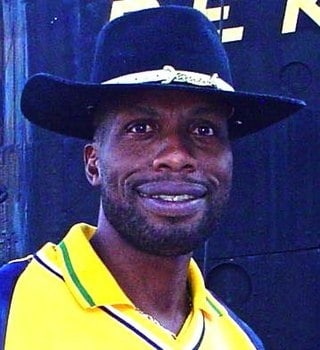
Sir Curtly Elconn Lynwall Ambrose KCN (born 21 September 1963) is an Antiguan former cricketer who played 98 Test matches for the West Indies. Widely acknowledged as one of the greatest fast bowlers of all time, he took 405 Test wickets at an average of 20.99 and topped the ICC Player Rankings for much of his career to be rated the best bowler in the world. His great height—he is 6 feet 7 inches (2.01 m) tall—allowed him to make the ball bounce unusually high after he delivered it; allied to his pace and accuracy, it made him a very difficult bowler for batsmen to face. A man of few words during his career, he was notoriously reluctant to speak to journalists. He was chosen as one of the Wisden Cricketers of the Year in 1992; after he retired he was entered into the International Cricket Council Hall of Fame and selected as one of West Indies all-time XI by a panel of experts.
Born in Swetes, Antigua, Ambrose came to cricket at a relatively late age, having preferred basketball in his youth, but quickly made an impression as a fast bowler. Progressing through regional and national teams, he was first chosen for the West Indies in 1988. He was almost immediately successful and remained in the team until his retirement in 2000. On many occasions, his bowling spells were responsible for winning matches for West Indies which seemed lost, in association with Courtney Walsh. Against Australia in 1993, he bowled one of the greatest bowling spells of all time, when he took seven wickets while conceding a single run, hence taking figures of 7/1 for the first spell of the match. Similarly, in 1994 he was largely responsible for bowling England out for 46 runs, taking six wickets for 24 runs. He is rightly regarded as one of the greatest match-winning bowlers of all time.
Ambrose’s bowling method relied on accuracy and conceding few runs; several of his best performances came when he took wickets in quick succession to devastate the opposition. He was particularly successful against leading batsmen. From 1995, Ambrose was increasingly affected by injury, and several times critics claimed that he was no longer effective. However, he continued to take wickets regularly up until his retirement, although he was sometimes less effective in the early matches of a series. In his final years, the West Indies team was in decline and often relied heavily on Ambrose and Walsh; both men often bowled with little support from the other bowlers. Following his retirement, Ambrose has pursued a career in music as the bass guitarist in a reggae band.
Read More About Sir Curtly Ambrose / Source
Mahela Jayawardene
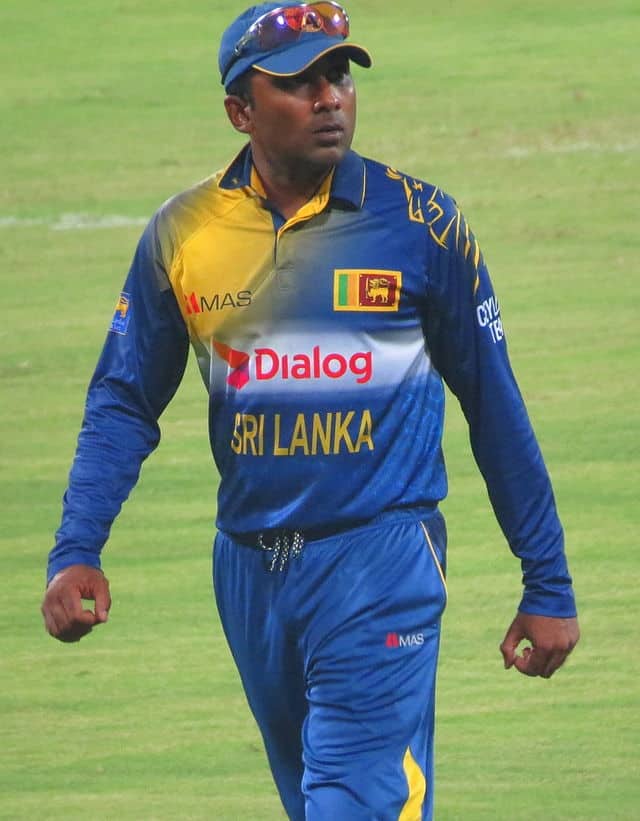
Denagamage Praboth Mahela de Silva Jayawardene (Sinhala: දෙනගමගේ ප්රබෝත් මහේල ද සිල්වා ජයවර්ධන; born 27 May 1977) is a former Sri Lankan cricketer who is also the current consultant coach of Sri Lanka national cricket team. Mahela is the most successful captain for Sri Lanka along with Sanath Jayasuriya. During the time of his captaincy, he was known mainly for his tactical acumen for decades and was rewarded for his captaincy instincts.
He made his Test cricket debut in August 1997 and his One Day International (ODI) debut the following season in January 1998. In 2006 along with his team mate Kumar Sangakkara, Jayawardene made the highest ever partnership in first Class cricket, scoring 624 runs for the third wicket in the first test match of Sri Lanka’s home series against South Africa. He appeared in 652 international matches representing Sri Lanka in a career spanning for about 18 years. During his international career, he also formed a healthy relationship and friendship with fellow veteran player Kumar Sangakkara.Mahela is the first player in the history of Sri Lankan cricket to score over 10,000 Test runs and is also the second Sri Lankan player to score more than 10,000 runs in ODIs after Sanath Jayasuriya. Mahela Jayawardene currently serves as the Chairman of Sri Lanka National Sports Council.Jayawardene’s highest test score, 374 against South Africa, is the highest score by a right-handed batsman in the history of Test cricket. Along with teammate Sangakkara, he has the most career partnership runs for the 3rd wicket in Tests, scoring 5890 runs surpassing the 5826 run record of Rahul Dravid and Sachin Tendulkar.
Jayawardene was a key member of the team that won the 2014 ICC World Twenty20 and was part of the team that made to the final of 2007 Cricket World Cup, 2011 Cricket World Cup, 2009 ICC World Twenty20 and 2012 ICC World Twenty20.
In 2006, Jayawardene was named by the International Cricket Council as the best International captain of the year and was nominated in 2007 as the best Test cricket player of the year. He is also known for his fielding skills in the inner ring, with a report prepared by Cricinfo in late 2005 showing that since the 1999 Cricket World Cup, he had effected the most run-outs in ODI cricket of any fieldsman, with the fifth highest run-out/match ratio in ODI’s. Statistics also reveal that c Jayawardene b Muralitharan is the most common bowler-fielder combination in the history of Test cricket.Jayawardene also worked as an international TV commentator in the first test at Headingley on 19 May 2016 between England and Sri Lanka. Mahela Jayawardene holds the unique record of being the only player as of now to have scored a hundred in both a World Cup final and a World Cup semi-final. He is also the only player to have scored a century in a World Cup final in a losing cause.He also serves as a board member in several unlisted public limited companies in Sri Lanka. He has been a vocal critic of Sri Lanka Cricket over the years especially after 2015 where Sri Lanka national cricket has suffered the worst decline at international cricket.In November 2021, he was inducted to the ICC Cricket Hall of Fame. He became only the third Sri Lankan to be inducted to the ICC Cricket Hall of Fame after Muttiah Muralitharan and Kumar Sangakkara.
Read More About Mahela Jayawardene / Source
Dale Steyn
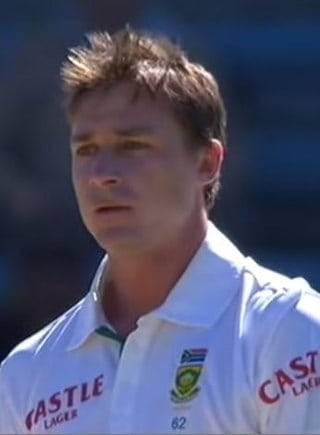
Dale Willem Steyn (; born 27 June 1983) is a South African former professional cricketer who played for the South African Cricket Team. He is often regarded as one of the greatest fast bowlers of all time and the best Test bowler of his generation. During the 2007–08 season, Steyn achieved a tally of 78 wickets at an average of 16.24, and was subsequently rewarded with the ICC 2008 Test Cricketer of the Year Award. He was named one of the Wisden Cricketers of the Year in 2013, and Wisden Leading Cricketer in the World for the year 2013 in 2014’s Wisden Cricketers’ Almanack. He was featured in Wisden Cricketers of the Decade at the end of 2019. He also was included in the ICC Test Team of the Decade at the end of 2020.Steyn dominated the number one spot in the ICC Test rankings during the peak of his career, for a record 263 weeks between 2008 and 2014. Sri Lankan Muttiah Muralitharan sits next on the list with 214 weeks. In terms of days, Steyn has spent 2,356 days at the top as of 6 October 2016, the most by any bowler since World War II. In October 2012, former South African test cricketer Allan Donald called the South African pace attack, which Steyn was part of, alongside Vernon Philander and Morne Morkel, the best South Africa has ever produced. In December 2018, during the first Test against Pakistan, Steyn became the leading wicket taker for South Africa in Test cricket, previously held by all-rounder and former-captain Shaun Pollock.On 5 August 2019, Steyn announced his retirement from Test cricket, to focus on limited-overs cricket. Steyn announced his retirement from all forms of cricket on 31 August 2021.
Read More About Dale Steyn / Source
Allan Donald
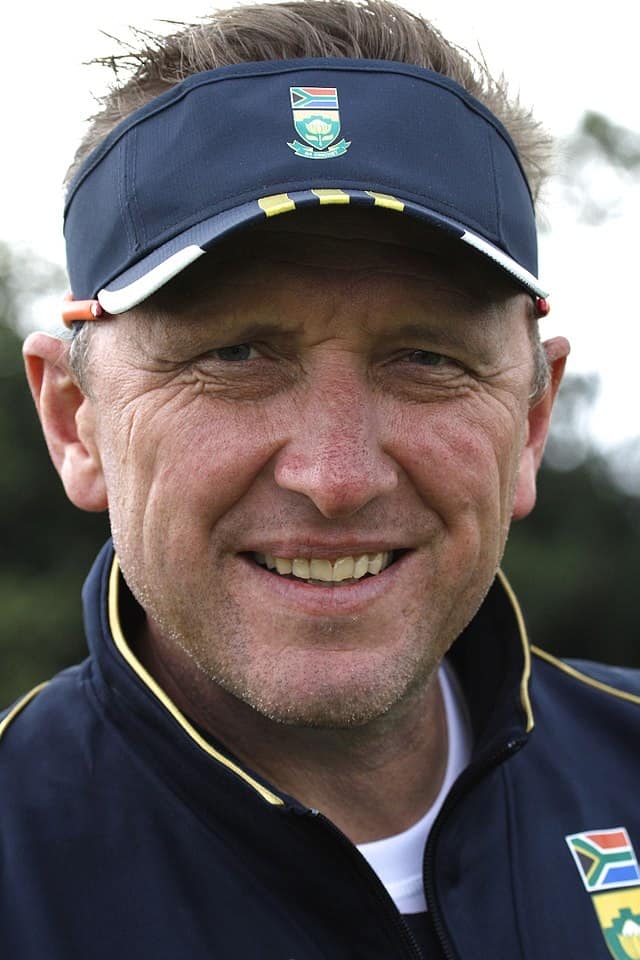
Allan Anthony Donald (born 20 October 1966) is a former South African cricketer who is now a cricket coach. Often nicknamed ‘White Lightning’, he is considered one of the South Africa national cricket team’s most successful pace bowlers.
Donald was one of the top fast bowlers in Test cricket, reaching the top of the ICC Test rankings in 1998, peaking with a ranking of 895 points the next year. In One Day Internationals (ODIs), he reached 794 points in 1998, ranked second behind teammate Shaun Pollock. He shared the new ball with Pollock from the 1996/1997 tour of India until his retirement in 2002. Since retiring Donald has been a coach with a number of teams, including international sides. From 2018 to 2019 he was the Assistant Coach at Kent County Cricket Club in England.
In 2019, Donald was inducted into the ICC Cricket Hall of Fame.
Read More About Allan Donald / Source
Viv Richards
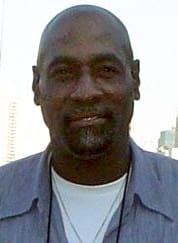
Sir Isaac Vivian Alexander Richards KNH, OBE (born 7 March 1952) is an Antiguan retired cricketer who represented the West Indies cricket team between 1974 and 1991. Batting generally at number three in a dominant West Indies side, Richards is widely regarded as one of the greatest batsmen of all time.Richards made his test debut in 1974 against India along with Gordon Greenidge. His best years were between 1976 and 1983 where he averaged a remarkable 66.51 with the bat. In 1984 he suffered from Pterygium and had a eye surgery which affect his eyesight and reflexes that made eye shots harder. although he remained the best batter in world for next four years until the decline in last couple of years where he averaged 38. Overall, Richards scored 8,540 runs in 121 Test matches at an average of 50.23, including 24 centuries. He also scored 1281 runs in World Series Cricket with four tons at average of over 55 which was regarded as highest and most difficult cricket ever played. As a captain, he won 27 of 50 Test matches and lost only 8. He also scored nearly 7,000 runs in One Day Internationals and more than 36,000 in first-class cricket.
He was knighted for his contributions to cricket in 1999. In 2000 he was voted one of Wisden’s five Cricketers of the Century by a 100-member panel of experts and in 2002 the almanack judged that he had played the best One Day International innings of all time. In December 2002, he was chosen by Wisden as the greatest One Day International batsman who had played to that date and as the third greatest Test cricket batter.In 2009, Richards was inducted into the ICC Cricket Hall of Fame.
Read More About Viv Richards / Source
AB de Villiers
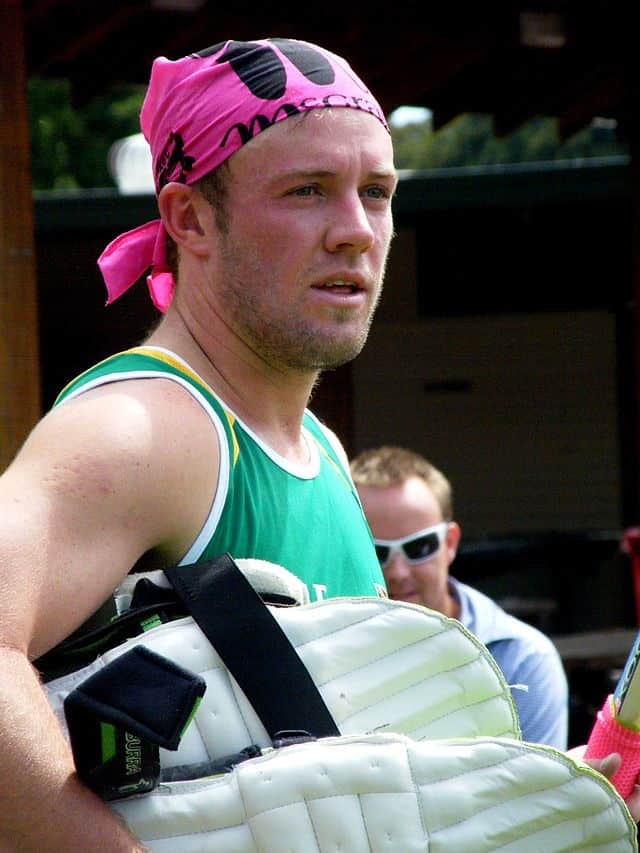
Abraham Benjamin de Villiers (born 17 February 1984) is a former South African professional cricketer. De Villiers was named as the ICC ODI Player of the Year three times during his 15-year international career and was one of the five Wisden cricketers of the decade at the end of 2019.AB de Villiers began his international career as a wicket-keeper-batsman, but he has played most often solely as a batsman. He batted at various positions in the batting order, but predominantly in the middle-order. Regarded as one of the most innovative and destructive batsmen in the modern era, as well as one of the greatest of all time, de Villiers is known for a range of unorthodox shots, particularly behind the wicket-keeper. He made his international debut in a Test match against England in 2004 and first played a One Day International (ODI) in early 2005. His debut in Twenty20 International cricket came in 2006. He scored over 8,000 runs in both Test and ODI cricket and is one of the very few batsmen to have a batting average of over fifty in both forms of the game. In limited overs cricket, he is an attacking player. He holds the record for the fastest ODI century in just 31 balls.
De Villiers captained South Africa in all three formats, although after a series of injuries, he stepped down from the Test captaincy. In 2017, he stepped down from captaining the national limited-overs games and in May 2018, he announced his retirement from all forms of international cricket. In January 2020, however, de Villiers expressed an interest in making an international comeback and play in the 2020 T20 World Cup, although later in the year it was confirmed that he would not do so. On 19 November 2021, De Villiers announced his retirement from all forms of cricket.
Read More About AB de Villiers / Source
Wally Hammond
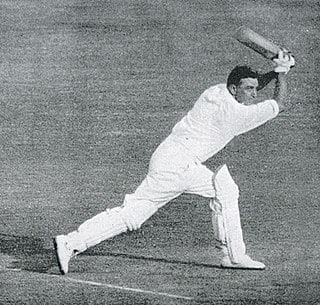
Walter Reginald Hammond (19 June 1903 – 1 July 1965) was an English first-class cricketer who played for Gloucestershire in a career that lasted from 1920 to 1951. Beginning as a professional, he later became an amateur and was appointed captain of England. Primarily a middle-order batsman, Wisden Cricketers’ Almanack described him in his obituary as one of the four best batsmen in the history of cricket. He was considered to be the best English batsman of the 1930s by commentators and those with whom he played; they also said that he was one of the best slip fielders ever. Hammond was an effective fast-medium pace bowler and contemporaries believed that if he had been less reluctant to bowl, he could have achieved even more with the ball than he did.
In a Test career spanning 85 matches, he scored 7,249 runs and took 83 wickets. Hammond captained England in 20 of those Tests, winning four, losing three, and drawing 13. His career aggregate of runs was the highest in Test cricket until surpassed by Colin Cowdrey in 1970; his total of 22 Test centuries remained an English record until Alastair Cook surpassed it in December 2012. In 1933, he set a record for the highest individual Test innings of 336 not out, surpassed by Len Hutton in 1938. In all first-class cricket, he scored 50,551 runs and 167 centuries, respectively the seventh and third highest totals by a first-class cricketer.
Although Hammond began his career in 1920, he was required to wait until 1923 before he could play full-time, after his qualification to play for Gloucestershire was challenged. His potential was spotted immediately and after three full seasons, he was chosen to visit the West Indies in 1925–26 as a member of a Marylebone Cricket Club touring party, but contracted a serious illness on the tour. He began to score heavily after his recovery in 1927 and was selected for England. In the 1928–29 series against Australia he scored 905 runs, then a record aggregate for a Test series. He dominated county cricket in the 1930s and, despite a mid-decade slump in Test form, was made captain of England in 1938. He continued as captain after the Second World War, but his health had deteriorated and he retired from first-class cricket after an unsuccessful tour of Australia in 1946–47. He appeared in two more first-class matches in the early 1950s.
Hammond was married twice, divorcing his first wife in acrimonious circumstances, and had a reputation for infidelity. His relationships with other players were difficult; teammates and opponents alike found him hard to get along with. He was unsuccessful in business dealings and failed to establish a successful career once he retired from cricket. He moved to South Africa in the 1950s in an attempt to start a business, but this came to nothing. As a result, he and his family struggled financially. Shortly after beginning a career as a sports administrator, he was involved in a serious car crash in 1960 which left him frail. He died of a heart attack in 1965.
Read More About Wally Hammond / Source
Jack Hobbs
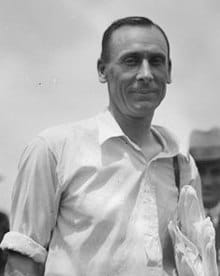
Sir John Berry Hobbs (16 December 1882 – 21 December 1963), always known as Jack Hobbs, was an English professional cricketer who played for Surrey from 1905 to 1934 and for England in 61 Test matches between 1908 and 1930. Known as “The Master”, he is regarded by critics as one of the greatest batsmen in the history of cricket. He is the leading run-scorer and century-maker in first-class cricket, with 61,237 runs and 197 centuries. A right-handed batsman and an occasional right-arm medium pace bowler, Hobbs also excelled as a fielder, particularly in the position of cover point.
Born into poverty in 1882, Hobbs wished from an early age to pursue a career in cricket. His early batting was undistinguished, but a sudden improvement in 1901 brought him to the attention of local teams. In 1903 he successfully applied to join Surrey, with the support of England batsman Tom Hayward. His reputation grew and when he qualified to play for Surrey, he scored 88 on his first-class debut and a century in his next game. Over the following seasons, he established himself as a successful county player and in 1908 made his Test debut for England, scoring 83 in his first innings. After some mixed early performances for England, Hobbs’ success against South African googly bowlers made his place secure, and by 1911–12, when he scored three centuries in the Test series against Australia, critics judged him the world’s best batsman. In county cricket, he developed an attacking, dynamic style of play and was very successful up until 1914. After serving in the Royal Flying Corps during the First World War, he maintained his reputation when cricket resumed in 1919, but his career was threatened by appendicitis, which caused him to miss most of the 1921 season. When he returned, he was a more cautious batsman and used a safer style of play. Subsequently, he became more consistent and scored prolifically in both Test and domestic cricket until his retirement. In this period, he played some of his most acclaimed innings.
Hobbs’ success was based on fast footwork, an ability to play many different shots, and excellent placement of the ball. Among the first batsmen to succeed against previously devastating googly bowlers, he adapted his technique to meet the new styles of bowling that arose early in his career; he mixed classical shots with an effective defence. He was particularly successful on difficult pitches for batting. An opening batsman, Hobbs established several effective opening partnerships; with Tom Hayward and Andy Sandham for Surrey and with Wilfred Rhodes and Herbert Sutcliffe for England. His partnership with Sutcliffe remains in 2016 the most effective for the first wicket, in terms of average partnership, in Test history. Contemporaries rated Hobbs extremely highly, and critics continue to list him among the best batsmen of all time.
Hobbs was very close to Ada, his wife of 56 years; the pair were able to live comfortably in later life through Hobbs’ substantial wage from Surrey, his commercial endorsements, and the proceeds of the sporting goods shop he opened in 1921 and ran for the rest of his life. After his cricketing retirement, he also worked in journalism. Knighted in 1953, the first professional cricketer to be so honoured, he spent his later years nursing his wife. He died, aged 81, a few months after her in 1963.
Read More About Jack Hobbs / Source
Steve Smith
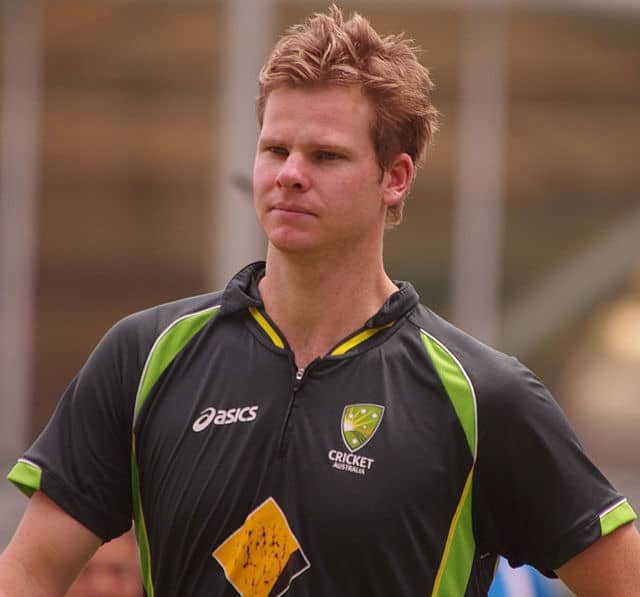
Steven Peter Devereux Smith (born 2 June 1989) is an Australian international cricketer and the current vice-captain of the Australia national cricket team in Tests. He was the former captain of the Australian national team. Smith has drawn comparisons to Donald Bradman, widely acknowledged as the greatest batsman of all time, due to his distinctively high Test batting average.Although he was initially selected for Australia as a right-arm leg spinner, Smith later played primarily as a batsman. After playing five matches from 2010 to 2011, he was recalled to the Australian team in 2013, and took over the captaincy from Michael Clarke in late 2015, after which he predominantly batted at either number 4 or 3.
Awards he has won include the Sir Garfield Sobers Trophy (ICC Cricketer of the Year) in 2015; ICC Test Player of the Year in 2015 and 2017; ICC Men’s Test Player of the Decade for 2011–2020; the Allan Border Medal for the best player in Australian Cricket in 2015, 2018 and 2021; Australian Test Player of the Year in 2015 and 2018, and Australian One Day International Player of the Year in 2015 and 2021. He was named by Wisden as one of their Cricketers of the Year in the 2016 Wisden Almanack.
In 2014, New Zealand batsman Martin Crowe described Smith as one of the young Fab Four of Test cricket along with Joe Root, Kane Williamson and Virat Kohli. On 30 December 2017, he reached a Test batting rating of 947, the second-highest of all time, only behind Don Bradman’s 961.
In March 2018, Smith was widely criticised for turning a blind eye to ball tampering in the third Test against South Africa, during which he stood down from the team captaincy and was replaced by Tim Paine. Following an investigation by Cricket Australia, Smith was banned from all international and domestic cricket in Australia for one year starting from 29 March 2018, and from consideration for any leadership role for an additional year.
In November 2021, Smith was appointed vice-captain after allegations of improper conduct by Tim Paine in 2017 surfaced. The following month, Smith captained Australia in the second Test of the 2021–22 Ashes series.
Read More About Steve Smith / Source
Len Hutton
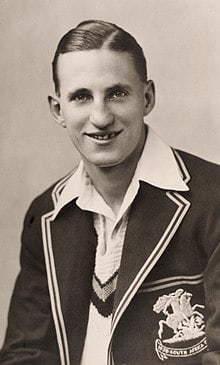
Sir Leonard Hutton (23 June 1916 – 6 September 1990) was an English cricketer. He played as an opening batsman for Yorkshire County Cricket Club from 1934 to 1955 and for England in 79 Test matches between 1937 and 1955. Wisden Cricketers’ Almanack described him as “one of the greatest batsmen in the history of cricket”. He set a record in 1938 for the highest individual innings in a Test match in only his sixth Test appearance, scoring 364 runs against Australia, a milestone that stood for nearly 20 years (and remains an England Test record). Following the Second World War, he was the mainstay of England’s batting. In 1952, he became the first professional cricketer of the 20th Century to captain England in Tests; under his captaincy England won the Ashes the following year for the first time in 19 years.
Marked out as a potential star from his teenage years, Hutton made his debut for Yorkshire in 1934 and quickly established himself at county level. By 1937, he was playing for England and when the war interrupted his career in 1939, critics regarded him as one of the leading batsmen in the country, and even the world. During the war, he received a serious injury to his arm while taking part in a commando training course. His arm never fully recovered, forcing him to alter his batting style. When cricket restarted, Hutton resumed his role as one of England’s leading batsmen; by the time of England’s tour to Australia in 1950–51, the team relied heavily on his batting and did so for the remainder of his career. As a batsman, Hutton was cautious and built his style on a sound defence. Although capable of attacking strokeplay, both Yorkshire and England depended on him, and awareness of this affected his style. Hutton remains statistically among the best batsmen to have played Test cricket.
Hutton captained the England Test team between 1952 and 1955, although his leadership was at times controversial. His cautious approach led critics to accuse him of negativity. Never comfortable in the role, Hutton felt that the former amateur players who administered and governed English cricket did not trust him. In 23 Tests as captain, he won eight Tests and lost four with the others drawn. Worn out by the mental and physical demands of his role, Hutton retired from regular first-class cricket during the 1955 season. Knighted for his contributions to cricket in 1956, he went on to be a Test selector, a journalist and broadcaster. He also worked as a representative for an engineering firm until retiring from the job in 1984. Hutton remained involved in cricket, and became president of Yorkshire County Cricket Club in 1990. He died a few months afterwards in September 1990, aged 74.
Read More About Len Hutton / Source
Peter May
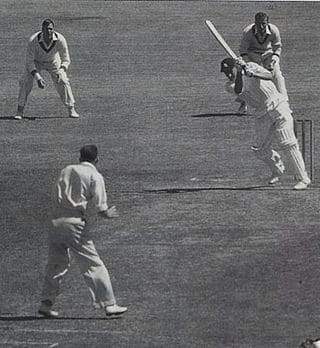
Peter Barker Howard May (31 December 1929 – 27 December 1994) was an English cricketer who played for Surrey County Cricket Club, Cambridge University and England. Already a cricketing prodigy during his school days, May played his entire cricket career as an amateur, and was regarded by many players and fans as England’s finest batsman in the post-war era.Described in his Wisden obituary as “tall and handsome with a batting style that was close to classical, and… the hero of a generation of school boys”, May was made a Commander of the Order of the British Empire in 1981, and posthumously inducted into the ICC Cricket Hall of Fame in 2009. Wisden Cricketer’s Almanack described May as a “schoolboy prodigy” who went on to become “one of England’s finest batsmen”.
Read More About Peter May / Source
Clyde Walcott
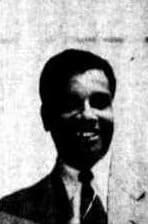
Sir Clyde Leopold Walcott KA, GCM, OBE (17 January 1926 – 26 August 2006) was a West Indian cricketer. Walcott was a member of the “three W’s”, the other two being Everton Weekes and Frank Worrell: all were very successful batsmen from Barbados, born within a short distance of each other in Bridgetown, Barbados in a period of 18 months from August 1924 to January 1926; all made their Test cricket debut against England in 1948.
In the mid-1950s, Walcott was arguably the best batsman in the world. In later life, he had an active career as a cricket administrator, and was the first non-English and non-white chairman of the International Cricket Council.
Read More About Clyde Walcott / Source
Matthew Hayden
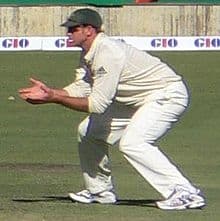
Matthew Lawrence Hayden (born 29 October 1971) is an Australian cricket commentator and former cricketer. His career spanned fifteen years. Hayden was a powerful and aggressive left-handed opening batsman.
Hayden holds the record for the highest score made by an Australian batsman in Tests (380). This is also the record for the highest individual test score by an opening batsman in Tests. His innings of 201 against India in Chennai remains the 2nd highest score by an Australian in India. He formed one of the most prolific opening partnerships in world Test cricket for Australia with Justin Langer, and in ODI cricket with Adam Gilchrist. Upon his retirement, in January 2009, Hayden’s Test average was 50.7; he had scored the second most runs in Test cricket by an opening batsman; and was equal 6th (with Jacques Kallis) on the all-time list for Test centuries.
Hayden retired from all forms of cricket in September 2012.In 2017, Hayden was inducted into the Australian Cricket Hall of Fame.In September 2021, Hayden was appointed as the Batting Coach of Pakistan for the 2021 ICC Men’s T20 World Cup.
Read More About Matthew Hayden / Source
Mohammad Yousuf
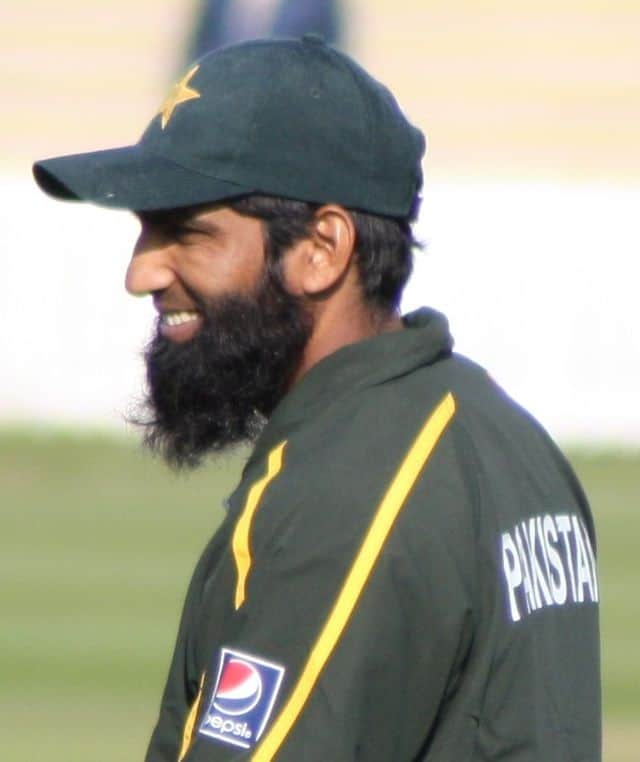
Mohammad Yousuf (Punjabi, Urdu: محمد یوسف ; formerly Yousuf Youhana, یوسف یوحنا; born 27 August 1974) is a Pakistani cricket coach and former cricketer and captain, who played all three formats. Prior to his conversion to Islam, Yousuf was one of the few Christians to play for the Pakistan national cricket team. Yousuf scored 1,788 runs in 2006 which is a world record for most runs scored in a year in tests at an average of almost 100.Yousuf was banned from playing international cricket for Pakistan by the Pakistan Cricket Board on 10 March 2010, following an inquiry into the team’s defeats during the tour of Australia. An official statement was released by the Pakistan Cricket Board, saying that he would not be selected again because he had created disciplinary problems and infighting within the team.In reaction to the ban, Yousuf announced his retirement from international cricket on 29 March 2010. However, following Pakistan’s disastrous first Test against England in July/August 2010, PCB decided to ask Yousuf to come out of retirement.
Read More About Mohammad Yousuf / Source
Graeme Pollock
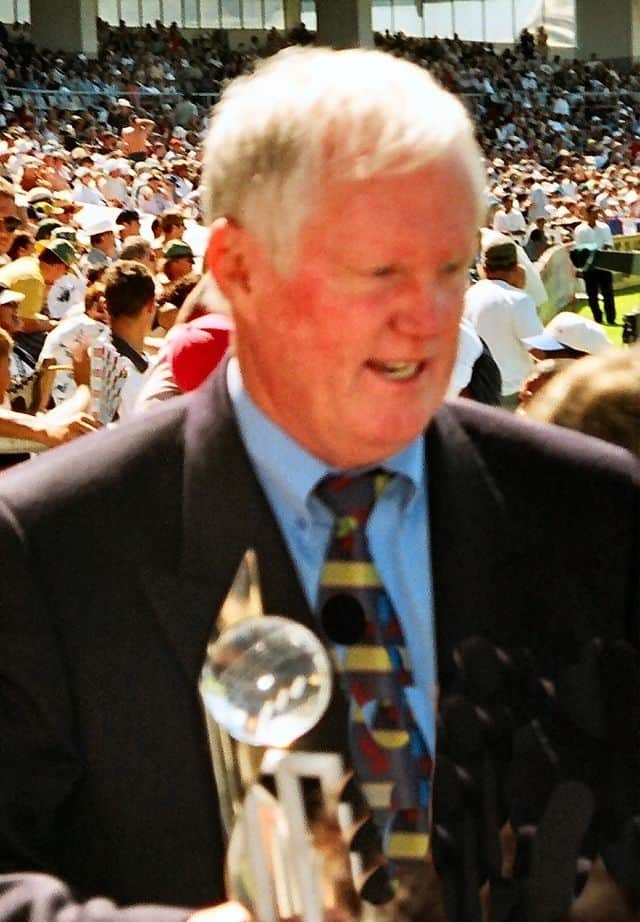
Robert Graeme Pollock (born 27 February 1944) is a former cricketer for South Africa, Transvaal and Eastern Province. A member of a famous cricketing family, Pollock is widely regarded as one of South Africa’s greatest ever cricketers, and as one of the finest batsmen to have played Test cricket. Despite Pollock’s international career being cut short at the age of 26 by the sporting boycott of South Africa, and all but one of his 23 Test matches being against England and Australia, the leading cricket nations of the day, he broke a number of records. His completed career Test match batting average of 60.97 remains fourth best after Sir Donald Bradman’s (99.94), Steve Smith’s, and Adam Voges’s averages.Pollock has been the recipient of numerous awards and accolades, including being voted in 1999 as South Africa’s Cricketer of the 20th Century, one of Wisden’s Cricketers of the Year in 1966, as well as being retrospectively selected in 2007 as the Wisden Leading Cricketer in the World in 1967 and 1969. In South Africa he was player of the year in 1961 and 1984, with special tributes in the S.A. Cricket annuals of 1977 and 1987. Bradman described Pollock, along with Sir Garfield Sobers, as the best left-handed batsman he had ever seen play cricket.In 2009, Pollock was inducted into the ICC Cricket Hall of Fame.
Read More About Graeme Pollock / Source
Everton Weekes
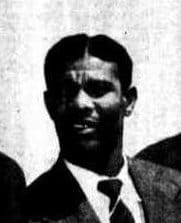
Dudley Nourse
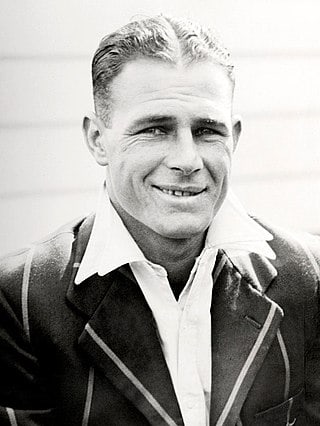
Arthur Dudley Nourse (12 November 1910 – 14 August 1981) was a South African Test cricketer. Primarily a batsman, he was captain of the South African team from 1948 to 1951.
Read More About Dudley Nourse / Source
Doug Walters
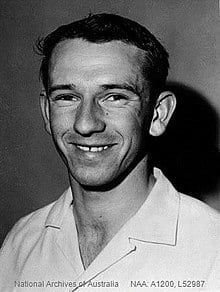
Kevin Douglas Walters (born 21 December 1945) is a former Australian cricketer. He was known as an attacking batsman, a useful part-time bowler, and also as a typical ocker.In 2011, he was inducted into the Cricket Hall of Fame by the CA.
Read More About Doug Walters / Source
Neil Harvey
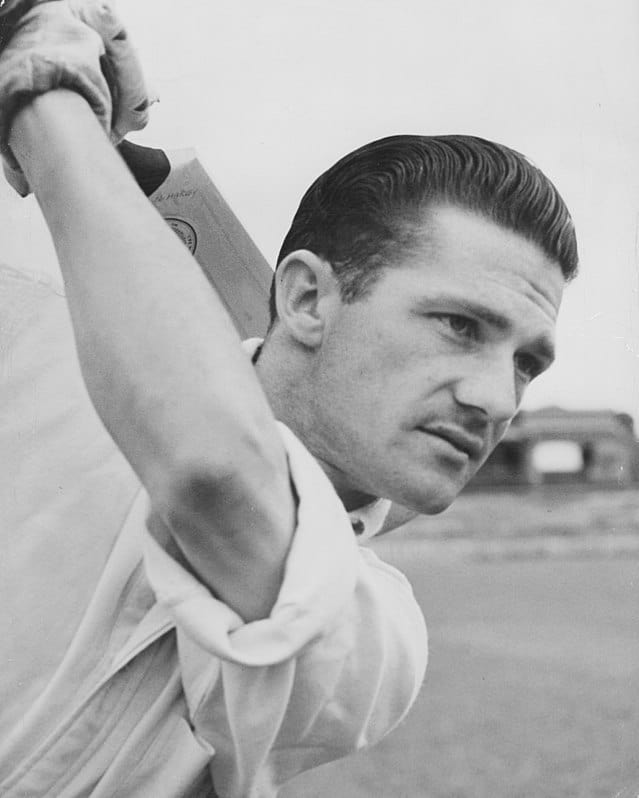
Robert Neil Harvey (born 8 October 1928) is an Australian former cricketer who was a member of the Australian cricket team between 1948 and 1963, playing in 79 Test matches. He was the vice-captain of the team from 1957 until his retirement. An attacking left-handed batsman, sharp fielder and occasional off-spin bowler, Harvey was the senior batsman in the Australian team for much of the 1950s and was regarded by Wisden as the finest fielder of his era. Upon his retirement, Harvey was the second-most prolific Test run-scorer and century-maker for Australia.
One of six cricketing brothers, four of whom represented Victoria, Harvey followed his elder brother Merv into Test cricket and made his debut in January 1948, aged 19 and three months. In his second match, he became the youngest Australian to score a Test century, a record that still stands. Harvey was the youngest member of the 1948 Invincibles of Don Bradman to tour England, regarded as one of the finest teams in history. After initially struggling in English conditions, he made a century on his Ashes debut. Harvey started his career strongly, with six centuries in his first thirteen Test innings at an average over 100, including four in 1949–50 against South Africa, including a match-winning 151 not out on a sticky wicket. As Bradman’s team broke up in the 1950s due to retirements, Harvey became Australia’s senior batsman, and was named as one of the Wisden Cricketers of the Year in 1954, in recognition of his feat in scoring more than 2,000 runs during the 1953 tour of England.
In 1957, he was passed over for the captaincy and was named as the deputy of Ian Craig, who had played just six matches, as Australia sought to rebuild the team with a youth policy following a decline in the team. Craig later offered to demote himself due to poor form, but Harvey prevented him from doing so. At any rate, Craig fell ill the following season, but Harvey had moved interstate, so Richie Benaud was promoted to the captaincy ahead of him. Harvey continued in the deputy’s role until the end of his career, but he was captain for only one Test match. In the Second Test at Lord’s in 1961, when Benaud was injured, Harvey led the team in the “Battle of the Ridge” on an erratic surface, grinding out a hard-fought victory. Only Bradman had scored more runs and centuries for Australia at the time of Harvey’s retirement. Harvey was best known for his extravagant footwork and flamboyant stroke play, as well as his fielding. Harvey was particularly known for his innings in conditions unfavourable to batting, performing when his colleagues struggled, such as his 151 not out in Durban, his 92 not out in Sydney in 1954–55, and his 96 on the matting in Dhaka. In retirement, he became a national selector for twelve years but in recent times is best known for his strident criticism of modern cricket. In 2000, he was inducted into the Australian Cricket Hall of Fame in and selected in the Australian Cricket Board’s Team of the Century. In 2009, Harvey was one of the 55 inaugural inductees into the ICC Cricket Hall of Fame.
Read More About Neil Harvey / Source
Michael Hussey
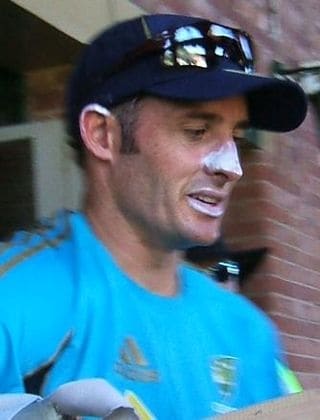
Michael Edward Killeen Hussey (born 27 May 1975) is an Australian cricket coach, commentator and former international cricketer, who played all forms of the game. Hussey is also widely known by his nickname ‘Mr Cricket’. Hussey was a relative latecomer to both the one-day international and Test Australian teams, debuting at 28 and 30 years of age in the respective formats, with 15,313 first-class runs before making his Test debut.However, he had a highly successful international career, being the top-ranked ODI batsman in the world in 2006. He played first-class cricket as vice-captain of the Western Warriors in Australia and played for three counties in England, as well as the Indian Premier League for the Chennai Super Kings. Michael Hussey announced his retirement from international cricket on 29 December 2012. He continued to play for Big Bash side Sydney Thunder after this date before announcing his retirement from all forms of cricket after the completion of the 2015-16 season.
Read More About Michael Hussey / Source
Kane Williamson
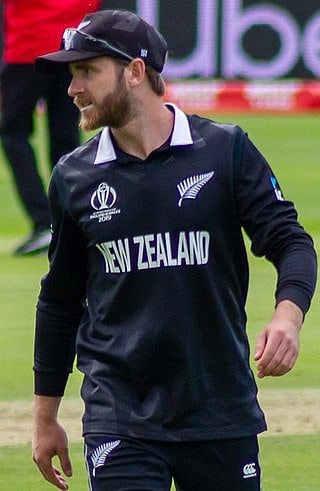
Kane Stuart Williamson (born 8 August 1990) is a New Zealand international cricketer who is currently the captain of the New Zealand national team in all formats. He is a right-handed batsman and an occasional off spin bowler.
Williamson made his first-class cricket debut in December 2007. He made his U-19 debut against the touring Indian U-19 team the same year and was named captain of the New Zealand U-19 team for the 2008 U-19 Cricket World Cup. He made his international debut in 2010. Williamson has represented New Zealand at the 2011, 2015 and 2019 editions of the Cricket World Cup and 2012, 2014, 2016 and 2021 editions of the ICC World Twenty20. He made his full-time captaincy debut for New Zealand in the 2016 ICC World Twenty20 in India. He captained New Zealand at the 2019 Cricket World Cup, leading the team to the final and winning the Player of the Tournament award in the process. On 31 December 2020, he reached a Test batting rating of 890, surpassing Steve Smith and Virat Kohli as the number one ranked Test batsmen in the world. He was nominated for the Sir Garfield Sobers Award for ICC Male Cricketer of the Decade, and the award for Test cricketer of the decade. Ian Chappell and Martin Crowe have ranked Williamson among the top four or five Test cricket batsmen, along with Joe Root, Steve Smith, and Virat Kohli of the current era.Williamson was the only New Zealander to be named in the ICC Test Team of the Decade (2011–2020). The late former New Zealand cricketer, Martin Crowe, noted that, “we’re seeing the dawn of probably our greatest ever batsman” in Williamson.In June 2021, he captained New Zealand to the inaugural ICC World Test Championship. In November 2021, he led New Zealand to the final of the ICC T20 World Cup.
Read More About Kane Williamson / Source
Joe Root
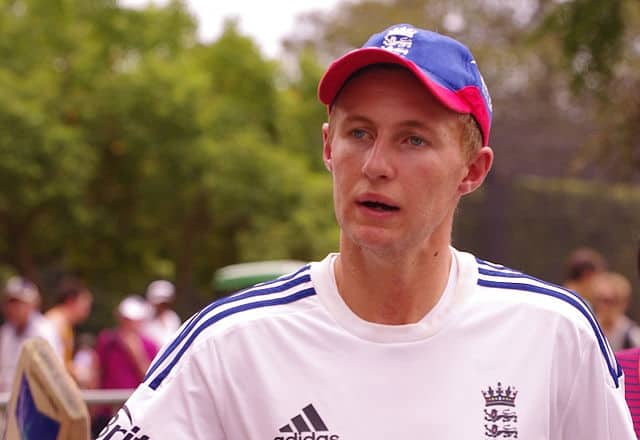
Joseph Edward Root, (born 30 December 1990) is an English cricketer who currently captains the England Test team and plays for the England One Day International (ODI) team. He also represents Yorkshire in English domestic cricket, and in 2018-19 played for Sydney Thunder in the Australian Twenty20 Big Bash League.
Root made his debut for England in the 2012 Test series in India and made his ODI and Twenty20 International (T20I) debuts on the same tour. He became captain of England’s Test team in February 2017, and holds the record for most Test matches (61), wins (27) and losses (24) as England captain. On the occasion of England’s 1,000th Test in August 2018, Root was named in the country’s greatest all-time Test XI by the England and Wales Cricket Board. He was part of the England team that won the 2019 Cricket World Cup and was England’s leading run-scorer at the tournament. He was named the ICC Men’s Test Cricketer of the Year of 2021. As of January 2022, he is currently ranked as the no. 2 Test batsman in the world in the ICC Player Rankings.A right-handed batsman, Root originally played as an opener but has played the majority of his cricket for England in the middle order. He is England’s second-highest run-scorer in Tests behind Alastair Cook, and England’s second-highest run-scorer in ODIs behind Eoin Morgan. He holds the record for most ODI centuries for England with 16 and, along with James Anderson, holds the world record for highest tenth-wicket stand in Tests: 198 against India during their 2014 tour of England. Root also bowls occasional off spin, and jointly holds the world record for the most expensive over in Test history, when in 2020 Keshav Maharaj scored 28 off one of Root’s overs during England’s tour of South Africa.
Read More About Joe Root / Source
Denis Compton
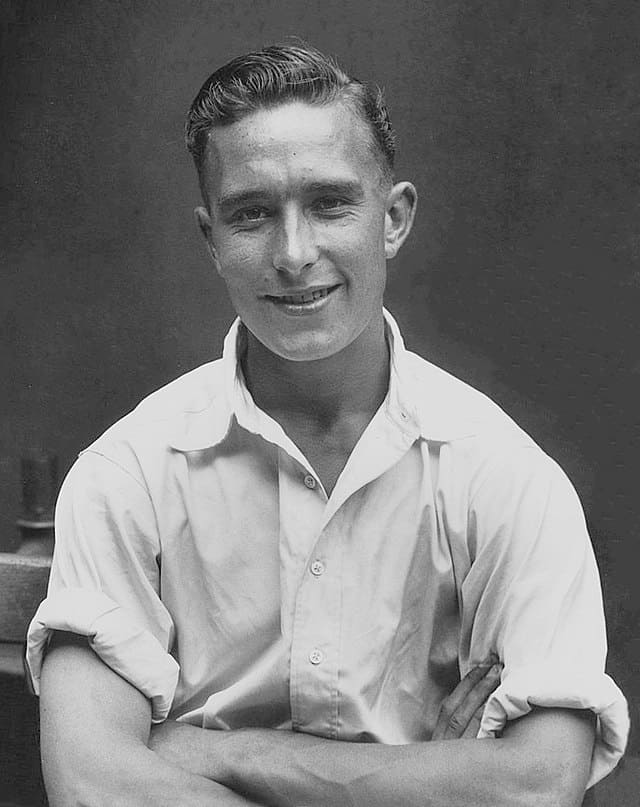
Denis Charles Scott Compton (23 May 1918 – 23 April 1997) was an English cricketer who played in 78 Test matches and spent his whole cricket career with Middlesex. He was also an accomplished footballer, who played most of his football career at Arsenal.A right-handed batsman and left-arm unorthodox spin bowler, Compton is regularly credited as one of England’s most remarkable batsmen. Indeed, Sir Don Bradman said he was one of the greatest cricket players he’d ever seen. He is one of only twenty-five players to have scored over one hundred centuries in first-class cricket. In 2009, Compton was posthumously inducted into the ICC Cricket Hall of Fame. The Denis Compton Oval and a stand at Lord’s Cricket Ground are both named in his honour.
Read More About Denis Compton / Source
George Headley
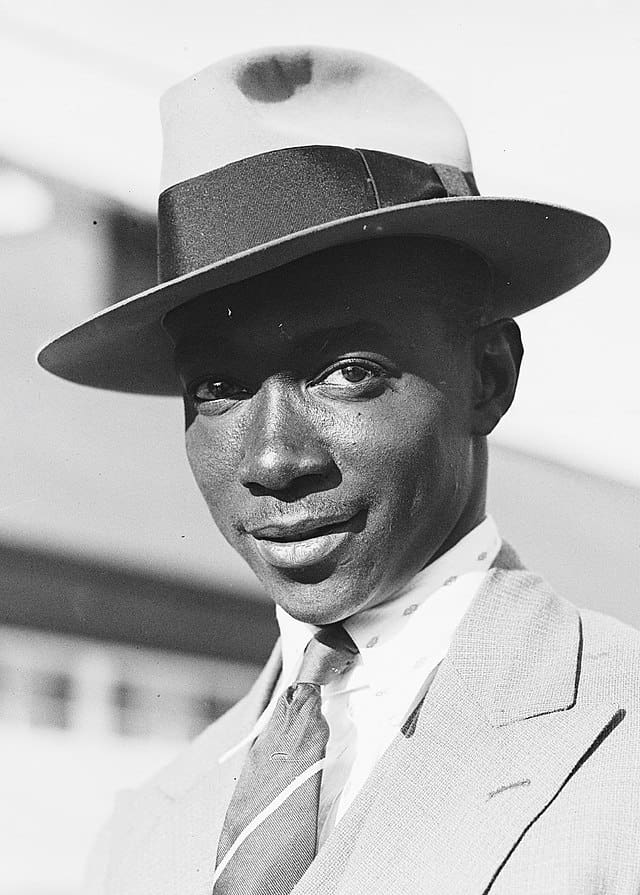
George Alphonso Headley OD, MBE (30 May 1909 – 30 November 1983) was a West Indian cricketer who played 22 Test matches, mostly before the Second World War. Considered one of the best batsmen to play for the West Indies and one of the greatest cricketers of all time, Headley also represented Jamaica and played professional club cricket in England. West Indies had a weak cricket team through most of Headley’s playing career; as their one world-class player, he carried a heavy responsibility and the side depended on his batting. He batted at number three, scoring 2,190 runs in Tests at an average of 60.83, and 9,921 runs in all first-class matches at an average of 69.86. He was chosen as one of the Wisden Cricketers of the Year in 1934.
Headley was born in Panama but raised in Jamaica where he quickly established a cricketing reputation as a batsman. He soon gained his place in the Jamaican cricket team, and narrowly missed selection for the West Indies tour of England in 1928. He made his Test debut in 1930, against England in Barbados, and was instantly successful. Further successes followed in series against Australia and in three more against England, as Headley dominated the West Indian batting of the period. Following his tour of England in 1933, Headley signed as a professional at Haslingden in the Lancashire League, where he played until the outbreak of war in 1939.
The war interrupted Headley’s career; although he returned to Tests in 1948 he was hampered by injuries and did not achieve his previous levels of success. Even so, he was chosen as West Indies captain in 1948 against England, the first black player to be appointed to the position, although a combination of injuries and politics meant he only led his team for one Test match. He did not play Tests between 1949 and 1953, but resumed his career in English league cricket, first in Lancashire and later in the Birmingham League. His playing career ended in 1954 on his return to Jamaica, after a public subscription paid his fare from England. After retiring as a player, Headley was employed as a cricket coach by the Jamaican government until 1962. He lived until 1983; his son Ron and his grandson Dean each played Test match cricket, for West Indies and England respectively.
Read More About George Headley / Source
Ken Barrington
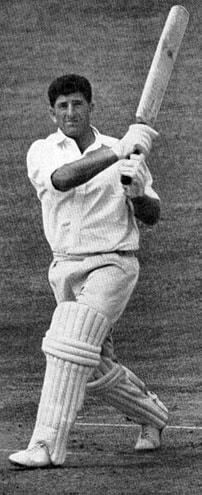
Kenneth Frank Barrington (24 November 1930 – 14 March 1981), was an English international cricketer who played for the England cricket team and Surrey County Cricket Club in the 1950s and 1960s. He was a right-handed batsman and occasional leg-spin bowler, known for his jovial good humour and long, defensive innings “batting with bulldog determination and awesome concentration”.His batting improved with the quality of the opposition; he averaged 39.87 in the County Championship, 45.63 in first-class cricket, 58.67 in Test cricket and 63.96 against Australia. Of players with a completed career, only Don Bradman with his average of 99.94 made more than Barrington’s 6,806 Test runs at a higher average, which is the seventh highest of batsmen who have made 1,000 Test runs, and the highest by a post-war England batsman. His 256 in the Fourth Test at Old Trafford in 1964 is the third highest score for England against Australia and the highest since the Second World War. Barrington twice made centuries in four successive Tests, and was the first England batsmen to make hundreds on all six traditional Test grounds: Old Trafford, Edgbaston, Headingley, Lord’s, Trent Bridge and The Oval.His Test career ended when he had a heart attack in Australia in 1968, even though he had several potentially fruitful years ahead of him. From 1975 to 1981 he was an England selector and a regular tour manager. He died from a second heart attack on 14 March 1981 during the Third Test at Bridgetown, Barbados, where he had made his maiden Test century 21 years before.
Read More About Ken Barrington / Source
Kevin Pietersen
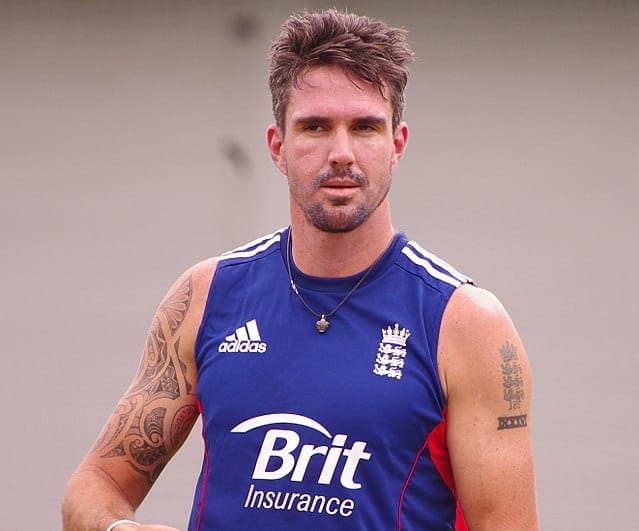
Kevin Peter Pietersen (born 27 June 1980) is a cricket commentator, conservationist, and former England international cricket player. He is a right-handed batsman and occasional off spin bowler who played in all three formats for England between 2005 and 2014, which included a brief tenure as captain.
Pietersen was born to an Afrikaner father and English mother in South Africa. He made his first-class debut for Natal in 1997 and moved to England in 2000, after voicing his displeasure at what he said was the racial quota system in South African cricket. Being of English ancestry, Pietersen was eligible for the England team so long as he first served a four-year qualifying period in English county cricket. He was called up by England almost immediately after he completed four years with Nottinghamshire. He made his international debut in the One Day International (ODI) match against Zimbabwe in 2004 and his Test match debut in the 2005 Ashes series against Australia.Pietersen left Nottinghamshire for Hampshire in 2005, but the England team’s subsequent reliance on him resulted in Pietersen making only a single first-class appearance for his new county between 2005 and 2010. In June 2010, Pietersen announced his wish to leave Hampshire; he joined Surrey on loan for the remainder of the season, then moved permanently in 2011.Pietersen was captain of the England Test and ODI teams from 4 August 2008 to 7 January 2009, but resigned after just three Tests and nine ODIs following a dispute with the England coach Peter Moores, who was sacked the same day. Pietersen’s relationship with the ECB never fully recovered. This came to a head in 2012 when, after a disagreement over his schedule, Pietersen announced his retirement from all forms of international limited-overs cricket on 31 May. Although he later retracted his retirement, his relationship with both the ECB and his team-mates soured during the series against South Africa, and he was dropped for the final Test of that series. Pietersen last played for England in the 2013–14 Ashes and subsequent ODIs, after which he was informed that he was no longer being considered for international selection.
He also played for the Melbourne Stars in the Big Bash League until the end of BBL|07 (seventh season), the Quetta Gladiators in the Pakistan Super League as well as the Hollywoodbets Dolphins in the CSA T20 Challenge. He was also signed by the Rising Pune Supergiants for the 2016 season of the Indian Premier League.
Pietersen is one of the fastest batsman to reach 1,000 ODI runs and still holds the record for being the fastest player to cross 2,000 runs in One Day International cricket. He has the second-highest run total from his first 25 Tests, behind only Sir Don Bradman of Australia, and was the fastest player, in terms of days, to reach 4,000, 5,000 and 7,000 Test runs. He became only the third English batsman to top the ICC One Day International rankings, doing so in March 2007. In July 2008, after a century against South Africa, The Times called him “the most complete batsman in cricket” and in 2012 The Guardian called him “England’s greatest modern batsman”. On the occasion of England’s 1000th Test in August 2018, he was named in the country’s greatest Test XI by the ECB. He won the Player of the Series award for his heroics in 2010 ICC World Twenty20 and for helping the England Cricket Team win their maiden ICC trophy.
Read More About Kevin Pietersen / Source
Hashim Amla
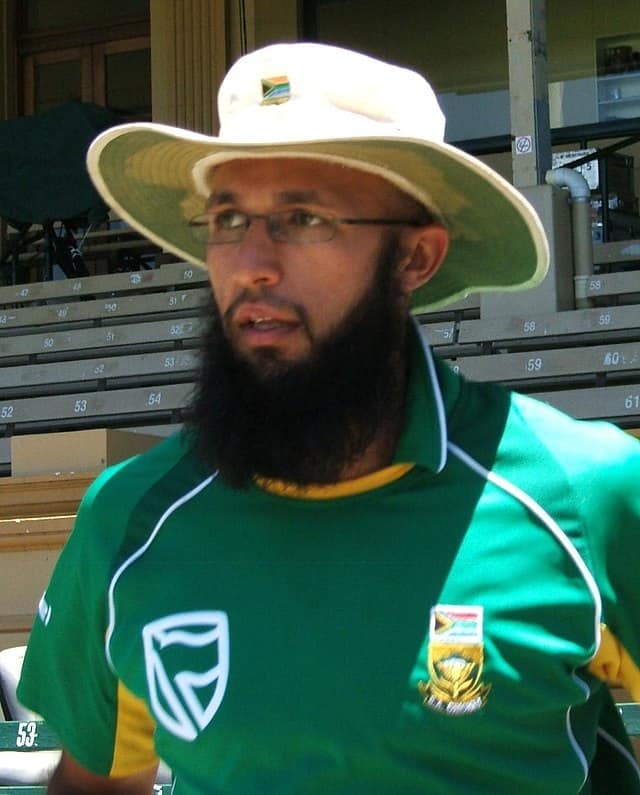
Hashim Mahomed Amla OIS (born 31 March 1983) is a South African former international cricketer who played for South Africa in all three formats of the game. Amla holds the record for being the fastest ever to score 2000, 3000, 4000, 5000, 6000 and 7000 ODI runs. He also became the fastest cricketer to reach 10 ODI centuries. Amla is an occasional off break bowler and was South Africa’s Test captain from June 2014 to January 2016.
He is a right-handed batsman and holds the record for the highest individual Test score of any South African batsman of 311 not out, scored against England at The Oval, London in July 2012.He became the fastest cricketer to score 15, 16, 17, 18 and 20 centuries in One Day International (ODI) Cricket, doing so in 86, 94, 98, 102 and 108 innings respectively.
He has scored ODI centuries against all Test playing countries and is only the fourth person to do so. He was named as one of the Wisden Cricketers of the Year in 2013. In 2017, he scored 2 centuries in the Indian Premier League, playing for Kings XI Punjab. He became the fastest player to score 7,000 runs in ODIs. On 3 June 2017, he became the fastest cricketer to reach 25 ODI centuries. On 19 January 2018, Amla broke Virat Kohli’s record for being the fastest cricketer to reach 27 centuries in ODI cricket. Amla has reached the milestone in 167 innings, surpassing Kohli’s 169.
On 8 August 2019, Amla announced his retirement from international cricket.
Read More About Hashim Amla / Source
Shivnarine Chanderpaul
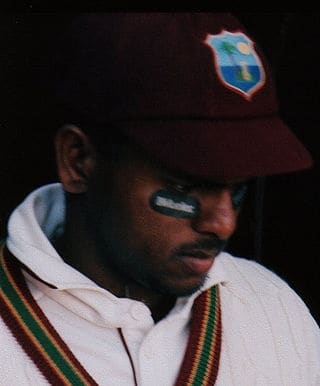
Shivnarine “Shiv” Chanderpaul (born 16 August 1974) is a Guyanese former cricketer of Indian descent and former West Indian international cricketer and captain of the West Indies cricket team. Considered one of the greatest batsmen of his era, Chanderpaul is the first Indo-Caribbean to play 100 Tests for the West Indies.
Chanderpaul captained West Indies in 14 Tests and 16 One Day Internationals. A left-handed batsman, Chanderpaul is well known for his unorthodox batting stance, which has been described as crab-like. He has scored 20,000 runs in international cricket, and in 2008 he was named as one of the five Cricketers of the Year by the Wisden Cricketers’ Almanack, and awarded Sir Garfield Sobers Trophy (ICC Cricketer of the Year) by the International Cricket Council.
He made his international debut at the age of 19, but did not score a century in international cricket for three years, prompting some criticism. Early in his career, he was plagued by injuries, and was even dubbed a hypochondriac until he had a piece of floating bone removed from his foot in 2000. Since then he has enjoyed consistent form, scoring over 11,000 runs in Test cricket and is currently the 8th highest run scorer of all time in the format.Due to poor performances, Chanderpaul was dropped from the West Indies squad in 2015. After that, he announced his retirement from international cricket in 2016, without a farewell, at the age of 41.
Read More About Shivnarine Chanderpaul / Source
Michael Clarke
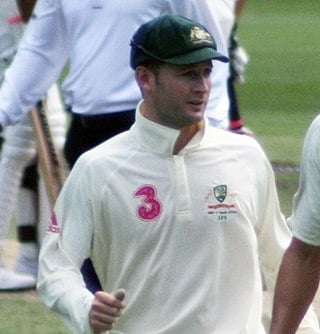
Michael John Clarke (born 2 April 1981) is an Australian former cricketer. He was captain of the Australian cricket team in both Test and One Day International (ODI) between 2011 and 2015, leading Australia to victory in the 2015 Cricket World Cup. He also served as captain of the Twenty20 International (T20I) side between 2007 and 2010. He is regarded as one of the best batsmen of his generation.
Nicknamed “Pup”, Clarke was a right-handed middle-order batsman, an occasional left-arm orthodox spin bowler and also a slip catcher. He represented New South Wales at a domestic level.
Clarke retired from all forms of cricket after the final Test of the 2015 Ashes series.
Read More About Michael Clarke / Source
Andy Flower
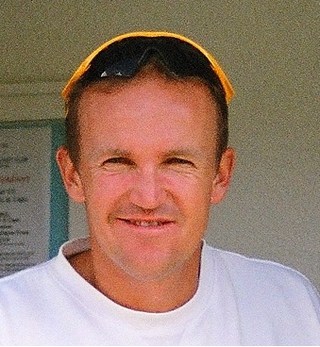
Andrew Flower (born 28 April 1968) is a Zimbabwean cricket coach and former cricketer. As a cricketer, he captained the Zimbabwe national cricket team. He was Zimbabwe’s wicket-keeper for more than 10 years and is, statistically, the greatest batsman the country has produced. During his peak from October to December 2001, Flower was ranked as the best Test batsman in the world. He was widely acknowledged as the only Zimbabwe batsman of proper test quality in any conditions. After retirement, he served as the coach of the English cricket team from 2009 to 2014. Flower became the second foreign coach in the team’s history. Currently, he is the Head Coach of Lucknow Super Giants in Indian Premier League. He also works as the head coach of the Multan Sultans and St Lucia Kings.Under his tenure, Flower led the Multan Sultans to their first-ever playoffs in the 2020 season. The Sultans finished first in the league stage but ultimately lost in the preliminaries. Similarly, he led the Zouks to their first-ever finals appearance in the CPL. Flower also serves as assistant coach to Kings XI Punjab. In June 2021, he was inducted to the ICC Cricket Hall of Fame and became the first ever Zimbabwean to be inducted into ICC Hall of Fame.
Read More About Andy Flower / Source
Colin McDonald

Colin Campbell McDonald (17 November 1928 – 8 January 2021) was an Australian cricketer. He played in 47 Test matches from 1952 to 1961, and 192 first-class matches between 1947 and 1963. He was born in Glen Iris, Victoria.
Read More About Colin McDonald / Source
Herbert Sutcliffe
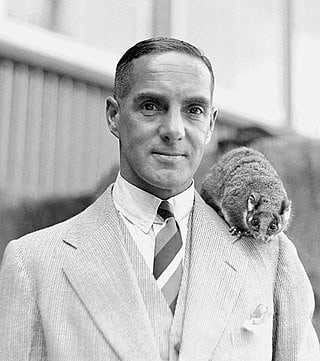
Herbert Sutcliffe (24 November 1894 – 22 January 1978) was an English professional cricketer who represented Yorkshire and England as an opening batsman. Apart from one match in 1945, his first-class career spanned the period between the two world wars. His first-class debut was delayed by the First World War until 1919 and his career was effectively terminated in August 1939 when he was called up for military service in the imminent Second World War.
He was the first cricketer to score 16 centuries in Test match cricket.
A right-handed batsman, Sutcliffe was noted for his concentration and determination, qualities which made him invaluable to his teams in adverse batting conditions; and he is remembered as one of the game’s finest “bad wicket batsmen”. His fame rests mainly in the great opening partnership he formed with Jack Hobbs for England between 1924 and 1930. He also formed notable opening partnerships at Yorkshire with Percy Holmes and, in his last few seasons, the young Len Hutton. During Sutcliffe’s career, Yorkshire won the County Championship 12 times. Sutcliffe played in 54 Test matches for England and on three occasions he toured Australia, where he enjoyed outstanding success. His last tour in 1932–33 included the controversial “bodyline” series, in which Sutcliffe is perceived to have been one of Douglas Jardine’s main supporters. Although close friends have stated that Sutcliffe did not approve of bodyline, he always acted out of fierce loyalty to his team captain and was committed to his team’s cause. In statistical terms, Sutcliffe was one of the most successful Test batsmen ever; his completed career batting average was 60.73 which is the highest by any English batsman and the seventh-highest worldwide (of Test batsmen with 20 completed innings) behind only Don Bradman, Marnus Labuschagne, Steve Smith, Adam Voges, Graeme Pollock and George Headley.
Sutcliffe became a successful businessman early in his first-class career by using the money he earned as a player to establish a sportswear shop in Leeds. When his playing career ended, he served on the club committee at Yorkshire for 21 years and for three years was an England Test selector. Among the honours accorded him have been the commemoration of a special set of gates in his name at Headingley, home of Yorkshire County Cricket Club, and his induction into the ICC Cricket Hall of Fame.
Read More About Herbert Sutcliffe / Source
Clem Hill
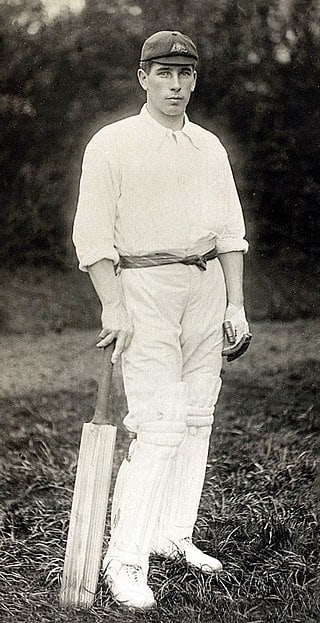
Clement “Clem” Hill (18 March 1877 – 5 September 1945) was an Australian cricketer who played 49 Test matches as a specialist batsman between 1896 and 1912. He captained the Australian team in ten Tests, winning five and losing five. A prolific run scorer, Hill scored 3,412 runs in Test cricket—a world record at the time of his retirement—at an average of 39.21 per innings, including seven centuries. In 1902, Hill was the first batsman to make 1,000 Test runs in a calendar year, a feat that would not be repeated for 45 years. His innings of 365 scored against New South Wales for South Australia in 1900–01 was a Sheffield Shield record for 27 years. The South Australian Cricket Association named a grandstand at the Adelaide Oval in his honour in 2003 and he was inducted into the Australian Cricket Hall of Fame in 2005.
A short and stocky left-handed batsman, Hill had a crouched, somewhat awkward stance. He gripped the bat low on the handle, playing with a strong bottom hand. His batting style was nonetheless attractive and effective and he was especially strong on the leg side and when cutting. Able to score quickly when required, he was also recognised for his patience and strong defence. Hill normally batted at No. 3 and, along with his contemporary Victor Trumper, he was a mainstay of the Australian batting line-up in the early years of the 20th century. Hill had a strong throwing arm and was an excellent outfielder. He was a popular team-mate and captain, respected for his directness, honesty and cheerfulness.
He played his first first-class cricket match for South Australia while still a schoolboy, aged 16. By the time he was 19, he had been included in the Australian team touring England in 1896, where he made his Test match début. At the Melbourne Cricket Ground two years later, Hill scored 188; his maiden Test century and still the highest score in Ashes Tests by a player under 21. He was named one of Wisden Cricketers of the Year in 1899, despite missing half the English season due to illness. In the 1901–02 season, Hill was dismissed in consecutive innings for 99, 98 and 97. In total he was dismissed between 90 and 99 five times in Test cricket. In 1903–04, Hill was at the centre of a riot at the Sydney Cricket Ground after he was adjudged run out in a Test match against England. With Roger Hartigan he still holds the Australian Test record partnership for the eighth wicket—243, made against England at the Adelaide Oval in 1907–08.
Hill had a strained relationship with Australian cricket authorities. He turned down an invitation to tour England in 1909 due to his unhappiness with the contract terms offered. Despite this, he was appointed Test captain in 1910–11 for the series against South Africa. His Test cricket career ended in controversy after he was involved in a brawl with cricket administrator and fellow Test selector Peter McAlister in 1912. He was one of the “Big Six”, a group of leading Australian cricketers who boycotted the 1912 Triangular Tournament in England when the players were stripped of the right to appoint the tour manager. The boycott effectively ended his Test career. After retiring from cricket, Hill worked in the horse racing industry as a stipendiary steward and later as a handicapper for races including the Caulfield Cup. Hill died in 1945 aged 68 when thrown from a tram in Melbourne in a traffic accident.
Read More About Clem Hill / Source
Javed Miandad
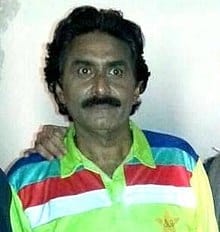
Mohammad Javed Miandad (Urdu: محمد جاوید میانداد; born 12 June 1957), popularly known as Javed Miandad (Urdu: جاوید میانداد), is a Pakistani cricket coach, commentator and former cricketer known for his unconventional style of captaincy and batting. ESPNcricinfo described him as “the greatest batsman Pakistan has ever produced” and his contemporary Ian Chappell extolled him as one of the finest batsmen in the history of cricket.
He played for Pakistan in Tests and One-Day Internationals between 1975 and 1996. Noted for his unique technique and impressive control, Miandad has won accolades and applause from cricket historians as well as contemporaries. Miandad was ranked 44th among the best cricketers of all time by the ESPN Legends of Cricket. He has served as a captain of the Pakistan team. He is widely known for his historic last ball big six against India in 1986 at Sharjah, when 4 runs were required to win, winning an international game in that fashion for the first time, and for his contribution with the bat in the 1992 ICC World Cup.
After his playing career, Miandad has remained the coach of Pakistan cricket team at various occasions, as well as held key positions in the Pakistan Cricket Board. He had three coaching stints with the Pakistan national team.In 2009, Miandad was inducted into the ICC Cricket Hall of Fame.
Read More About Javed Miandad / Source
Greg Chappell
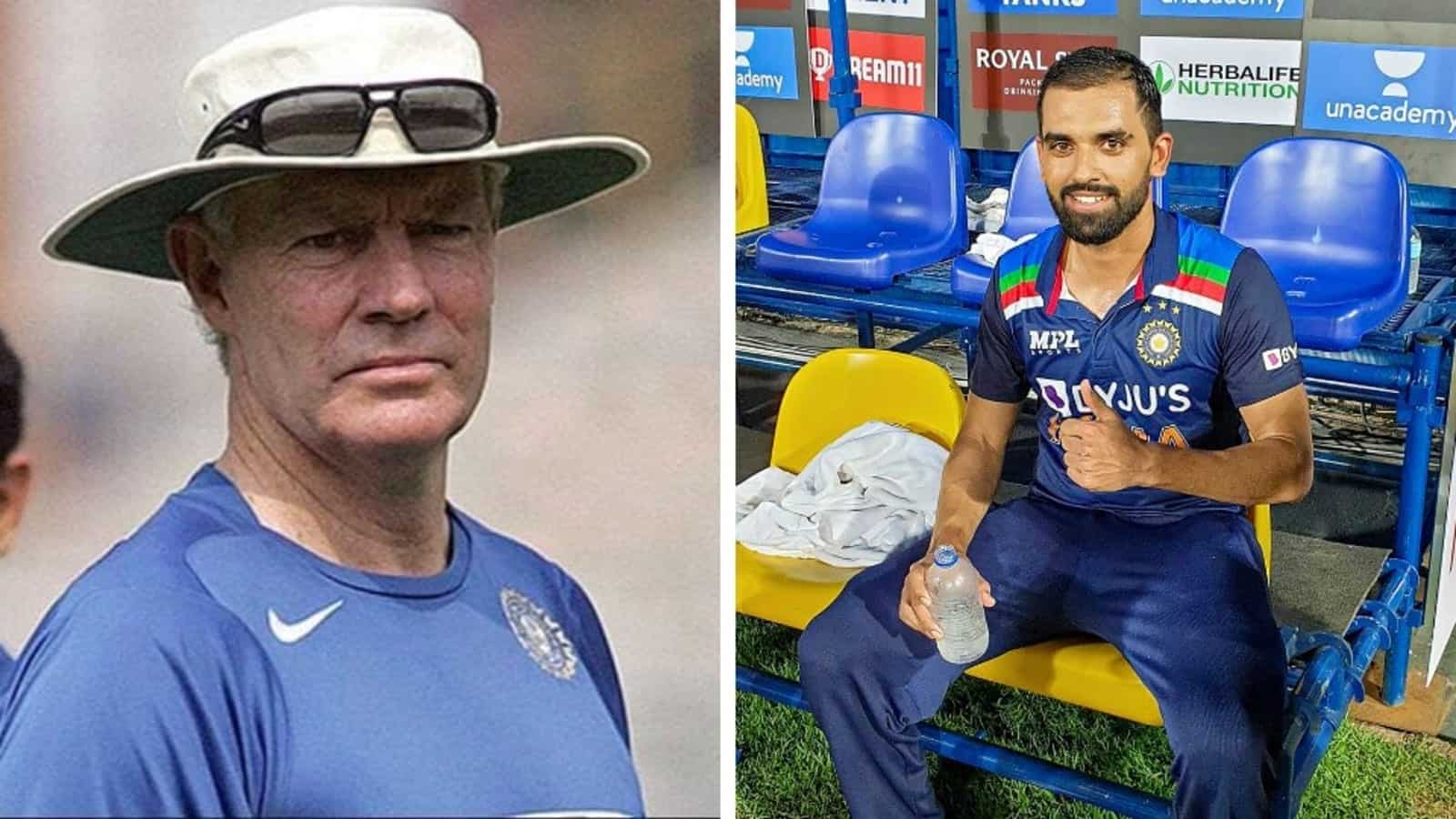
Gregory Stephen Chappell (born 7 August 1948) is a former cricketer who represented Australia at international level in both Tests and One-Day Internationals (ODI). The second of three brothers to play Test cricket, Chappell was the pre-eminent Australian batsman of his time who allied elegant stroke making to fierce concentration. An exceptional all round player who bowled medium pace and, at his retirement, held the world record for the most catches in Test cricket, Chappell’s career straddled two eras as the game moved toward a greater level of professionalism after the WSC schism.Since his retirement as a player in 1984, Chappell has pursued various business and media interests as well as maintaining connections to professional cricket; he has been a selector for national and Queensland teams, a member of the Australian Cricket Board, and a coach.
Read More About Greg Chappell / Source
Younus Khan
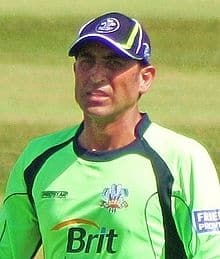
Mohammad Younis Khan (Pashto: محمد یونس خان; born 29 November 1977) is a Pakistani professional cricket coach and former cricketer and captain of the Pakistan national cricket team in all three formats of the game, and is widely regarded as one of the greatest middle-order batsmen in Test cricket. Khan is the only Test cricketer in the history of the game to score a century in all 11 countries that have hosted Test matches.Younis holds the record for the most runs and the most centuries scored by a Pakistani in Test cricket history. and is the third Pakistani player to score 300 or more runs in an innings. He is one of the handful of Test batsman in the world with a century conversion ratio of over 50 percent, with 34 centuries and 33 fifties. He led Pakistan to their victory in the 2009 ICC World Twenty20, which was their first World Twenty20 title. On 23 April 2017, he became the first Pakistani and 13th ever batsmen to score 10,000 runs in Test cricket. He became the oldest and sixth fastest batsmen to reach the 10,000 run milestone in relation to innings played.On 24 March 2010, Younis, along with teammate Mohammad Yousuf were suspended from playing by the Pakistan Cricket Board following an inquiry report which suggested they were involved in breaches of discipline by inciting divisions within the team. The ban was lifted three months later. In a Test match against Australia beginning on 22 October 2014, Younis made his 25th and 26th centuries in the same match, becoming just the 6th Pakistani to do so. On 25 June 2015, Younis became the fifth Pakistani cricketer to play 100 Test matches and on 13 October 2015, he became Pakistan’s highest run scorer in Test cricket, breaking Javed Miandad’s record of 8,832 runs.He retired from ODI cricket in November 2015. He retired from all forms of international cricket at the conclusion of the series against the West Indies in May 2017.
Read More About Younus Khan / Source
David Warner
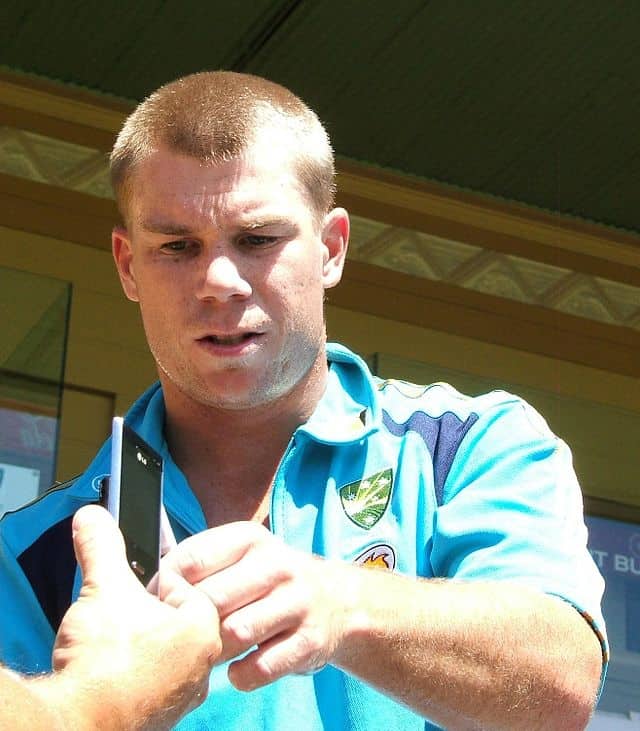
David Andrew Warner (born 27 October 1986) is an Australian international cricketer and a former captain of the Australian national team. A left-handed opening batsman, Warner is the first Australian cricketer in 132 years to be selected for a national team in any format without experience in first-class cricket. He plays for New South Wales and the Sydney Thunder in domestic cricket. He served as the Australian vice-captain across Test and ODI formats of the game between 2015 and 2018.In January 2017, he became the fourth player to win the Allan Border Medal more than once and also win the award in consecutive years.
On 28 September 2017, he played in his 100th ODI and became the first batsman for Australia and 8th batsman overall to score a century in his 100th ODI.
In March 2018, following a preliminary investigation into ball tampering by the Australian team in the third match of their Test series against South Africa, he was suspended, charged with bringing the game into disrepute. Following a board meeting on 28 March 2018, Cricket Australia banned Warner from all international and domestic cricket in Australia for one year, and from any leadership positions permanently.In November 2019, Warner scored the second-highest individual score by any Australian Test batsman with 335 not out against Pakistan.
Read More About David Warner / Source
Bill Lawry
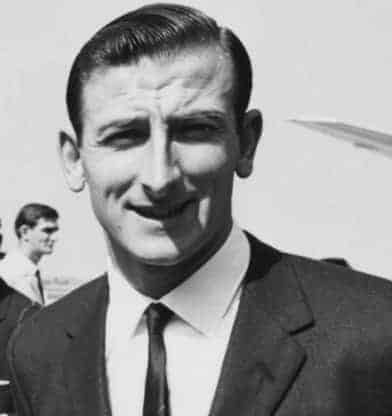
William Morris Lawry (born 11 February 1937) is an Australian former cricketer who played for Victoria and Australia. He captained Australia in 25 Test matches, winning nine, losing eight and drawing eight, and led Australia in the inaugural One Day International match, played in 1971.
An opening batsman with a reputation for resolute defence, he had the ability to spend long periods of time at the crease. As his career progressed, he wound back his strokeplay to the point where he was described by an English journalist as “the corpse with pads on”. Lawry was unceremoniously dumped as captain and player for the final Test of the 1970–71 Ashes series in Australia. Lawry’s sacking is regarded as one of the more distasteful incidents in Australian cricket history—he was not informed personally of the selectors’ decision before the decision was first broadcast on radio and he only became aware of his fate when confronted by reporters. Lawry was part of the Nine Network cricket commentary team and until 2018, had been in the role for 45 years.
Read More About Bill Lawry / Source
Marnus Labuschagne
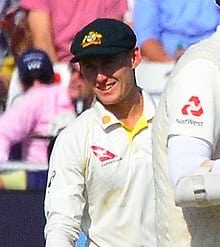
Marnus Labuschagne ( or ; born 22 June 1994) is an Australian cricketer who plays internationally for the Australian national team and domestically for Queensland. He also plays for Glamorgan in county cricket and for the Brisbane Heat in the Big Bash League. As of December 2021, Labuschagne is rated as the No. 1 batsman in the world in the ICC Test batting rankings.
In August 2019, Labuschagne was the first cricketer to become a concussion substitute in a Test match, replacing Steve Smith. Labuschagne was the leading run-scorer in Test matches in 2019. He rose to fourth place in the ICC Player Rankings during the year, a rise of 106 places. In January 2020, Labuschagne was named as the ICC Men’s Emerging Cricketer of the Year by the International Cricket Council (ICC), in February as Australia’s Test player of the year, and in April as one of the five Cricketers of the Year by Wisden Cricketers’ Almanack.
Read More About Marnus Labuschagne / Source
Angelo Mathews
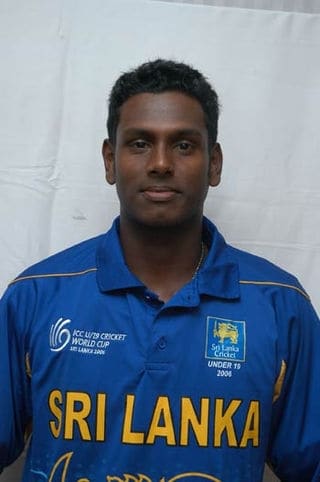
Angelo Davis Mathews, (Sinhala: ඇන්ජෙලෝ ඩේවිස් මැතිව්ස්; Tamil: அஞ்சலோ மத்யூஸ்; born 2 June 1987), is a professional Sri Lankan cricketer and a former captain in all formats. He was also a key member of the team that won the 2014 ICC World Twenty20 and was part of the team that made the finals of 2011 Cricket World Cup, 2009 ICC World Twenty20 and 2012 ICC World Twenty20. An occasional bowler who can deliver swinging match-winning spells, Mathews and Lasith Malinga holds the record for the highest ninth wicket partnership in ODI cricket.
Read More About Angelo Mathews / Source
Allan Border
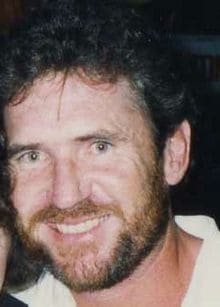
Allan Robert Border AO (born 27 July 1955) is an Australian cricket commentator and former international cricketer. A batsman, Border was for many years the captain of the Australian team. His playing nickname was “A.B.”. He played 156 Test matches in his career, a record until it was passed by fellow Australian Steve Waugh. Border formerly held the world record for the number of consecutive Test appearances of 153, before it was surpassed in June 2018 by Alastair Cook, and is second on the list of number of Tests as captain.He was primarily a left hand batsman, but also had occasional success as a part-time left arm orthodox spinner. Border amassed 11,174 Test runs (a world record until it was passed by Brian Lara in 2006). He hit 27 centuries in his Test career. He retired as Australia’s most capped player and leading run-scorer in both Tests and ODIs. His Australian record for Test Match runs stood for 15 years before Ricky Ponting overtook him during the Third Ashes Test against England in July 2009.Border was one of the 55 inaugural inductees of the ICC Cricket Hall of Fame.In 2009 as part of the Q150 celebrations, Allan Border was announced as one of the Q150 Icons of Queensland for his role as a “sports legend”.In 2016, Border was a recipient of the Queensland Greats Awards. In a fan poll conducted by the CA in 2017, he was named in the country’s best Ashes XI in the last 40 years.
Read More About Allan Border / Source
Aubrey Faulkner
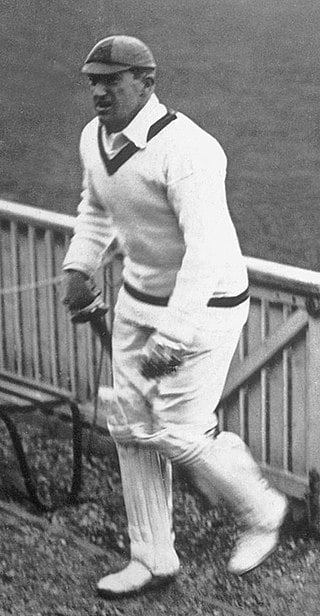
George Aubrey Faulkner (17 December 1881 – 10 September 1930) was a South African cricketer who played 25 Test matches for South Africa and fought in both the Second Boer War and World War I. In cricket, he was an all-rounder who was among the best batsmen in the world at his peak and was one of the first leg spin bowlers to use the googly.
Faulkner played Test cricket for South Africa from 1906 to 1912. His greatest achievements as a Test cricketer included taking six wickets in eleven overs against England and the first-ever double century by a South African. He was the best all-rounder in the world during his career. Following his Test career, he played club cricket in Nottingham.
Faulkner was awarded the Distinguished Service Order and Order of the Nile for his bravery in World War I. During the war, he contracted malaria multiple times, which physically deteriorated his body. Unable to play cricket at the same level as before the war, he turned instead to coaching, starting a cricket school, and training several future Test cricketers. Faulkner likely suffered from undiagnosed bipolar disorder, and he committed suicide in September 1930. In June 2021, he was inducted into the ICC Cricket Hall of Fame as one of the special inductees to mark the inaugural edition of the ICC World Test Championship final.
Read More About Aubrey Faulkner / Source
Michael Vaughan
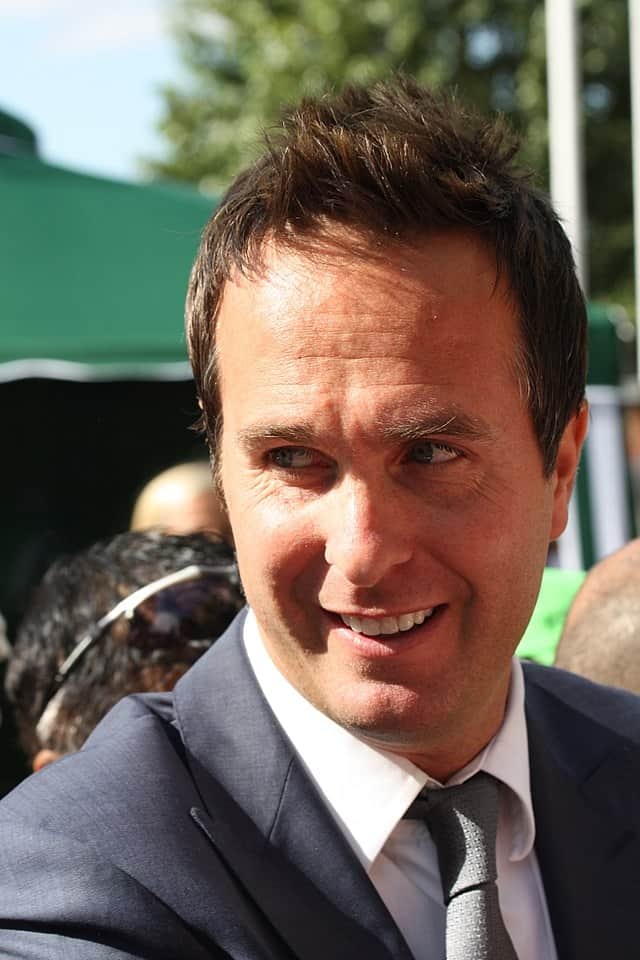
Michael Paul Vaughan (born 29 October 1974) is an English cricket commentator and former cricketer who played all forms of the game. He served as England captain for the test team from 2003 to 2008, the one-day international team from 2003–2007, and was the first Twenty20 England captain from 2005–2007. He represented Yorkshire in the domestic arena.
Vaughan was a right-handed opening batsman, who forged a successful England partnership with Marcus Trescothick, though he often batted in the middle order for England. He was ranked one of the best batsmen in the world following the 2002/03 Ashes, in which he scored 633 runs, including three centuries.
Vaughan captained England in 51 Tests, winning 26 (a national record) and losing 11; England won all seven home Tests of the 2004 summer under Vaughan, and the pinnacle of his captaincy career came with a 2–1 victory in the 2005 Ashes, England’s first Ashes victory in 18 years (since 1986/87). However, a recurring knee injury, his decision to move down the batting order to accommodate other opening batsmen (Andrew Strauss and Alastair Cook) and the pressures of captaincy took their toll on Vaughan’s batting during the latter part of his career: in Tests, he averaged 50.95 when not captain, and 36.02 as captain. Vaughan announced his retirement from first-class cricket on 30 June 2009.
Read More About Michael Vaughan / Source
Richie Richardson
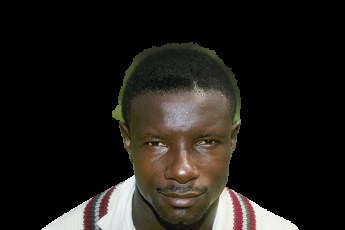
Sir Richard Benjamin Richardson, KCN (born 12 January 1962) is a former West Indies international cricketer and a former captain of the West Indian cricket team.
He was a flamboyant batsman and superb player of fast bowling. He was famous for his wide-brimmed maroon hat which he wore in preference to a helmet against even the fastest bowlers. Richardson captained the West Indies in 24 Tests between 1991 when he took over from Viv Richards and 1995, winning 11, losing 6, and the rest ending in draws.
Read More About Richie Richardson / Source
Rohan Kanhai
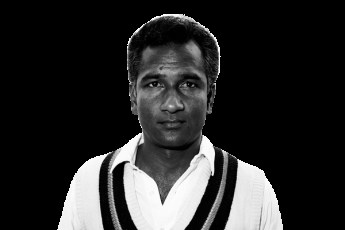
Rohan Bholalall Kanhai (born 26 December 1935) is a Guyanese former cricketer, who represented the West Indies in 79 Test matches. He is widely considered to be one of the best batsmen of the 1960s. Kanhai featured in several great West Indian teams, playing alongside Sir Garfield Sobers, Roy Fredericks, Lance Gibbs, and Alvin Kallicharran among others. C. L. R. James wrote in the New World journal that Kanhai was “the high peak of West Indian cricketing development”, and praised his “adventuresome” attitude. Kanhai was part of the West Indian team that won the inaugural, 1975 Cricket World Cup.
Read More About Rohan Kanhai / Source
Colin Cowdrey
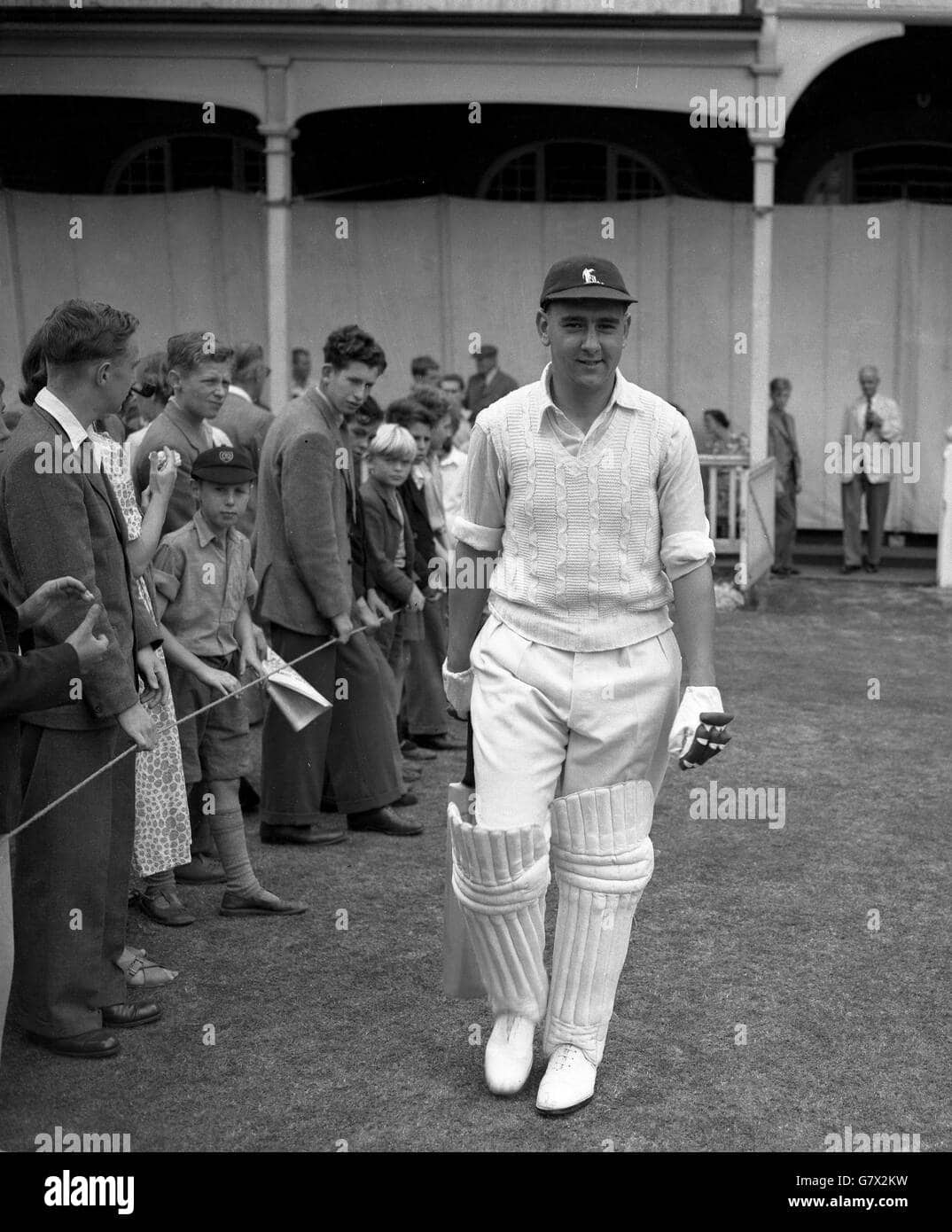
Michael Colin Cowdrey, Baron Cowdrey of Tonbridge, (24 December 1932 – 4 December 2000) was an English first-class cricketer who played for Oxford University (1952–1954), Kent County Cricket Club (1950–1976) and England (1954–1975). Universally known as Colin Cowdrey, he “delighted crowds throughout the world with his style and elegance”, and was the first cricketer to play 100 Test matches, celebrating the occasion with 104 against Australia in 1968. In all he played 114 Tests, making 7,624 runs at an average of 44.06, overtaking Wally Hammond as the most prolific Test batsman, and taking 120 catches as a fielder, breaking another Hammond record. Cowdrey made 22 Test centuries (an England record until 2013) and was the first batsman to make centuries against the six other Test playing countries of his era; Australia, South Africa, the West Indies, New Zealand, India and Pakistan, making hundreds against them all both home and away. He toured Australia six times in 1954–55, 1958–59, 1962–63, 1965–66, 1970–71 and 1974–75, equalling Johnny Briggs’s record, and in his last Test fans hung out a banner ‘M.C.G. FANS THANK COLIN – 6 TOURS’.In the First Test at Edgbaston in 1957 Cowdrey added 411 runs in 511 minutes with Peter May against the West Indies, the third highest stand in Test cricket at the time, the highest for the fourth wicket until 2009, the highest stand for England, and the highest stand against the West Indies. His highest first-class score was 307 against South Australia on the MCC tour of Australia in 1962-63, the highest score for the Marylebone Cricket Club overseas and the highest by a tourist in Australia.
Cowdrey was awarded a CBE in 1972, knighted in 1992, ennobled in 1997, and posthumously inducted into the ICC Cricket Hall of Fame in 2009. He is the fourth (and so far the last) sportsman to be honoured with a memorial service in Westminster Abbey, following Sir Frank Worrell, Lord Constantine and Bobby Moore. The Marylebone Cricket Club (MCC) Spirit of Cricket Cowdrey Lecture was inaugurated in his memory.
Read More About Colin Cowdrey / Source
Graham Gooch
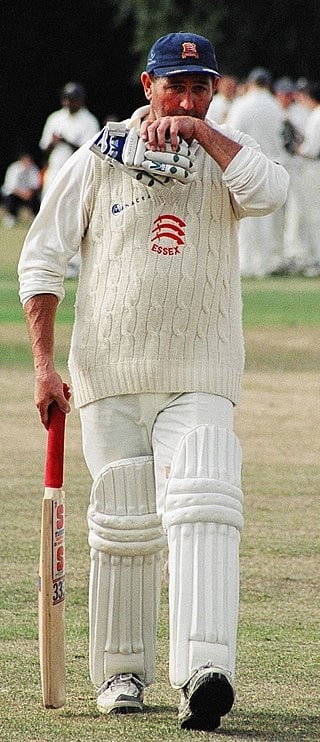
Graham Alan Gooch, (born 23 July 1953) is a former English first-class cricketer who captained Essex and England. He was one of the most successful international batsmen of his generation, and through a career spanning from 1973 until 2000, he became the most prolific run scorer of all time, with 67,057 runs across first-class and limited-overs games. His List A cricket tally of 22,211 runs is also a record. He is one of only twenty-five players to have scored over 100 first-class centuries.
Internationally, despite being banned for three years following a rebel tour to ostracized South Africa, Gooch is the third highest Test run scorer for England. His playing years spanned much of the period of domination by the West Indies, against whom his mid-forties batting average is regarded as extremely creditable. His score of 154 against them at Headingley in 1991 is regarded as one of the greatest centuries of all time by many critics and former players. His career-best score of 333 – added to his second innings century – remains the highest match aggregate at Lord’s. He was the first player to make 20 Test
appearances at Lord’s. As captain, Matthew Engel noted, “his fanatical fitness and work-ethic gave the team more purpose than it had shown in a decade.”After 118 Tests, aged forty-two, he retired into coaching and as team selector, before becoming a commentator. In 2009 he was inducted into the ICC Cricket Hall of Fame. He returned to coach Essex, before becoming England batting coach in 2012.
Read More About Graham Gooch / Source
Ross Taylor
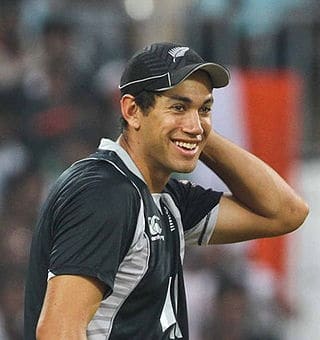
Luteru Ross Poutoa Lote Taylor (born 8 March 1984) is an international cricketer and former captain of the New Zealand national team. Batting predominantly at number four, when he announced his retirement from international cricket at the end of 2021 he was the leading run-scorer for New Zealand in Test and One Day International cricket.In February 2020, Taylor played his 100th Test match for New Zealand, becoming the first cricketer to play in 100 matches in all three formats of international cricket. In December 2020, in the first Test against Pakistan, Taylor became the most-capped player for New Zealand in international cricket, playing in his 438th match across all three formats, surpassing Daniel Vettori; in December 2021, he announced that he would retire from international cricket after the one-day series against Australia and the Netherlands in early 2022.
Read More About Ross Taylor / Source
Gundappa Viswanath
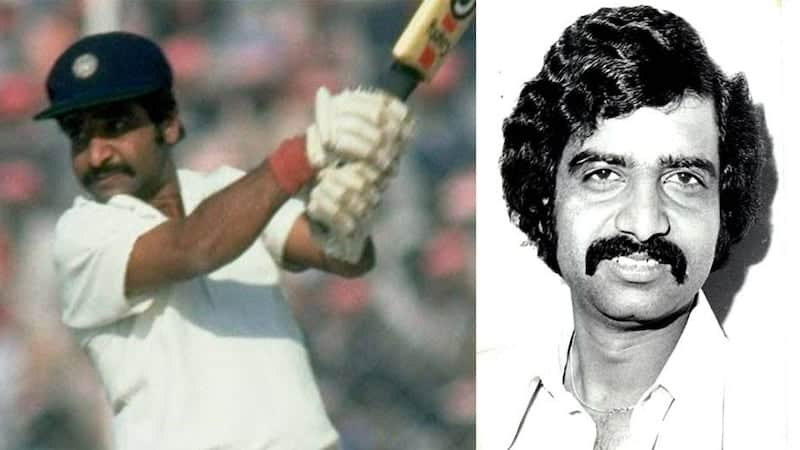
Gundappa Ranganatha Viswanath pronunciation (born 12 February 1949) is a former Indian cricketer. Vishwanath was rated as one of India’s finest batsmen throughout the 1970s. Viswanath played Test cricket for India from 1969 to 1983, making 91 appearances and scoring more than 6,000 runs. He also played in One Day Internationals from 1974 to 1982, including the World Cups of 1975 and 1979.
At state level, he played for Karnataka (formerly Mysore) throughout his career. Viswanath, popularly nicknamed “Vishy”, had an elegant and wristy batting style which emphasized timing rather than power. Though he had a complete repertoire of shots around the wicket, Viswanath’s choice shot was the square cut, one he often used to great effect against fast bowlers. He regularly fielded at slip.
He is the only cricketer to score a double century on debut in a first-class match and a century on debut in a Test match.
Read More About Gundappa Viswanath / Source
Inzamam-ul-Haq
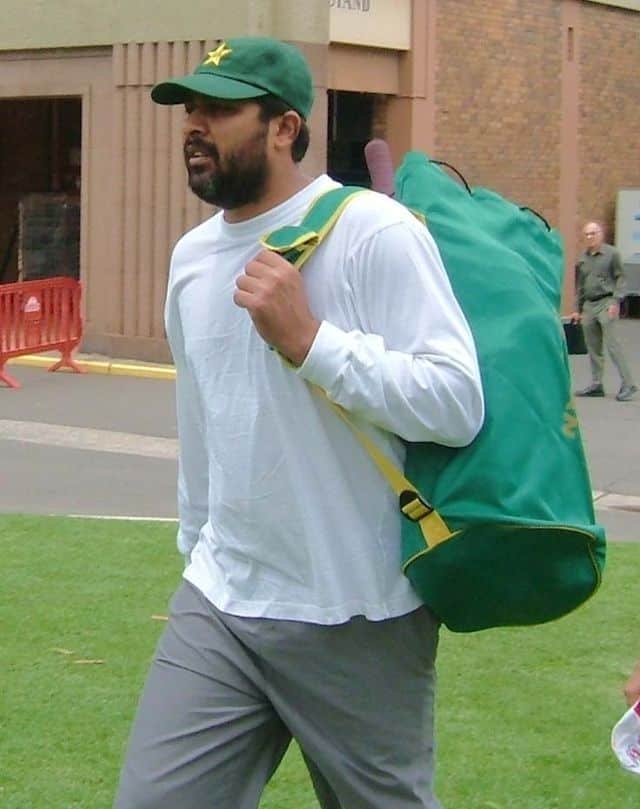
Inzamam-ul-Haq (Urdu: انضمام الحق; pronunciation born 3 March 1970), also known as Inzi, is a Pakistani professional cricket coach and former Pakistan cricketer.
He was the leading run scorer for Pakistan in one-day internationals, and the third-highest run scorer for Pakistan in Test cricket. He is the only Pakistani batsman to score 20,000 runs in international cricket arena. He was the captain of the Pakistan national cricket team from 2003–07. As well as being a prolific batsman, he also occasionally bowled gentle left-arm spin.
Inzamam rose to fame in the semi-final of the 1992 Cricket World Cup. He remained one of the team’s leading batsmen throughout the decade in both Test and ODI cricket. In 2003, he was appointed captain of the team. His tenure as captain ended after Pakistan’s early exit from the 2007 Cricket World Cup. Inzamam retired from international cricket in 2007, following the second Test match against South Africa, falling three runs short of Javed Miandad as Pakistan’s leading run scorer in Test cricket at the time. Following his retirement, he joined the Indian Cricket League, captaining the Hyderabad Heroes in the inaugural edition of the Twenty20 competition. In the ICL’s second edition, he captained the Lahore Badshahs, a team composed entirely of Pakistani cricketers.
Inzamam-ul-Haq is a prominent member of the Tablighi Jamaat, an Islamic missionary organisation, and remains an influential personality in Pakistan cricket.
In April 2016, he was appointed the chief selector of the Pakistan national cricket team.
Read More About Inzamam-ul-Haq / Source
Ted Dexter
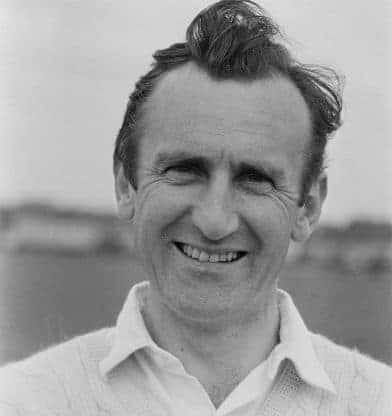
Edward Ralph Dexter, (15 May 1935 – 25 August 2021) was an England international cricketer.An aggressive middle-order batsman of ferocious power and a right-arm medium bowler, he captained Sussex and England in the early 1960s. He captained England in 30 test matches out of his 62 test match appearances.
He was known by the nickname Lord Ted. He is credited for his instrumental role in the formation of the modern ICC Player Rankings system. In June 2021, he was inducted into the ICC Cricket Hall of Fame as one of the special inductees to mark the inaugural ICC World Test Championship final.
Read More About Ted Dexter / Source
Vijay Hazare
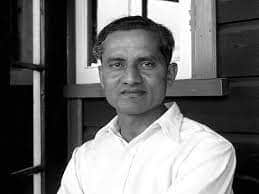
Vijay Samuel Hazare pronunciation (11 March 1915 – 18 December 2004) was an Indian cricketer. He captained India in 14 matches between 1951 and 1953. In India’s 25th Test match, nearly 20 years after India achieved Test status, he led India to its first ever Test cricket win (and the only victory under his captaincy) in 1951–52 against England at Madras, winning by an innings and eight runs in a match that began on the day that King George VI died.
Read More About Vijay Hazare / Source
Alvin Kallicharran
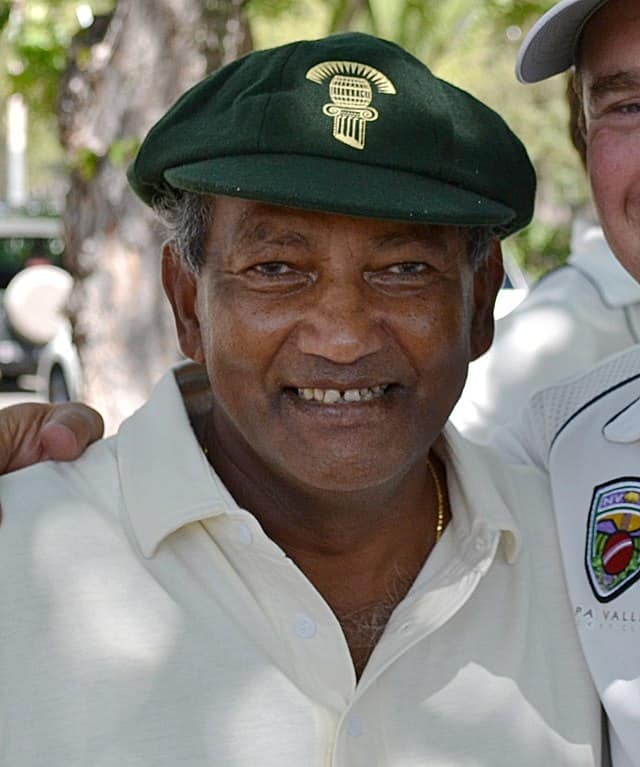
Alvin Isaac Kallicharran (born 21 March 1949) is a former Indo-Guyanese cricketer who played Test cricket for the West Indies between 1972 and 1981 as a left-handed batsman and right-arm off spinner.
Kallicharran was born in Port Mourant, British Guiana (now Guyana), where he started playing street cricket until his professional debut as captain of the under-16 Guyana team in 1966 and his first class debut in 1967.He was a Wisden Cricketer of the Year for 1983. He was part of the 1975 and 1979 teams that won the Cricket World Cup. His highest score is 187 against India in the 1978–79 tour. He also found success with Warwickshire in English County cricket. While playing against minor county Oxfordshire in the 1984 one day Natwest Trophy he scored 206 and took 6 for 32.One of his most noted international innings, a knock of 158 against England, was shrouded in controversy when he was run out by Tony Greig on the final ball of the second day. After the ball had been defended and Kallicharran had started to walk off, Grieg threw down the stumps at the non-striker’s end, running him out. After negotiations off the pitch, England withdrew their appeal, allowing Kallicharran to continue the next morning.He attempted to join World Series Cricket, but failed, and was appointed captain of the West Indies in 1977–1978 when Clive Lloyd resigned over the Kerry Packer issue.
Kallicharan was later involved in further controversy when he led an unofficial rebel tour to South Africa in defiance of the Gleneagles Agreement and anti-apartheid protesters in that country who asserted that official sporting structures were discriminatory. He saw out the rest of his career playing for Orange Free State and Transvaal in South African domestic cricket.
Read More About Alvin Kallicharran / Source
Jonathan Trott
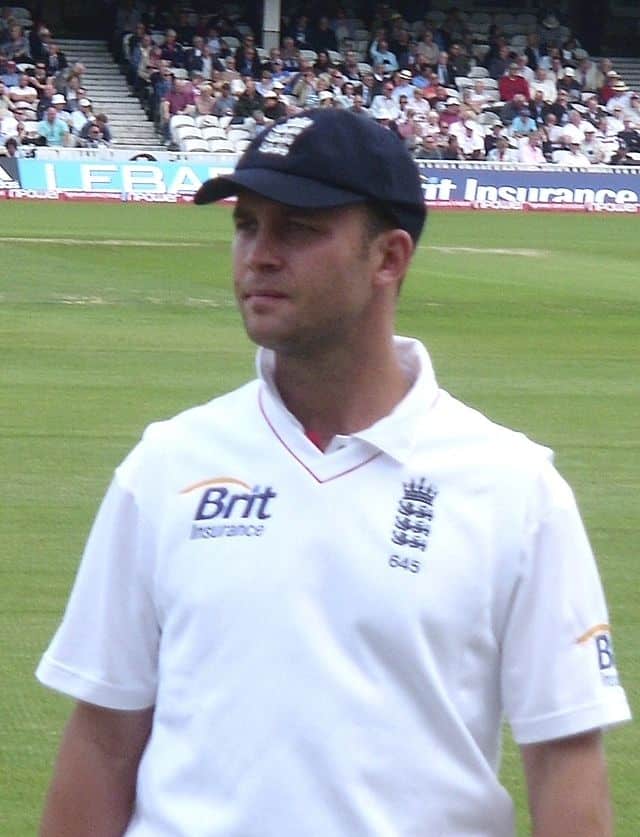
Ian Jonathan Leonard Trott (born 22 April 1981) is a South African-born English former professional cricketer who played international cricket for the England cricket team. Domestically, he played for Warwickshire County Cricket Club as well as playing in South Africa and New Zealand. He was ICC and ECB Cricketer of the Year in 2011.A right-handed top-order batsman and occasional medium-pace bowler, he played two Twenty20 Internationals for England in 2007. Good performances for his county in 2008 and 2009, as well as a productive tour in 2008–09 with the England Lions, led to a call-up to the senior England Test squad in August 2009 for the fifth Ashes Test. He scored a century in that Test, becoming the 18th England player to do so on his Test debut. 18 months later, he scored another century at the MCG to set up the victory which saw England retain the Ashes. His highest England score in a Test match is 226, made against Bangladesh at Lord’s on 28 May 2010, and he took his first Test wicket in the same match. He often fields at slip, particularly to the spinners.
Citing stress and anxiety, Trott left England’s Ashes tour of Australia in November 2013, with the intention of taking a break from all forms of cricket. A comeback attempt in April 2014 was shelved due to a recurrence of the condition. Trott returned to the England team for the 2015 West Indies Test series, but after struggling in the series, he retired from all international cricket on 4 May 2015. In May 2018, Trott announced he would retire from professional cricket at the end of the English domestic cricket season.
Read More About Jonathan Trott / Source
Lindsay Hassett
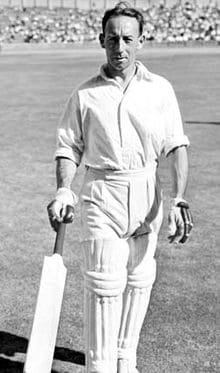
Arthur Lindsay Hassett (28 August 1913 – 16 June 1993) was a cricketer who played for Victoria and Australia. The diminutive Hassett was an elegant middle-order batsman, described by Wisden as, “… a master of nearly every stroke … his superb timing, nimble footwork and strong wrists enabled him to make batting look a simple matter”. His sporting career at school singled him out as a precocious talent, but he took a number of seasons to secure a regular place in first-class cricket and initially struggled to make large scores. Selected for the 1938 tour of England with only one first-class century to his name, Hassett established himself with three consecutive first-class tons at the start of the campaign. Although he struggled in the Tests, he played a crucial role in Australia’s win in the Fourth Test, with a composed display in the run-chase which sealed the retention of the Ashes. Upon returning to Australia, he distinguished himself in domestic cricket with a series of high scores, becoming the only player to score two centuries in a match against Bill O’Reilly—widely regarded as the best bowler in the world.
However, the eruption of World War II interrupted Hassett’s progress. With first-class cricket cancelled, he enlisted in the Second Australian Imperial Force, serving in the Middle East and New Guinea before being chosen to captain the Australian Services cricket team that played the “Victory Tests” in England during the months immediately following Victory in Europe Day. Hassett was the only capped Test player in the team and his men unexpectedly drew the series 2–2 against an English team consisting of Test cricketers. Hassett’s leadership was intrinsic to the success of the team, which toured and helped to re-establish the game in England, India and Australia in the aftermath of the war.
At the advanced age of 32, Hassett began his Test cricket career in earnest and became a more sedate, cautious player who often frustrated spectators with his slow scoring. From 1946–47 onwards, he served as Don Bradman’s vice-captain for three series, including the Invincibles tour of England in 1948. He then succeeded the retired Bradman as Australian captain in 1949 and presided over a successful team that gradually aged and declined. After an unbeaten tour of South Africa that saw a 4–0 triumph in the Tests, Hassett led the Australians to 4–1 home win over England in the 1950–51 Ashes series. The solitary loss in the Fifth Test was the first Australian Test defeat since the resumption of cricket after World War II. Australia’s dominance of world cricket waned and, in Hassett’s final season at home in 1952–53, it drew 2–2 against a South African team that was expected to be weak opposition. In 24 Test matches as captain, Hassett oversaw 14 wins and suffered defeat only four times, but it was the last of the four losses that blighted his record.
Defeated in the last match of the 1953 series against England, Hassett’s team lost The Ashes, ending Australia’s 19-year ascendancy. At the age of 40, he promptly retired following a final testimonial match after returning to Australia. A cheerful character with a poker face that aided his captaincy, Hassett was known for his ability as an ambassador for Australia, his sense of humour and diplomatic skills. Richie Benaud wrote of him: “There are others who have made more runs and taken more wickets, but very few have ever got more out of a lifetime.” In 2003, he was inducted into the Australian Cricket Hall of Fame by Cricket Australia.
Read More About Lindsay Hassett / Source
Stan McCabe
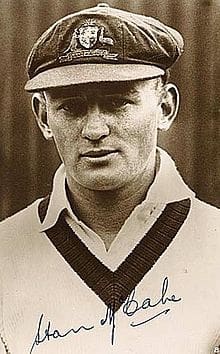
Stanley Joseph McCabe (16 July 1910 – 25 August 1968) was an Australian cricketer who played 39 Test matches for Australia from 1930 to 1938. A short, stocky right-hander, McCabe was described by Wisden as “one of Australia’s greatest and most enterprising batsmen” and by his captain Don Bradman as one of the great batsmen of the game. He was never dropped from the Australian Test team and was known for his footwork, mastery of fast bowling and the hook shot against the Bodyline strategy. He also regularly bowled medium-pace and often opened the bowling at a time when Australia lacked fast bowlers, using an off cutter. He was one of the Wisden Cricketers of the Year in 1935.At the age of 19, McCabe was called up for the 1930 tour of England despite being yet to score his maiden first-class century as the selectors chose the youngest ever team to leave Australia. McCabe made his first century in a warm-up match but struggled in his month in England, scoring only 51 runs. His performance began to improve after adjusting his technique and he played in all five Tests, although he continued to have problems converting starts into large scores, failing to make a century during the tour. McCabe managed to maintain his position over the next two home seasons, playing in all ten Tests, but failed to make a century, and after 15 Tests, his average was below 35 although he had become increasingly successful at first-class level.
In 1932–33, McCabe made his breakthrough at international level in the First Test of the infamous Bodyline series, scoring an unbeaten 187 at the Sydney Cricket Ground in only four hours as his teammates fell around him. McCabe attacked the bowling vigorously, hooking relentlessly. He ended the series as the only Australian other than Bradman to score a century. McCabe missed most of the next season due to illness, but was retained for the 1934 tour of England despite his interrupted preparation. He scored 2,078 runs and eight centuries for the tour, including his maiden Test century in England. Following the retirement of captain Bill Woodfull at the end of the tour, McCabe became Australia’s vice-captain and held the post for the rest of his career.
After missing most of the 1934–35 domestic season due to injury, McCabe scored an unbeaten 189 in the Second Test of the 1935–36 tour of South Africa, including a century in one session, taking Australia to the brink of a world record-breaking victory on a difficult final-day pitch in poor light before the match was called off. It was one of two Test centuries McCabe made on the tour. The following season, he made five fifties in the first four Tests before scoring a century to help Australia win the deciding final Test against the touring Englishmen. In the First Test of the 1938 tour of England, McCabe played what was regarded as his greatest innings, scoring 232 in four hours, including his last 72 in 28 minutes. Bradman regarded the innings as the greatest batting he ever saw. However, none of McCabe’s three most famous innings resulted in an Australian victory; he has a reputation of being at his best when Australia was in difficulty.
During the 1938 tour, McCabe had been generally unproductive and he missed much of the subsequent Australian season due to illness and only played sporadically thereafter before cricket was cancelled due to World War II. He served in the military in a clerical position for a year before he was discharged due to chronic feet problems. McCabe was plagued by poor health in his middle age, and was hospitalised for a liver ailment shortly before his death. He died at the age of 58 after falling off a cliff adjacent to his home in Mosman. There was innuendo that it was a suicide, but the coroner ruled that it was an accident.
Read More About Stan McCabe / Source
Bobby Simpson
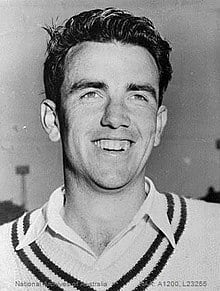
Robert Baddeley Simpson (born 3 February 1936) is a former cricketer who played for New South Wales, Western Australia and Australia, captaining the national team from 1963/64 until 1967/68, and again in 1977–78. He later had a highly successful term as the coach of the Australian team. He is also known as Bobby or Simmo.
Simpson played as a right-handed batsman and semi-regular leg spin bowler. After ten years in retirement, he returned to the spotlight at age 41 to captain Australia during the era of World Series Cricket.
In 1986 he was appointed coach of the Australian team, a position he held until being replaced by Geoff Marsh in July 1996. Under Simpson’s tutelage, the team went from a struggling team, losing a succession of Test series, to the strongest team in world cricket. Some of the team’s greatest achievements in his time as coach were winning the 1987 World Cup, regaining The Ashes in England in 1989, and overcoming the previously dominant West Indies on their home grounds in 1995. He also coached county cricket in England, with Leicestershire and Lancashire.
Read More About Bobby Simpson / Source
Arthur Morris
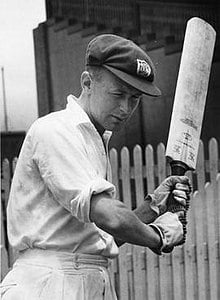
Arthur Robert Morris (19 January 1922 – 22 August 2015) was an Australian cricketer who played 46 Test matches between 1946 and 1955. An opener, Morris is regarded as one of Australia’s greatest left-handed batsmen. He is best known for his key role in Don Bradman’s Invincibles side, which made an undefeated tour of England in 1948. He was the leading scorer in the Tests on the tour, with three centuries. His efforts in the Fourth Test at Headingley helped Australia to reach a world record victory target of 404 on the final day. Morris was named in the Australian Cricket Board’s Team of the Century in 2000 and was inducted into the Australian Cricket Hall of Fame in 2001.
In his youth, Morris excelled at rugby union as well as cricket, being selected for the state schoolboys’ team in both sports. Originally trained in spin bowling, Morris developed as a batsman during his teens and during the 1940–41 season became the first player in the world to score two centuries on his first-class debut. His career was interrupted by the Second World War, during which he served in the Australian Army and gained selection in its rugby union team. Upon the resumption of cricket in 1946, Morris made his Test debut against England and quickly made himself a core member of the team. He made a century in his third match and scored twin centuries in the following Test, becoming only the second Australian to do so in an Ashes Test. His rise was such that he was made a selector during the Invincibles tour after only 18 months in the team.
After the 4–0 series win over England, which was Bradman’s farewell series, Morris became Australia’s vice-captain and was expected to be its leading batsman. He started well, scoring two centuries during Australia’s first series in the post-Bradman era, a tour to South Africa that saw Australia win the Test series 4–0. By the end of the South African tour, Morris had amassed nine Test centuries and his batting average was over 65, but thereafter his form declined. Australia increasingly fell on hard times as the core of Bradman’s team aged and retired. Morris was overlooked for the captaincy and then briefly dropped as his cricketing prowess waned. His career ended after his first wife became terminally ill. Later in his life, Morris served as a trustee of the Sydney Cricket Ground for over twenty years.
In 2017, Morris was inducted into the ICC Cricket Hall of Fame.
Read More About Arthur Morris / Source
Damien Martyn
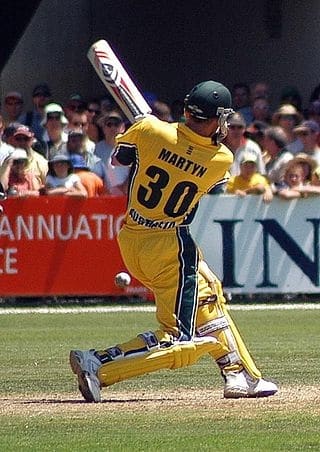
Damien Richard Martyn (born 21 October 1971) is an Australian cricket commentator and former cricketer, who played Tests and ODIs. He played for the national team sporadically in 1992–1994 before becoming a regular ODI player from 1999 to 2000 and a regular Test player in 2000 until his retirement in late 2006. He was primarily a right-handed middle-order batsman with a ‘classical’ technique, known in particular for his elegant strokemaking square of the wicket on the off-side and through the covers.
Martyn was also an occasional medium-pacer and distinguished fieldsman primarily in the covers who was capable of creating spectacular run-outs. He also very occasionally kept wicket at first-class level. He was named man of the series in the Border Gavaskar Trophy in 2004, to help Australia defeat India on the subcontinent for the first time in more than 30 years, and was named in early 2005 as the Australian Test Player of the Year at the annual Allan Border Medal presentations.
Read More About Damien Martyn / Source
Glenn Turner
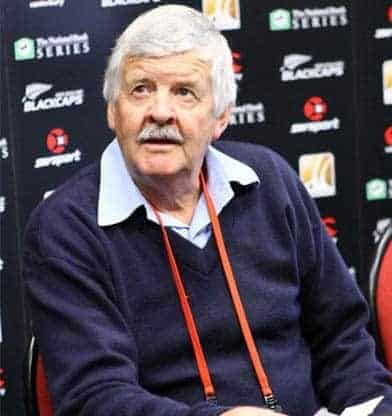
Glenn Maitland Turner (born 26 May 1947) played cricket for New Zealand and was one of the country’s best and most prolific batsmen. He is the current head of the New Zealand Cricket selection panel.
Read More About Glenn Turner / Source
Herbie Taylor
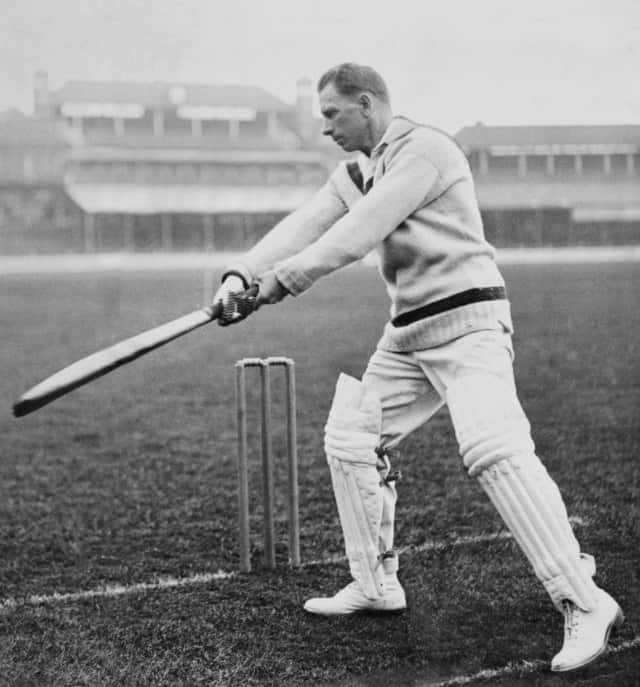
Herbert Wilfred Taylor (5 May 1889 – 8 February 1973) was a South African cricketer who played 42 Test matches for his country including 18 as captain of the side. Specifically a batsman, he was an expert on the matting pitches which were prevalent in South Africa at the time and scored six of his seven centuries at home. His batting was also noted for quick footwork and exceptional ‘backplay’. He became the first South African to pass 2,500 Test runs and was selected one of Wisden’s Cricketers of the Year in 1925. In domestic cricket, he played for Natal, Transvaal and Western Province.
Taylor’s greatest achievement is generally reckoned to be scoring 508 runs at an average of 50.80 in the 1913–14 Test series against England, in spite of English bowler Sydney Barnes taking a record 49 wickets in the series at 10.93. The cricket historian H.S. Altham wrote: “The English cricketers were unanimous that finer batting than his against Barnes at his best they never hoped to see.” Neville Cardus noted it was “perhaps the most skilful of all Test performances by a batsman.” It also led Cardus to count Taylor as “one of the six greatest batsmen of the post-Grace period”.
Read More About Herbie Taylor / Source
Gordon Greenidge
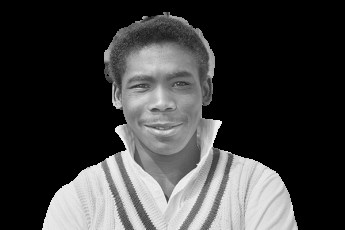
Sir Cuthbert Gordon Greenidge (born 1 May 1951) is a Barbadian former first-class cricketer, who represented the West Indies in Test and One day Cricket for 17 years. Greenidge is widely regarded as one of the greatest and most destructive opening batsmen of cricket history. In 2009, Greenidge was inducted into the ICC Cricket Hall of Fame.
Read More About Gordon Greenidge / Source
Graeme Smith
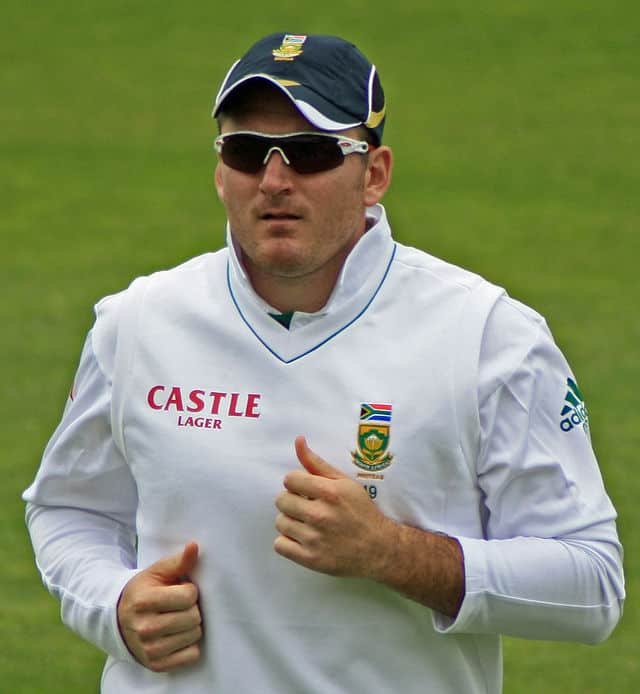
Graeme Craig Smith (born 1 February 1981) is a South African cricket commentator and former cricketer, who played for South Africa in all formats. In 2003, he was appointed captain of the national team, taking over from Shaun Pollock. He held the position of test captain until his retirement in 2014. At 22, he was appointed as South Africa’s youngest ever captain. He was the most capped captain ever when he played his (personally not captained) 102nd test against England.
A tall, left-handed opening batsman, Smith is regarded as one of the greatest openers of all time. During South Africa’s tour of England in 2003, he made double centuries in consecutive Test matches: 277 at Edgbaston, and 259 at Lord’s. His 259 at Lord’s still holds the record for being the highest score made by a foreign player at this prestigious venue. On 24 October 2013, Smith became the second South African and 12th overall to complete 9,000 runs in test cricket in his 112th test match.Known for the success of his opening partnership with Herschelle Gibbs, South Africa’s most prolific ever opening partnership, Smith has the distinction of having been part of all four of South Africa’s opening partnerships of over 300 runs: in three of them he was partnered by Gibbs, and in 2008 Smith added 415 for the first wicket with Neil McKenzie against Bangladesh, a world record opening partnership. On 3 March 2014, during the third Test against Australia, he announced his retirement from international cricket.He was also the overseas player and captain of the English side Surrey. He appeared in his 100th Test against England on 19 July 2012. He captained his 100th career Test match on 1 February 2013, against Pakistan, on his 32nd birthday. He’s the only player to captain a side in 100 Tests.
Read More About Graeme Smith / Source
Misbah-ul-Haq
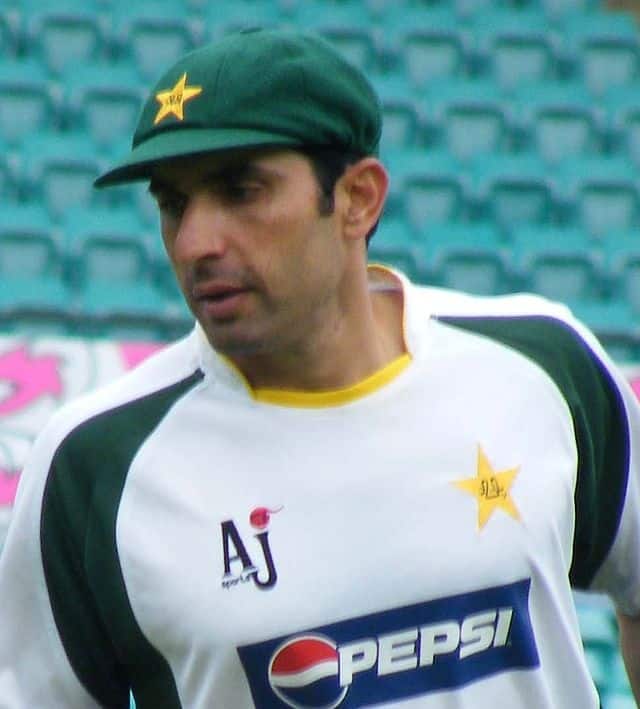
Misbah-ul-Haq Khan Niazi (Urdu: مصباح الحق خان نیازی; born 28 May 1974) is a former Pakistani cricket coach and former international cricketer. Misbah captained Pakistan in Test cricket and One Day Internationals (ODIs) and is former head coach and former chief selector of the Pakistan national team.A late bloomer, ul-haq was a middle-order batsman best known for his composure with the bat whilst also having the ability to be an aggressive big shot player when required. Ul-haq scored the fastest fifty in Test cricket and set a new record for the fastest Test hundred and holds the record for most career ODI runs without a century.Ul-haq has an MBA degree in Human Resource Management from the University of Management and Technology in Lahore, Punjab.After announcing retirement from limited overs cricket in 2015, Ul-haq continued to play Test cricket for a few years. On 4 April 2017, Ul-haq announced his retirement from all international cricket as well after the conclusion of West Indies tour. Ul-haq retired from all formats of international cricket on 14 May 2017.
Read More About Misbah-ul-Haq / Source
Dilip Vengsarkar
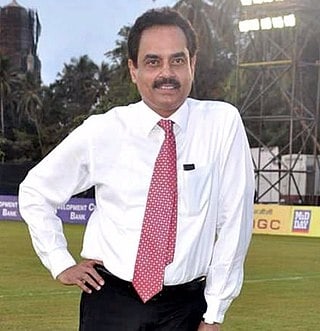
Dilip Balwant Vengsarkar pronunciation (born 6 April 1956) is a former Indian cricketer and a cricket administrator. He was known as one of the foremost exponents of the drive. Along with Sunil Gavaskar and Gundappa Viswanath, he was a key player in the Indian batting line up in the late 70s and early 80s. He went on to play until 1992.
At this pinnacle of best his career, Vengsarkar was rated as the best batsmen in the Coopers and Lybrand rating (a predecessor of the PWC ratings) and he held the number one slot for 21 months until 2 March 1989.
Read More About Dilip Vengsarkar / Source
Frank Worrell
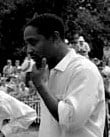
Sir Frank Mortimer Maglinne Worrell (1 August 1924 – 13 March 1967), sometimes referred to by his nickname of Tae, was a West Indies cricketer and Jamaican senator. A stylish right-handed batsman and useful left-arm seam bowler, he became famous in the 1950s as the second black captain of the West Indies cricket team. Along with Everton Weekes and Clyde Walcott, he formed what was known as “The Three Ws” of the West Indian cricket. He was the first of the two batsmen to have been involved in two 500-run partnerships in first-class cricket, the latter being Ravindra Jadeja.The Frank Worrell Trophy is awarded to the winner of the frequent Test series between Australia and West Indies
He spent some time studying economics and playing in England. A memorial service was held in his honour in Westminster Abbey, the first such honour for a sportsman.
In 2009, Worrell was inducted into the ICC Cricket Hall of Fame. He is widely regarded as Nelson Mandela of Cricket.
Read More About Frank Worrell / Source
Kim Hughes
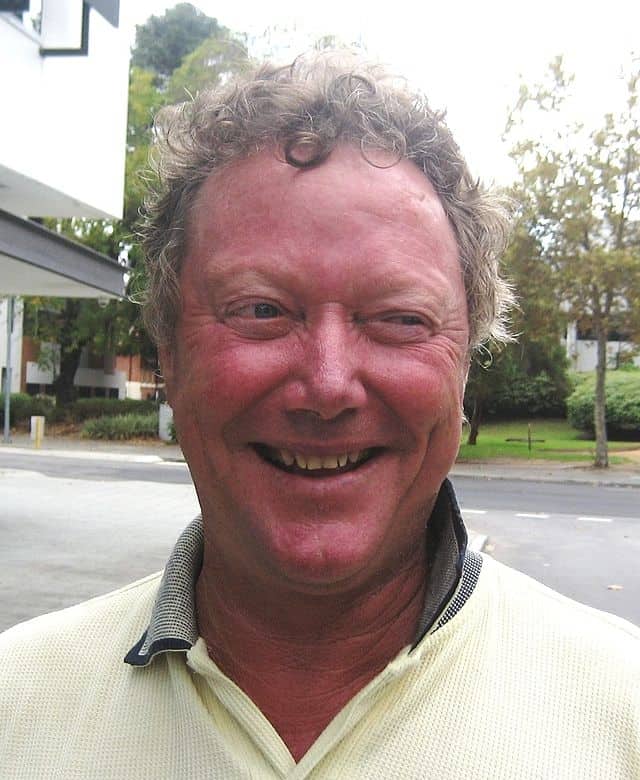
Kimberley John Hughes (born 26 January 1954) is a former cricketer who played for Western Australia, Natal and Australia. He captained Australia in 28 Test matches between 1979 and 1984 before captaining a rebel Australian team in a tour of South Africa, a country which at the time was subject to a sporting boycott opposing apartheid.
A right-handed batsman, Hughes was seen to possess an orthodox and attractive batting style. He was identified as a potential Test cricketer from an early age, but his impetuous style of batting, and personality clashes with influential teammates and opponents such as Dennis Lillee and Rod Marsh, saw a later introduction to first-class and Test cricket than anticipated. During the split between the establishment Australian Cricket Board and the breakaway World Series Cricket, Hughes stayed with the establishment.
Hughes’ captaincy record with Australia was hindered by a succession of matches being played away from home (just eight of his 28 Tests while captain were played in Australia) and the necessity to rebuild an inexperienced team after the frequent absence, and later the retirement, of several senior players. Placed under extreme pressure by the media and former teammates during a series of losses to the then dominant cricket team in the world, West Indies, Hughes resigned from the captaincy, making an emotional and tearful speech. He finished his career playing cricket in South Africa.
After his playing career, Hughes for a time acted as the chairman of selectors for the Western Australian Cricket Association, and is an occasional commentator for ABC Radio’s cricket coverage.
Read More About Kim Hughes / Source
Ben Stokes
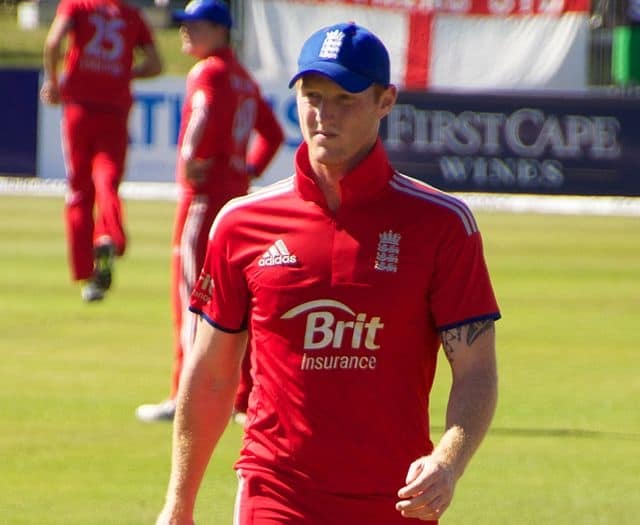
Benjamin Andrew Stokes (born 4 June 1991) is an English cricketer who is the current vice-captain of the England Test team and plays for the England One Day International (ODI) and Twenty20 International (T20I) teams. In domestic cricket, he represents Durham, and has played in multiple Twenty20 leagues, including for Rising Pune Supergiant and Rajasthan Royals in the Indian Premier League.
Born in New Zealand, Stokes moved to England as a child. He made his England debut in the 2011 ODI in Ireland, his T20I debut in the home series against the West Indies and his Test debut in the 2013–14 Ashes series in Australia. He was part of the England team that won the 2019 Cricket World Cup, top-scoring with 84 in England’s innings in the final before batting in the tied Super Over, winning the Man of the Match award. He was named the Wisden Leading Cricketer in the World in 2019 and 2020, and won the ICC Award for Best Men’s Cricketer in 2019.
An all-rounder, Stokes is a left-handed middle-order batsman and right-arm fast bowler. He holds the world record for most runs in an innings at number six, scoring 258 against South Africa during England’s 2015-16 tour. In the same Test, he and Jonny Bairstow set the world record for highest sixth-wicket stand in Tests, at 399.
Read More About Ben Stokes / Source
Dennis Amiss
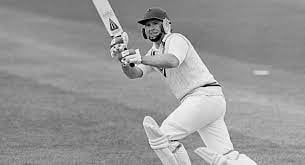
Dennis Leslie Amiss (born 7 April 1943) is a former English cricketer and cricket administrator. He played for both Warwickshire and England. A right-handed batsman, Amiss was a stroke maker particularly through extra cover and midwicket – his two favourite areas to score runs. He was an accomplished batsman in all forms of the game. He averaged 42.86 in first-class, 35.06 in List-A, 46.30 in Tests and 47.72 in One Day Internationals. In first-class cricket he scored 102 centuries, and his England record amassed over 50 Tests ranks him with the best England has produced.After retiring as a player in 1987, he served Warwickshire as Chairman of the Cricket Committee, and he followed David Heath as chief executive from 1994 until 2006. In 1992 he was selected as an England selector. In November 2007 he became the deputy chairman of the England and Wales Cricket Board; in August 2011, The Daily Telegraph described his role on the board as providing “cricketing knowledge and expertise [that] complemented Clarke’s business skills.”
Read More About Dennis Amiss / Source
Herschelle Gibbs
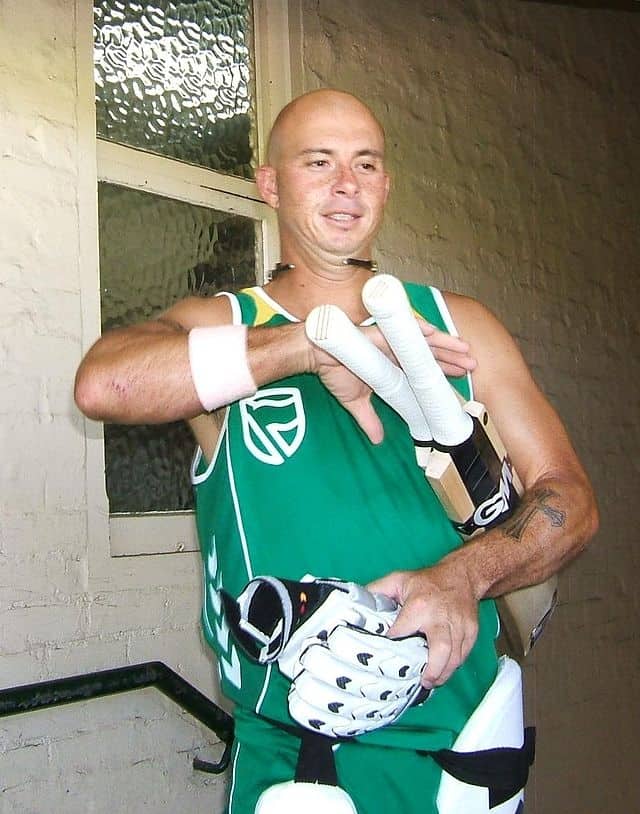
Herschelle Herman Gibbs (born 23 February 1974) is a South African cricket coach and former cricketer, who played all formats of the game for fourteen years. A right-handed batsman, mostly opened the batting, Gibbs became the first player to hit six consecutive sixes in one over in One Day International (ODI) cricket, doing so against the Netherlands in the 2007 Cricket World Cup. He held the record for the highest score in a successful run-chase (175) until it was beaten by MS Dhoni.
Regarded as one of the most naturally talented cricketers South Africa have ever produced, Gibbs was also known as an excellent fielder, like his compatriot Jonty Rhodes, with former Australian captain Ricky Ponting noting that in his opinion Gibbs is better than Rhodes in his ability to hit the stumps, with a report prepared by Cricinfo in late 2005 showing that since the 1999 Cricket World Cup, he had effected the eighth highest number of run-outs in ODI cricket of any fieldsman, with the tenth highest success rate.
Read More About Herschelle Gibbs / Source
Ajinkya Rahane
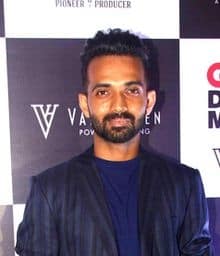
Ajinkya Madhukar Rahane (born 6 June 1988) is an Indian international cricketer. He plays primarily as a middle-order batsman in the Test format and as a top-order batsman in white-ball forms of the game. He was also the vice-captain of the India national cricket team in Tests until the home series against New Zealand in 2021 after which he was sacked. He represents Mumbai in domestic cricket and Kolkata Knight Riders in IPL.Rahane made his first-class debut in 2007–08 Ranji Trophy season for Mumbai. He made his international debut in T20Is against England at Manchester in August 2011. Rahane made his Test debut in the March 2013 Border–Gavaskar Trophy.
His first Test century came at Basin Reserve, Wellington against New Zealand. Under his captaincy, India won the 2020-21 Border–Gavaskar Trophy in Australia. As of May 2021 Rahane ranks 27th in the ICC Test batting rankings, with a tally of 612 points.
Read More About Ajinkya Rahane / Source
Saeed Anwar
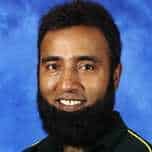
Saeed Anwar (Urdu: سعید انور; born 6 September 1968) is a Pakistani former cricketer and a former captain for Tests and ODIs. An opening batsman and occasional slow left arm orthodox bowler, Anwar played international cricket between 1989 and 2003. Considered one of greatest opening batsmen Pakistan has ever produced, Anwar has scored twenty centuries in ODIs, more than any other Pakistani batsmen in this format. He played 55 Test matches, scoring 4052 runs with eleven centuries, average 45.52. In 247 One Day Internationals (ODIs) he made 8824 runs at an average of 39.21.
Anwar got a pair at his Test debut against the West Indies in 1990, and scored 169 runs in his third Test against New Zealand in February 1994. In 1998–99, he became the third Pakistani to carry his bat through a Test innings, and scored his highest Test score of 188 not out. He made four ODI centuries at Sharjah Cricket Association Stadium, including three consecutive during 1993–94. Anwar scored two successive hundreds on three occasions in his career. He is most notable for scoring 194 runs against India in Chennai in 1997, the highest score for that time, and now the tenth highest individual score in an ODI. Anwar participated in three Cricket World Cups, and captained Pakistan in seven Tests and 11 ODIs. In August 2003, he announced his retirement from International cricket.
Saeed Anwar was the highest runs scoring batsman for Pakistan in 2003 World Cup.
Read More About Saeed Anwar / Source
Adam Voges
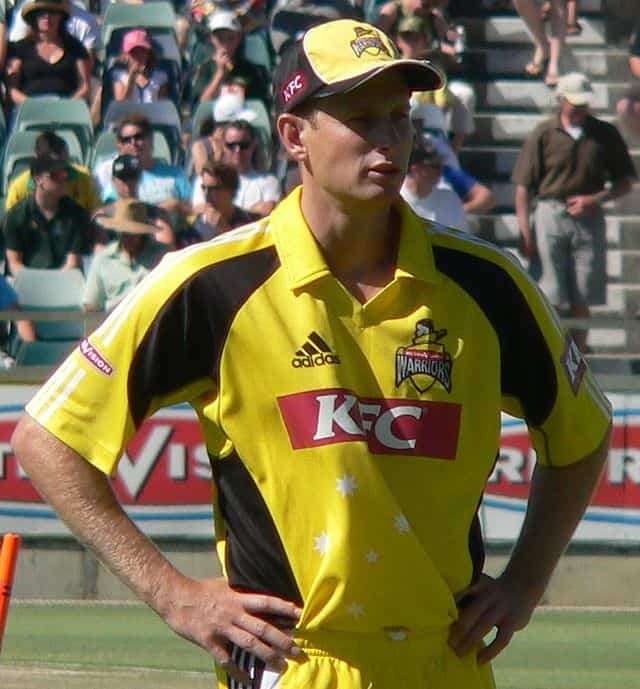
Adam Charles Voges (, born 4 October 1979) is an Australian cricket coach and former cricketer who played for the Australian national team at Test, One Day International (ODI), and Twenty20 International (T20I) level, and also captained Western Australia and Perth Scorchers in domestic cricket. Voges’ Test match batting average of 61.87 is second behind Don Bradman among batsmen who have finished their career and played a minimum of 20 innings. Voges was included in the 2016 ICC Test Match Team of the Year.From Perth, Western Australia, Voges excelled at cricket from an early age, attending the Western Australian Institute of Sport and playing for the Australian under-19 team. He made his first-class debut for Western Australia in the 2002–03 Sheffield Shield, and had established himself in the side by the middle of the decade, playing as a middle-order batsman and part-time left-arm orthodox bowler. Voges debuted for Australia during the 2006–07 Chappell–Hadlee Trophy, and played irregularly at both ODI and T20I level throughout the remainder of the decade.
In October 2012, after Marcus North’s resignation, Voges was appointed acting captain of Western Australia. For the inaugural Big Bash League, he signed with the Melbourne Stars franchise, although he switched to the Perth Scorchers the following season. In overseas competitions, Voges has represented Hampshire, Nottinghamshire, and Middlesex (captain 2015–2016) in English county cricket, and also played for the Rajasthan Royals in the Indian Premier League and the Jamaica Tallawahs in the Caribbean Premier League.
Voges made his Test debut for Australia in June 2015, aged 35, and scored a century on debut against the West Indies. He recorded a second century in November 2015, against New Zealand, and later scored 269 not out, 106 not out, and 239 in consecutive innings from December 2015 to February 2016, breaking Sachin Tendulkar’s record for the most runs between dismissals in Test cricket.In February 2017, Voges announced his retirement from international cricket. His last match was as captain of the Prime Minister’s XI side against Sri Lanka on 15 February 2017. The next month, he also announced his retirement from domestic cricket, following the conclusion of the 2016–17 Sheffield Shield season.On 16 October 2017, he re-signed on for 2017–18 Big Bash League season with the Perth Scorchers.
Read More About Adam Voges / Source
Conrad Hunte
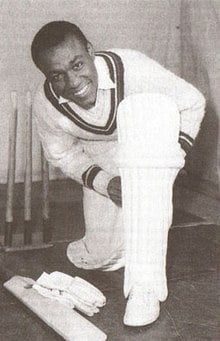
Sir Conrad Cleophas Hunte, KA (9 May 1932 – 3 December 1999) was a Barbadian cricketer. Hunte played 44 Test matches as an opening batsman for the West Indies.
Read More About Conrad Hunte / Source
Ian Bell
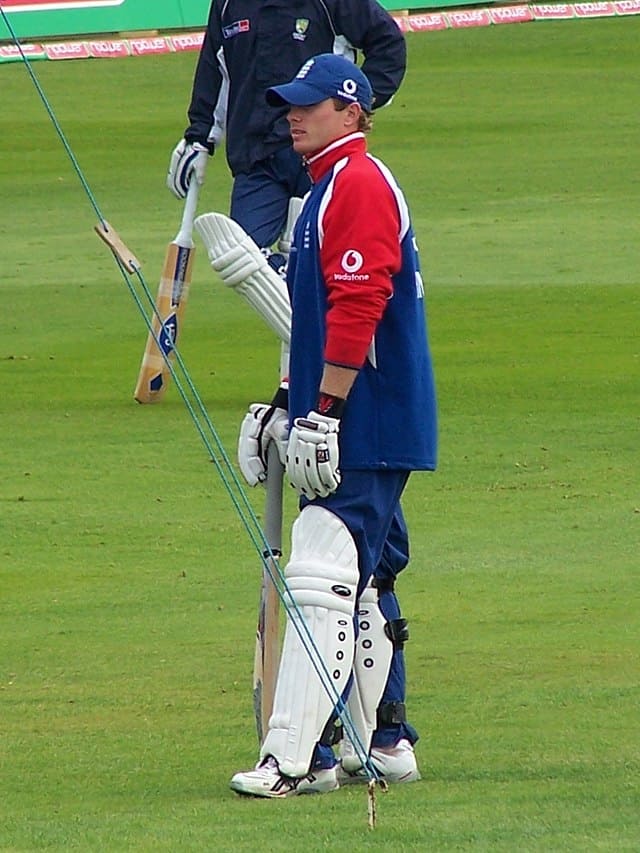
Ian Ronald Bell (born 11 April 1982) is an English former cricketer who played international cricket in all formats for the England cricket team and county cricket for Warwickshire County Cricket Club. A right-handed higher/middle order batsman, described in The Times as an “exquisite rapier,” with a strong cover drive, Bell was also an occasional right-arm medium pace bowler and a slip fielder. He was also noted for his sharp reflexes and often fielded in close catching positions. He scored twenty-two Test centuries and four One Day International (ODI) 100s.
In the 2006 New Year Honours List, Bell was appointed Member of the Order of the British Empire for his role in the successful Ashes campaign of 2005. In November 2006, he was awarded the Emerging Player of the Year award by the International Cricket Council. During 2008 and 2009, he was a more infrequent member of the England teams – however he reclaimed his Test place during the 2009 Ashes, which England won, and featured in several ODIs the following year. During 2010, he captained Warwickshire to victory in the CB40 final before scoring his first Ashes century the following winter as he helped England retain the Ashes down-under. Warwickshire County Cricket Club awarded Bell a benefit in 2011.
In July 2012, Bell signed a new three-year contract with Warwickshire extending his stay at the club at least till 2015. In November 2015, England selectors announced that Bell would be dropped from the English side ahead of the test series with South Africa. In August 2016, it was announced that Bell would be playing for the Perth Scorchers in the 2016–17 Big Bash League season. In August 2018, Bell scored his 20,000th run in first-class cricket. In September 2020, Bell announced his retirement, revealing that his final game for Warwickshire would be a T20 match against Glamorgan.
Read More About Ian Bell / Source
David Gower
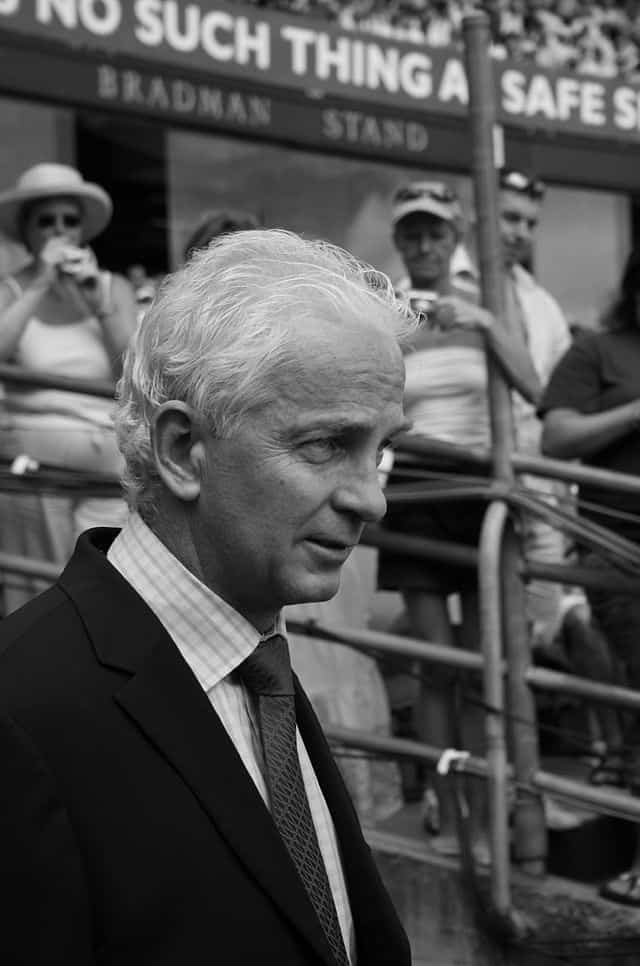
David Ivon Gower (born 1 April 1957) is an English cricket commentator and former cricketer who was captain of the England cricket team during the 1980s. Described as one of the most stylish left-handed batsmen of his era, Gower played 117 Test matches and 114 One Day Internationals (ODI) scoring 8,231 and 3,170 runs, respectively. He was one of the most capped and high scoring players for England during his period.
Gower led England during the 1985 Ashes, and his team was victorious; however, two 5–0 whitewashes against the West Indies (in 1984 and 1985–86) reflected poorly on his captaincy, and Gower was replaced in 1986. He was briefly reinstated for the 1989 Ashes series, before being replaced as captain by Graham Gooch. The strained relationship between the pair contributed to Gower retiring from international cricket in 1993. Nevertheless, he ended with an impressive record in first-class cricket, accumulating 26,339 runs at an average of 40.08, and 53 centuries. As of February 2021, he holds the record of 119 consecutive innings without registering a duck in Test cricket. Following his retirement, Gower became a successful cricket commentator with Sky Sports, and on 16 July 2009 he was inducted into the ICC Cricket Hall of Fame.On the occasion of England’s 1000th Test in August 2018, he was named in the country’s greatest Test XI by the ECB.
Read More About David Gower / Source
Bill Woodfull
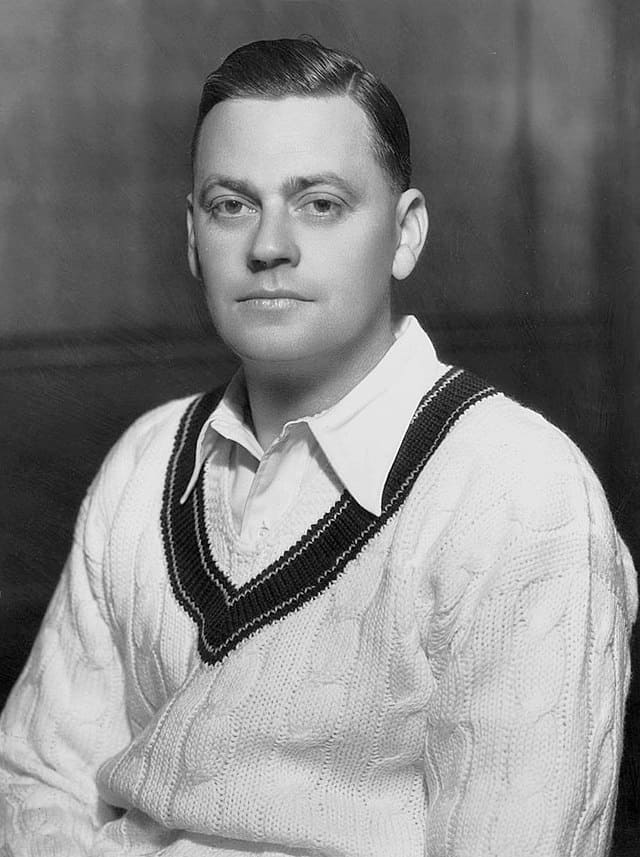
William Maldon Woodfull (22 August 1897 – 11 August 1965) was an Australian cricketer of the 1920s and 1930s. He captained both Victoria and Australia, and was best known for his dignified and moral conduct during the tumultuous bodyline series in 1932–33. Trained as a schoolteacher, Woodfull was known for his benevolent attitude towards his players, and his patience and defensive technique as an opening batsman. Woodfull was not a flamboyant player, but was known for his calm, unruffled style and his reliability in difficult situations. His opening pairing with fellow Victorian Bill Ponsford for both his state and Australia remains one of the most successful in history. While not known for his tactical skills, Woodfull was widely admired by his players and observers for his sportsmanship and ability to mould a successful and loyal team through the strength of his character.
Woodfull started playing cricket from a young age without distinction. He made his professional debut in Melbourne’s district competition staying until the age of 19. He made his first-class debut for Victoria at the age of 24 late in 1921–22. After scoring a century in his second match, Woodfull was promoted to open the following season, and he opened for the rest of his career. After scoring three centuries, including a 236, in 1925–26, he was selected for the 1926 tour of England. Regarded as one of the last players selected, Woodfull scored a double century and century in his first two innings in England to earn his debut in the first Test. Woodfull made eight centuries during the tour and topped the Australian averages and was named one of the five Wisden Cricketers of the Year.
Upon returning to Australia, Woodfull established his partnership with Ponsford, and in 1926–27 Shield season, they put on a record-breaking 375-run opening stand, setting up a world record first-class team score of 1107. Woodfull was appointed as vice-captain to Jack Ryder for the 1928–29 home Ashes series following a spate of retirements. He carried his bat in a record-breaking first Test defeat. Although England easily won 4–1, Woodfull scored three centuries, and added his best first-class score for 275 not out. Woodfull reluctantly became captain in 1930 when Ryder was dropped, and his team was derided as the worst Australian squad to tour England. It was the youngest squad to leave Australia, prompting commentators to label the team “Woodfull’s kindegarten”. After losing the first Test, Woodfull scored a century as Australia levelled the series and they won the fifth Test to regain the Ashes. Woodfull ended the tour with six first-class centuries. In 1931–32 Woodfull had his most successful Test series in his career, against South Africa, scoring 421 runs at 70.17, including his Test highest score of 161.
In 1932–33, great controversy erupted during England’s tour of Australia. The visitors used bodyline tactics—persistently aiming at the upper bodies and heads of the Australian batsmen in the hope of stifling the hosts’ strong batting line-up. The Australian public and cricket community abhorred the tactic, but Woodfull refused to retaliate or complain publicly. The controversy peaked during the third Test at the Adelaide Oval. Woodfull was felled by a blow to the heart, almost provoking a riot. After Woodfull was dismissed, English manager Plum Warner came to privately express his sympathy, to which Woodfull famously replied “I do not want to see you, Mr Warner. There are two teams out there. One is playing cricket and the other is not.” England completed a convincing 4–1 victory, but Woodfull was much praised for his stoic public behaviour.
In 1934, Woodfull led the Australians back to England for a tour that was to mend relations after assurances had been given that bodyline would not be repeated. The Australians won 2–1, and Woodfull remains the only captain to regain the Ashes twice. Woodfull retired after the tour; his family claimed that the bodyline controversy had sapped his passion for cricket. A mathematics teacher, Woodfull went on to become headmaster at his alma mater, Melbourne High School.
Read More About Bill Woodfull / Source
Hanif Mohammad
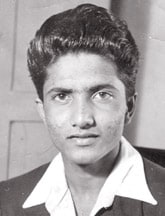
Hanif Mohammad (Urdu: حنیف محمد, 21 December 1934 – 11 August 2016) was a Pakistani cricketer.He played for the Pakistani cricket team in 55 Test matches between the 1952–53 season and the 1969–70 season. He averaged 43.98 scoring twelve centuries. At his peak, he was considered one of the best batsmen in the world despite playing at a time when Pakistan played very little Test cricket; Hanif played just 55 Test matches in a career spanning 17 years. In his obituary by ESPNcricinfo, he was honoured as the original Little Master, a title later assumed by Sunil Gavaskar and Sachin Tendulkar. He was the first Pakistani to score a triple hundred in a Test match.
Read More About Hanif Mohammad / Source
Bob Cowper
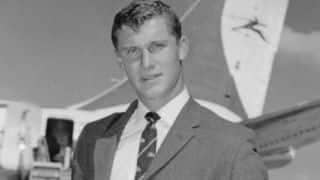
Robert Maskew Cowper (born 5 October 1940) is a former cricketer who played Test cricket for Australia from 1964 to 1968, and Sheffield Shield cricket for Victoria and Western Australia from 1960 to 1970.
Read More About Bob Cowper / Source
Marcus Trescothick
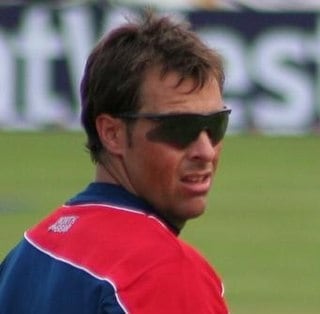
Marcus Edward Trescothick (born 25 December 1975) is an English former cricketer who played first-class cricket for Somerset County Cricket Club, and represented England in 76 Test matches and 123 One Day Internationals. He was Somerset captain from 2010-16 and temporary England captain for several Tests and ODIs.
A left-handed opening batsman, he made his first-class debut for Somerset in 1993 and quickly established himself as a regular member of the team. Trescothick made his One Day International (ODI) debut seven years later, against Zimbabwe in July 2000. His Test debut, against the West Indies, followed in August. Although former England captain Nasser Hussain likened Trescothick’s build and batting temperament to that of Graham Gooch, his stroke play is more reminiscent of David Gower.An aggressive opener: as of March 2014 he holds the record for the most ODI centuries of any English player, and for the fastest half-century in English Twenty20 cricket. Trescothick is also an accomplished slip fielder and occasional right-handed medium pace bowler who has kept wicket for England in five ODIs, and deputised as England captain for two Test matches and ten ODIs.
Trescothick was an automatic choice for England between 2000 and 2006, before a stress-related illness threatened his career and forced him to pull out of the national squad. He began rebuilding his career with Somerset in 2007 and scored two double-centuries that season. However, he remained uneasy about returning to international cricket, and announced his retirement from internationals in March 2008, opting to continue playing at county level for Somerset. Media speculation continued as to a possible international return, Trescothick repeatedly voiced his intent to remain in retirement, and has suffered recurrences of his condition in both 2008 and 2009 when Somerset toured abroad. He nevertheless continued to play for Somerset while also working as a commentator and analyst for Sky Sports in the off-season. He finally retired in 2019 and holds several Somerset batting records.
Read More About Marcus Trescothick / Source
Clive Lloyd
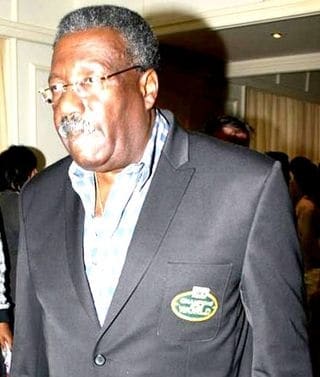
Sir Clive Hubert Lloyd (born 31 August 1944) is a Guyanese-British former cricketer who played for the West Indies cricket team. As a boy he went to Chatham High School in Georgetown. At the age of 14 he was captain of his school cricket team in the Chin Cup inter-school competition. One of his childhood memories is of watching Garry Sobers score two centuries for West Indies v Pakistan perched in a tree outside the ground overlooking the sightscreen.In 1971 he was named a Wisden Cricketer of the Year. He captained the West Indies between 1974 and 1985 and oversaw their rise to become the dominant Test-playing nation, a position that was only relinquished in the latter half of the 1990s. He is one of the most successful Test captains of all time: during his captaincy the side had a run of 27 matches without defeat, which included 11 wins in succession (Viv Richards acted as captain for one of the 27 matches, against Australia at Port of Spain in 1983–84). He was the first West Indian player to earn 100 international caps. Lloyd captained the West Indies in three World Cups, winning in 1975 (with Lloyd scoring a century) and 1979 while losing the 1983 final to India.
Lloyd was a tall, powerful middle-order batsman and occasional medium-pace bowler. In his youth he was also a strong cover point fielder. He wore his famous glasses as a result of being poked in the eye with a ruler. His Test match debut came in 1966. Lloyd scored 7,515 runs at Test level, at an average of 46.67. He hit 70 sixes in his Test career, which is the 14th highest number of any player. He played for his home nation of Guyana in West Indies domestic cricket, and for Lancashire (he was made captain in 1981) in England. He is a cousin of spin bowler Lance Gibbs. Since retiring as a player, Lloyd has remained heavily involved in cricket, managing the West Indies in the late 1990s, and coaching and commentating. He was an ICC match referee from 2001 to 2006.
In 2009, Lloyd was inducted into the ICC Cricket Hall of Fame. He was knighted in the 2020 New Year Honours for services to cricket.
Read More About Clive Lloyd / Source
Jimmy Adams

James Clive Adams (born 9 January 1968) is a former Jamaican cricketer, who represented the West Indies as player and captain during his career. He was a steady left-handed batsman, useful left-arm orthodox spin bowler and good fielder, especially in the gully position. He was also an occasional wicketkeeper when required. He was the head coach of Kent County Cricket Club for five seasons between 2012 and October 2016.He retired from all cricket in 2004 after a twenty-year career, ending with a Test batting average of 41.26 with a highest score of 208 not out against New Zealand at St. John’s, Antigua and Barbuda in 1995.
In addition to his playing and coaching credentials, Adams was appointed chairman of FICA in May 2009, replacing the South African great Barry Richards. Adams held this role until March 2017 when he was replaced by Vikram Solanki, Surrey CCC’s head coach.
Read More About Jimmy Adams / Source
Ian Botham
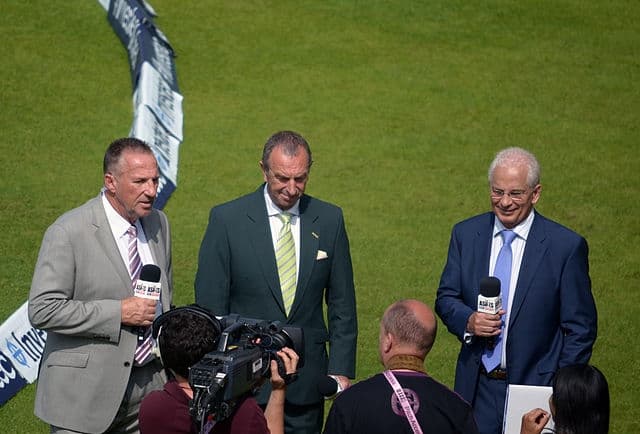
Ian Terence Botham, Baron Botham, (born 24 November 1955) is an English cricket commentator, member of the House of Lords and a former cricketer who has been chairman of Durham County Cricket Club since 2017.
Hailed as one of the greatest all-rounders in the history of the game, Botham represented England in both Test and One-Day International cricket. He played most of his first-class cricket for Somerset, at other times competing for Worcestershire, Durham and Queensland. He was an aggressive right-handed batsman and, as a right-arm fast-medium bowler, was noted for his swing bowling. He generally fielded close to the wicket, predominantly in the slips. In Test cricket, Botham scored 14 centuries with a highest score of 208, and from 1986 to 1988 held the world record for the most Test wickets until overtaken by fellow all-rounder Sir Richard Hadlee. He took five wickets in an innings 27 times, and 10 wickets in a match four times. In 1980, he became the second player in Test history to complete the “match double” of scoring 100 runs and taking 10 wickets in the same match. On the occasion of England’s 1000th Test in August 2018, he was named in the country’s greatest Test XI by the ECB.Botham has at times been involved in controversies, including a highly publicised court case involving rival all-rounder Imran Khan and an ongoing dispute with the Royal Society for the Protection of Birds (RSPB). These incidents, allied to his on-field success, have attracted media attention, especially from the tabloid press. Botham has used his fame to raise money for research into childhood leukaemia. These efforts have realised millions of pounds for Bloodwise, of which he became president. On 8 August 2009, he was inducted into the ICC Cricket Hall of Fame. In July 2020, it was announced that Botham would be elevated to the House of Lords and that he would sit as a crossbench peer.Botham has a wide range of sporting interests outside cricket. He was a talented footballer at school and had to choose between cricket and football as a career. He chose cricket but, even so, he played professional football for a few seasons and made eleven appearances in the Football League for Scunthorpe United, becoming the club’s president in 2017. He is a keen golfer, and his other pastimes include angling and shooting. He has been awarded both a knighthood and a life peerage.
Read More About Ian Botham / Source
Ian Chappell
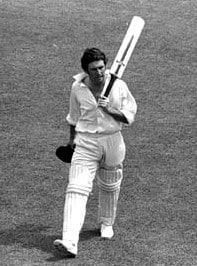
Ian Michael Chappell (born 26 September 1943) is a former cricketer who played for South Australia and Australia. He captained Australia between 1971 and 1975 before taking a central role in the breakaway World Series Cricket organisation. Born into a cricketing family—his grandfather and brother also captained Australia—Chappell made a hesitant start to international cricket playing as a right-hand middle-order batsman and spin bowler. He found his niche when promoted to bat at number three. Known as “Chappelli”, he earned a reputation as one of the greatest captains the game has seen. Chappell’s blunt verbal manner led to a series of confrontations with opposition players and cricket administrators; the issue of sledging first arose during his tenure as captain, and he was a driving force behind the professionalisation of Australian cricket in the 1970s.John Arlott called him “a cricketer of effect rather than the graces”. An animated presence at the batting crease, he constantly adjusted his equipment and clothing, and restlessly tapped his bat on the ground as the bowler ran in. Basing his game on a sound defence learned during many hours of childhood lessons, Chappell employed the drive and square cut to full effect. He had an idiosyncratic method of playing back and across to a ball of full length and driving wide of mid-on, but his trademark shot was the hook, famously saying “three bouncers an over should be worth 12 runs to me”. A specialist slip fielder, he was the fourth player to take one hundred Test catches.
Since his retirement in 1980, he has pursued a high-profile career as a sports journalist and cricket commentator, predominantly with Channel Nine. He remains a key figure in Australian cricket: in 2006, Shane Warne called Chappell the biggest influence on his career. Chappell was inducted into the Sport Australia Hall of Fame in 1986, the FICA Cricket Hall of Fame in 2000 and the Australian Cricket Hall of Fame in 2003. On 9 July 2009, Ian Chappell was inducted into the ICC Cricket Hall of Fame.
Read More About Ian Chappell / Source
Robin Smith
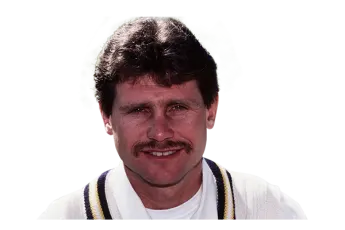
Robin Arnold Smith (born 13 September 1963) is an English former cricketer.
Smith was nicknamed Judge or Judgie for his resemblance to a judge when he grew his hair long. Like his older brother Chris, he was unable to play for the country of his birth because of the exclusion of the apartheid regime from international cricket, but because he had British parents he qualified to play for England.He played for England in eleven home test series and on six overseas tours from 1988 to 1996. Smith was best known for his abilities against fast bowling, with what was regarded as a trademark square-cut that was hit ferociously. He trained to be a psychologist.
Read More About Robin Smith / Source
Jeffrey Stollmeyer
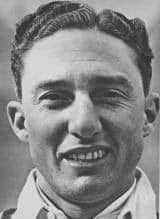
Jeffrey Baxter Stollmeyer (11 March 1921 – 10 September 1989) was a Trinidad and Tobago cricketer who played as an opening batsman. He played 32 Test matches for the West Indies, captaining 13 of these. He was also a senator.
Read More About Jeffrey Stollmeyer / Source
Stephen Wall
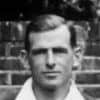
Stephen Wall (born 10 December 1959) is a former English cricketer. Wall was a right-handed batsman who bowled right-arm medium-fast. He was born in Ulverston, Lancashire.
Wall made his debut in county cricket for Cumberland in the 1983 Minor Counties Championship against Staffordshire, making five further appearances in that season’s competition, before joining Warwickshire for the 1984 season. He made his debut for Warwickshire in that season’s County Championship against Leicestershire. He made eighteen further first-class appearances for the county, the last of which came against Middlesex in the 1985 County Championship. In his nineteen first-class matches, he took a total of 37 wickets at an average of 41.02, with best figures of 4/59. With the bat he scored 175, which came at a batting average of 10.93, with a high score of 28. He made his List A debut in the 1984 John Player Special League against Sussex. He nine further List A appearances for Warwickshire, the last of which came against Worcestershire in the 1985 John Player Special League. In his nine appearances, he took 7 wickets at an average of 48.00, with best figures of 2/31. He left Warwickshire at the end of the 1985 season.
He rejoined Cumberland in 1987, between then and 1993 he made 30 Minor Counties Championship appearances and eleven MCCA Knockout Trophy appearances. He also made three List A appearances for Cumberland, against Sussex in the 1987 NatWest Trophy, Worcestershire in the 1988 NatWest Trophy and Lancashire in the 1989 NatWest Trophy. In his three List A appearances for the county, he took 3 wickets at an average of 46.66, with best figures of 3/24.
Read More About Stephen Wall / Source
Shaun Pollock
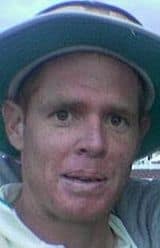
Shaun Maclean Pollock OIS (born 16 July 1973) is a South African cricket commentator and former cricketer, who was captain in all formats of the game. He is widely regarded as one of the greatest fast bowlers and allrounders of all time. A genuine bowling all-rounder, Pollock along with Allan Donald formed a bowling partnership for many years. From 2000 to 2003 he was the captain of the South African cricket team, and also played for Africa XI, World XI, Dolphins and Warwickshire. He was chosen as the Wisden Cricketer of the Year in 2003.
On 11 January 2008 he announced his retirement from all forms of international cricket after his 303rd One Day International on 3 February. Pollock now works as a commentator on SuperSport’s coverage of South African cricket.
In November 2021, he was inducted to the ICC Cricket Hall of Fame.
Read More About Shaun Pollock / Source
Sanath Jayasuriya
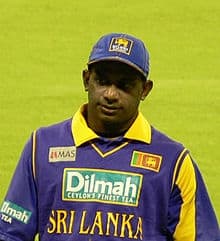
Deshabandu Sanath Teran Jayasuriya (Tamil: சனத் ஜெயசூர்யா; born 30 June 1969), popularly known as Master Blaster is a former Sri Lankan cricketer and a captain. Jayasuriya is credited for having revolutionized one-day international cricket with his explosive batting with Romesh Kaluwitharana in the mid 1990s, which initiated the hard-hitting modern-day batting strategy of all nations. Considered one of the greatest attacking batsmen of all time, Jayasuriya is well known for his powerful striking and match-winning all-round performances in all formats of the game. Jayasuriya was an all-rounder, who had an international cricket career that spread over two decades. He is the only player to score over 10,000 runs and capture more than 300 wickets in One Day International cricket. Regarded as one of the best all-rounders in the history of limited-overs cricket, Jayasuriya created many records during his career.He was named the Most Valuable Player of 1996 Cricket World Cup and Wisden Cricketers’ Almanack broke an age-old tradition by naming him one of Five Cricketers’ of the Year 1997 despite not playing the previous season in England. Jayasuriya was also the captain of the Sri Lankan cricket team from 1999 to 2003.
He was also a key member of the team that won the 1996 Cricket World Cup and was part of the team that made the finals of 2007 Cricket World Cup and 2009 ICC World Twenty20. He retired from Test cricket in December 2007 and from limited-overs cricket in June 2011. On 28 January 2013, Sri Lanka Cricket appointed him as the chairman of the cricket selection committee. Sri Lanka won the ICC World Twenty20 for the first time in 2014, during his tenure as the chief selector.
Jayasuriya ran for public office at the 2010 Sri Lankan general elections and was elected to the parliament from his native Matara District. He topped the UPFA parliamentary election list for Matara district by obtaining 74,352 preferential votes.
He served as the deputy minister of Postal services in the former UPFA government led by Mahinda Rajapaksa, and later as the Deputy Minister of Local Government & Rural Development under president Maithripala Sirisena. Jayasuriya did not contest for the 2015 Sri Lankan general election, though he won most votes from Matara district under UPFA in the 2010 Sri Lankan general election. He is currently not active in politics.
Read More About Sanath Jayasuriya / Source







